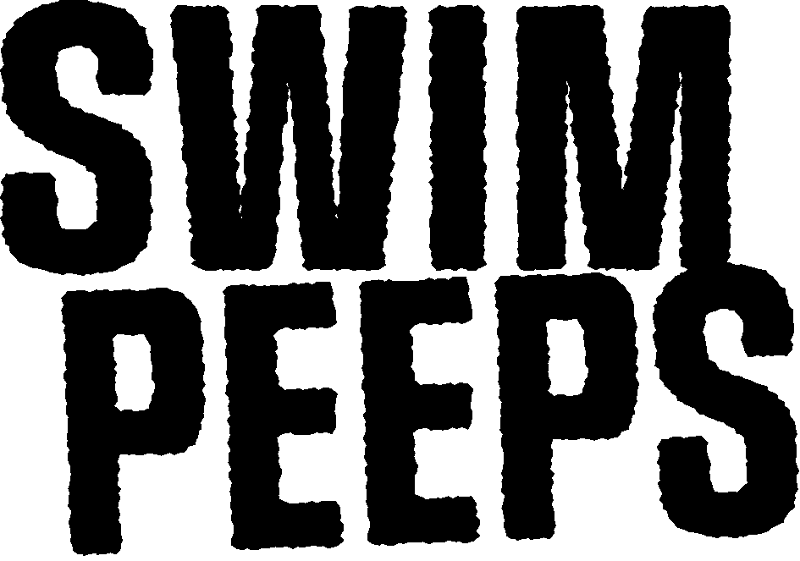- 1Select Items
- 2Delivery Options
- 3Name & Address
- 4Further Details
- 5Discounts
- 6Payment
24 City (U)
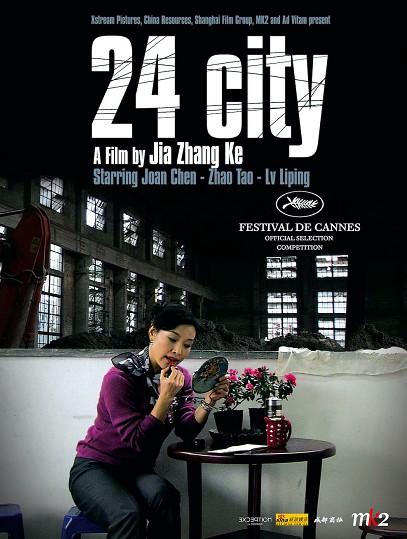
The screening on 4 April will be introduced by Luke Robinson (University of Sussex).
A singular work in Jia Zhangke’s filmography, 24 City is a striking hybrid of documentary and fiction, tracing half a century of Chinese industrial history from 1958 to 2008 through intimate personal accounts.
Set around the transformation of Factory 420, a former state-owned industrial complex in Chengdu, into the luxury real-estate development known as '24 City', the film interweaves real interviews with scripted monologues performed by well-known actors, including Joan Chen. Through poetic quotations and first-person narratives, 24 City transforms collective memory into an intimate, lyrical meditation on labour, loss, and the passing of an era.
A Pale View of Hills (Rating TBC)
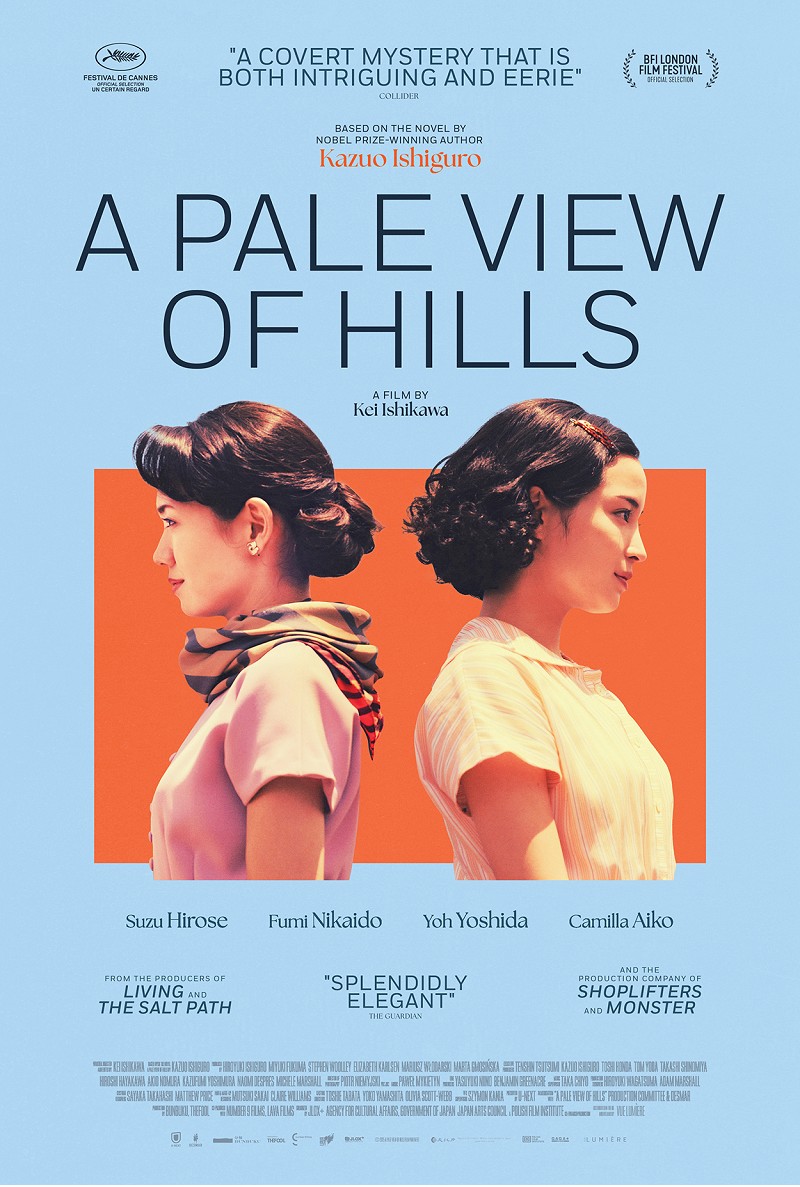
Based on Nobel Prize winner Kazuo Ishiguro’s first novel and set in 1980s England and post-war Japan, A Pale View of Hills follows Niki, a young journalist desperate to understand her mum’s history before her birth in 1950s Nagasaki.
Spanning two timelines, and lightly excavating the author’s own family history and cultural heritage, this is an elegant, moving and hopeful account of the generational impact of war.
The Garden Cinema View:
This very decent adaptation of Kazuo Ishiguro’s beguiling debut novel doesn’t quite capture the singularly eerie nature of its source, but succeeds on its own terms as an exploration of memory, guilt, and grief. Director Kei Nishikawa (a rising star in Japan, but relatively unknown in the UK) evokes the two distinct periods (1950s Nagasaki and 1980s Hertfordshire) with impressive production design, and coaxes excellent performances from Suzu Hirose and Yō Yoshida as the younger and older Etsuko. Although certain scenes look a little too clean, and digitally sharp, Piotr Niemyjski’s cinematography is subtle and effective. The novel reaches an almost gothic sense of closure, but Nishikawa doesn’t quite match this, with narrative threads becoming muddled, and departing with a sense of confusion. Although, this is perhaps appropriate for a film so imbued with the fog of memory.
A Touch of Sin (15)
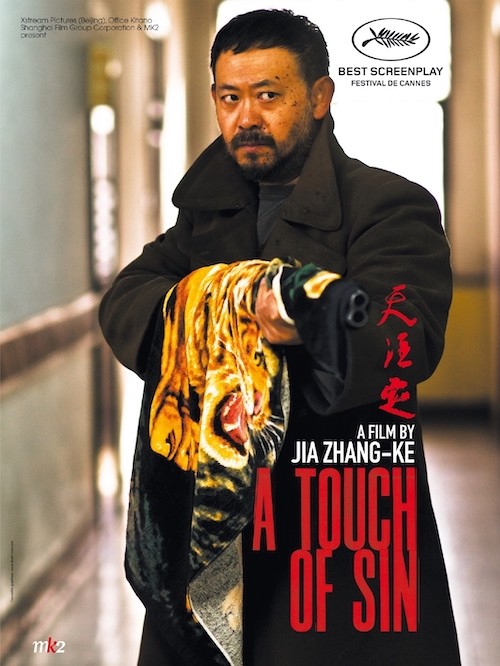
Both screenings will be video introduced by Victor Fan (KCL).
Jia Zhangke’s bold and most genre-inflected work, A Touch of Sin (an homage to King Hu’s A Touch of Zen), offers a shocking reflection on capitalist China. Structured around four characters living in four different provinces, Shanxi, Sichuan, Hubei and Guangdong, the film forms a fractured yet panoramic portrait of contemporary Chinese society, in which ordinary people are pushed toward violent ends. Nominated for the Palme d'Or at the 2013 Cannes Film Festival, the film went on to win Best Screenplay.
Inspired by true events, the film begins with the tale of an angry miner (Wu Jiang), enraged by the corruption of his village, who decides to take justice into his own hands. This gives way to follow the tales of a rootless migrant (Wang Baoqiang) who discovers the infinite possibilities of owning a firearm; a receptionist (Jia’s wife and regular collaborator Zhao Tao) working at a local sauna, pushed to the limit by a wealthy client; and finally a young factory worker (Luo Lanshan), who goes from one discouraging job to the next, only to face increasingly degrading circumstances.
A Zed & Two Noughts (15)
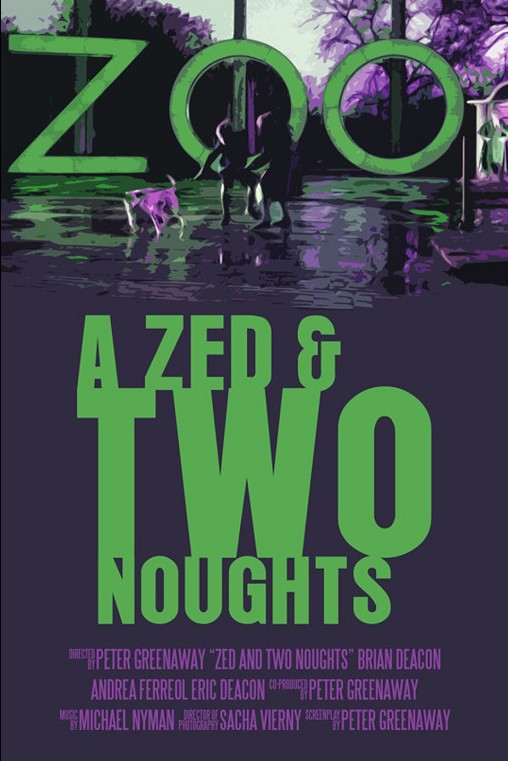
A Zed and Two Noughts was suggested by our member Andrew Kirby, who writes: 'It is Peter Greenaway’s most dense and cinematically interesting film in my opinion.'
A car collides with a swan outside a zoo. Two women passengers die but the driver Alba survives with a leg amputation. Obsessed with the accident, the zoologist husbands of the dead women - twins Oliver and Oswald - become fascinated by the processes of decay and embark on a strange affair with Alba.
Please note, the screening on Wednesday 11 March is our free members' screening, while the one on Tuesday 17 March is a regular matinee screening, which is open to the general public.
Aladdin (U)
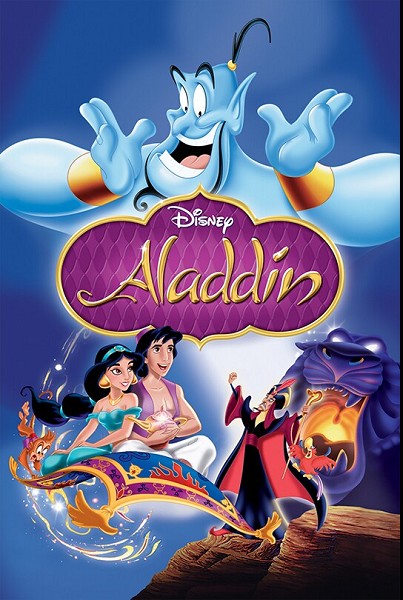
This classic Disney musical animation is loosely inspired by one of the stories associated with the Middle Eastern folk tales collection 'One Thousand and One Nights'.
Street-smart Aladdin, pairs up with clever, confident Princess Jasmine to fight against the evil sorcerer Jafar and foil his plans of taking over the kingdom. Along the way, Aladdin learns to believe in himself...with the help of a comical, shape-shifting Genie whose three wishes can change everything.
Aladdin became the highest-grossing film of 1992 and the first animated film to reach the half-billion-dollar mark until it was surpassed by The Lion King in 1994.Critics praised the animation and Robin Williams' performance as the genie, while it's soundtrack won numerous accolades including an Oscar for Best Score and Best Song for A Whole New World.
On Sunday mornings our Family Screenings are followed by a free activity for Children.
The screening is Pay What You Can, which means you’re free to pay as much or as little as you can afford. By paying for a ticket, you will enable us to keep offering Pay What You Can screenings to families struggling with the cost of living. Thank you.
Ash Is Purest White (15)
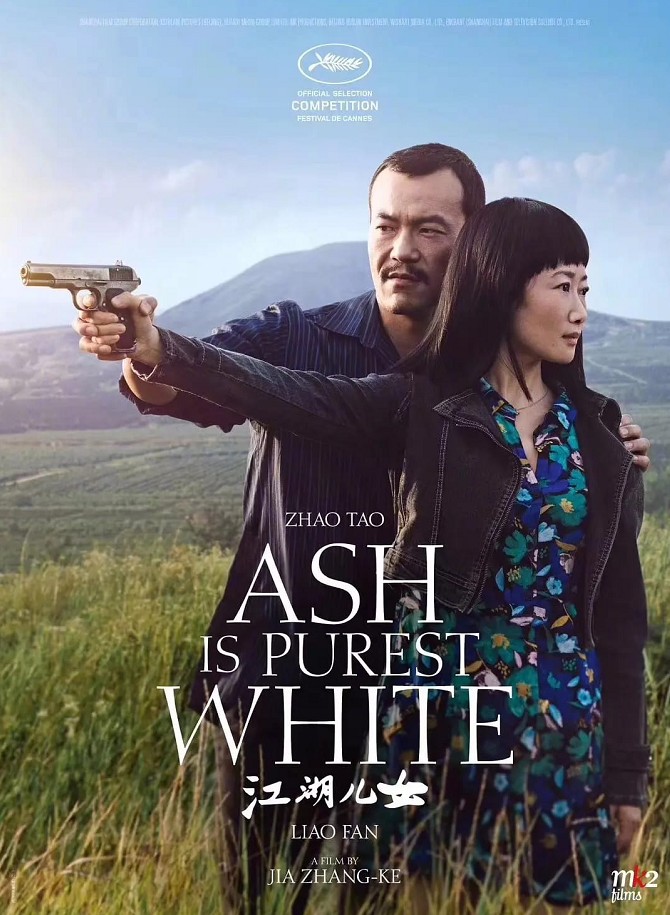
The Jia Zhangke retrospective will launch on Sunday 8 March with a members' event featuring spicy cocktails and an academic intro by Maurizio Marinelli (UCL). You can find tickets for this here.
Ash Is Purest White is Jia Zhangke’s only explicit gangster film, although his works consistently return to jianghu as a social condition, an informal ethical order shaped by loyalty, obligation, violence, and survival amid historical change. Deeply influenced by Hong Kong genre cinema of the 1980s and 1990s, the film can be seen as a grounded, realist response to the heroic bloodshed tradition epitomized by John Woo's The Killer, translating its codes of loyalty and jianghu ethics into the lived realities of post-reform China.
Spanning more than fifteen years, the film views a changing China through the perspective of a pair of lovers. It follows Qiao, a woman from Datong, and Bin, a local underworld figure, whose rise and gradual disappearance mirror the shifting structures of power and belonging. Performed by Jia’s muse Zhao Tao, Qiao embodies a cool, self-possessed presence that recalls Pulp Fiction’s Mia Wallace, marked by autonomy, resilience, and moral resolve. After a fight breaks out between rival gangs, an act of loyalty irrevocably alters the course of her life…
Book Tickets
|
Bar Shorts with Michael Dudok de Wit (18)

Bar Shorts returns to The Garden Cinema for a very special night with one of the most poetic voices in animation: Michael Dudok de Wit.
A rare, intimate evening with a master of the form — and a chance to see the inspirations behind some of the most quietly profound animated films ever made.
The Oscar‑winning filmmaker behind Father and Daughter and the acclaimed Studio Ghibli co‑production The Red Turtle joins us to share a hand‑picked selection of his favourite short films — works that have shaped his sensibility, inspired his craft, and continue to influence his approach to visual storytelling. Expect a rare glimpse into the artistic lineage of a director celebrated for his emotional clarity, painterly elegance, and meditative pacing.
Following the screenings, Michael will be in conversation with Chris Shepherd, exploring the creative impulses behind his work, the films that shaped him, and the enduring power of simplicity in animation. The night is curated with Dog&Rabbit.
Book Tickets
|
Bay of Angels (PG)
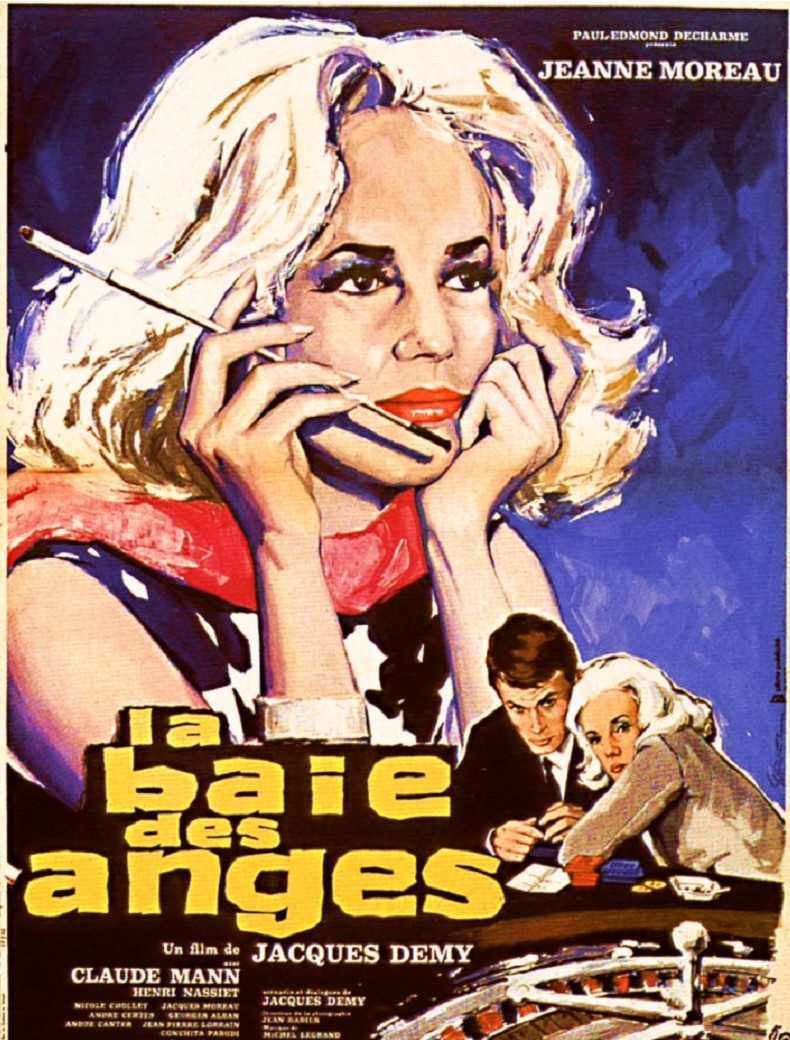
This precisely wrought, emotionally penetrating romantic drama from Jacques Demy, set largely in the casinos of Nice, is a visually lovely but darkly realistic investigation into love and obsession. A bottle-blonde Jeanne Moreau is at her blithe best as a gorgeous gambling addict, and Claude Mann is the bank clerk drawn into her risky world. Featuring a mesmerising score by Michel Legrand, Bay of Angels is among Demy’s most somber works.
Bound (18)
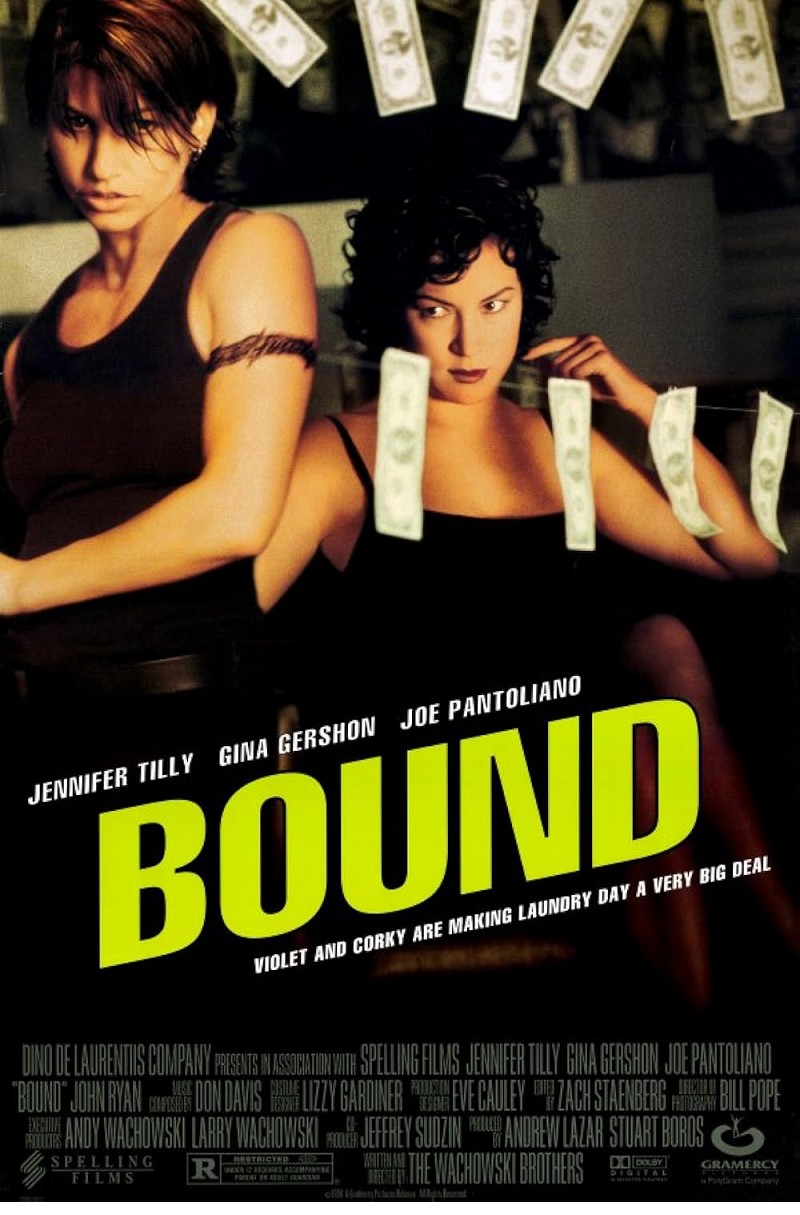
Bound was proposed for our 4th Birthday celebrations by Garden Cinema member Mariane Lingley.
Before making their name with The Matrix, The Wachowski sisters debuted with this sizzling neo-noir thriller financed by legendary Italian producer Dino De Laurentiis.
Gina Gershon plays Corky, a young woman recently released from a five-year jail term for, as she puts it, the 'redistribution of wealth'. After a brief lift encounter with her sexy and sultry neighbour Violet (Jennifer Tilly) the pair strike up a steamy love affair under the nose of Violet's unhinged Mafia boyfriend Caesar (Joe Pantoliano). Soon the two women are hatching a plot to steal $2 million from Caesar and his associates - but if you're going to mess with the mob, you'd better be sure you do it right...
This screening will finish at 20:39.
Book Tickets
|
Caught by the Tides (18)
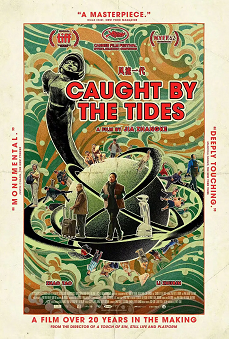
The screening on 23 April will be introduced by Tony Rayns, whose long-standing support of Jia Zhangke, from festival exposure to sustained critical advocacy and English subtitling, played a crucial role in bringing Jia’s work to international attention.
Caught by the Tides, a mix of fiction and documentary, is an enduring but fragile love story shared by Qiaoqiao (starring Jia Zhangke’s capturing muse Zhao Tao) and Bin, set in China, from the early 2000s to the present day.
Caught up in each other, Qiaoqiao and Bin enjoyed all that the city had to offer, singing and dancing. Until one day, Bin finds himself wanting to try his luck in a bigger place than Datong. He left without any notice. Sometime later, Qiaoqiao decides to go on a journey to look for him.
Traversing all of his past films, Jia Zhangke delivers an epic look at the romantic destiny of his perennial heroine, Qiaoqiao. Spanning 23 years of a country going through profound transformation, the film gives a new perspective to look into the contemporary China as well as the individual experiences under the turbulent emotional and social changes.
Diary of a Chambermaid (18)
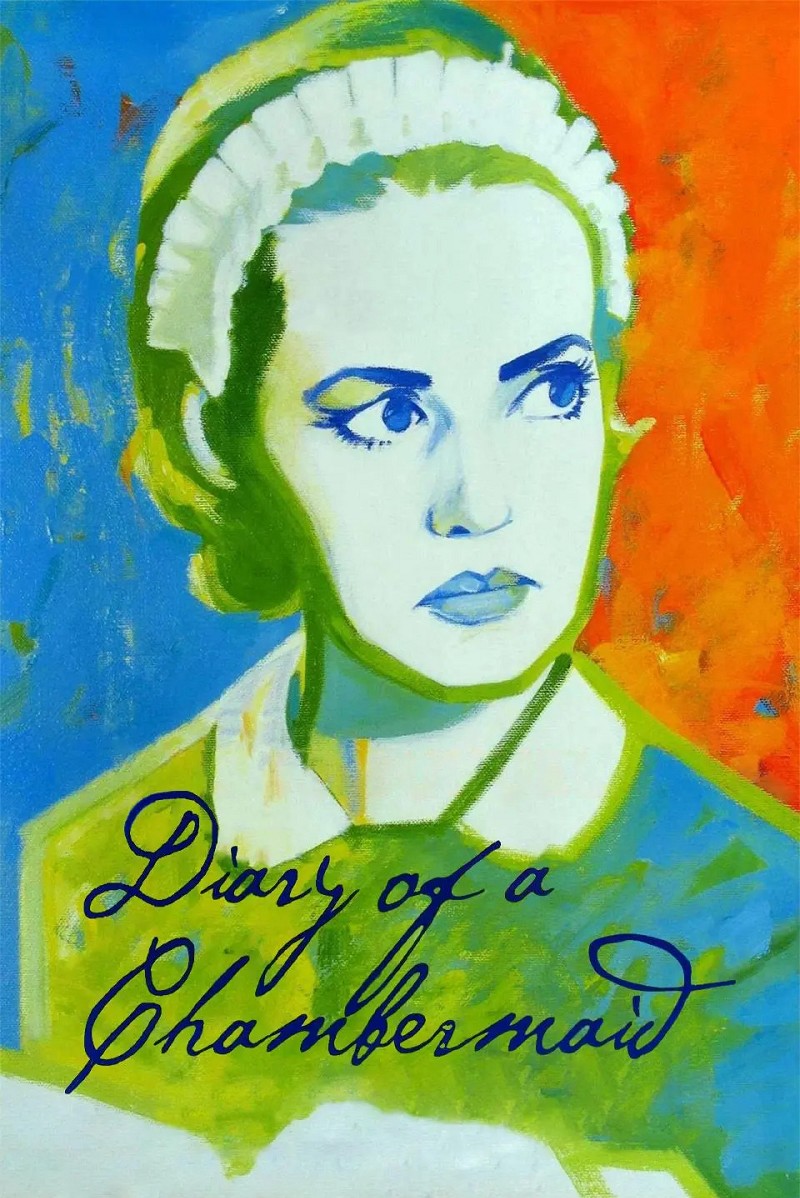
This sly adaptation of the Octave Mirbeau novel is classic Luis Buñuel. Jeanne Moreau is Celestine, a beautiful Parisian domestic who, upon arrival at her new job at an estate in provincial 1930s France, entrenches herself in sexual hypocrisy and scandal with her philandering employer (Buñuel regular Michel Piccoli). Filmed in luxurious black-and-white Franscope, Diary of a Chambermaid is a raw-edged tangle of fetishism and murder - and a scathing look at the burgeoning French fascism of the era.
Dong (12)
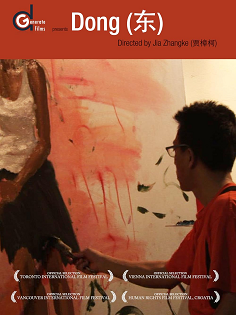
The screening is part of a double bill with Still Life and will be introduced by Sabrina Yu (Chinese Independent Film Archive, CIFA).
Dong is the second chapter in Jia Zhangke's documentary trilogy about artists in China, alongside Useless (2007) and Swinning Out till the Sea Turns Blue (2020). Made in the same period as Still Life, it occupies a unique place in Jia Zhangke’s body of work, functioning both as a documentary in its own right and as a companion piece to his most internationally acclaimed fiction film. Centred on contemporary painter Liu Xiaodong - whose monumental canvases, inspired in part by China’s Three Gorges Dam project, resonate closely with Jia’s own cinematic concerns of marginal lives, transient spaces, and bodies shaped by labour and displacement.
Shot on digital video, Dong follows Liu as he travels first to the Three Gorges region, where the construction of the dam has displaced entire communities, and later to Bangkok, where he paints a group of young sex workers. Jia’s camera quietly observes Liu’s encounters with his subjects and surroundings, as well as the slow, physical act of painting itself.
Book Tickets
|
Dress-up karaoke party + Unknown Pleasures (12)
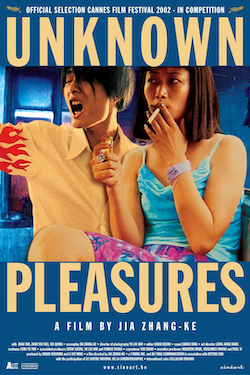
Accompanying the screening of Unknown Pleasures as part of our Jia Zhangke retrospective, we’re delighted to invite you to join us on Friday evening 24 April for a special pre-screening karaoke session in the Atrium Bar.
Set at the turn of the millennium, Unknown Pleasures captures the restless drift of youth in China’s post-90s moment — a world shaped by pop songs, borrowed emotions, and karaoke bars as shared spaces of escape. Popular music runs throughout Jia Zhangke’s films as a fleeting expression of freedom, intimacy, and longing.
In that spirit, this special karaoke session invites you to sing songs featured across Jia Zhangke’s cinema, alongside favourites from the late 1990s and early 2000s — or simply any song you love. Dressing up with a touch of Y2K nostalgia or classic 90s style is encouraged, but there are no strict rules, just the joy of slipping briefly into another era!
Event timings:
19:30-21:00 Dress-up party & karaoke cocktail hour
21:00-21:05 Brief introduction by curator Millie Zhou
21:05-23:00 Screening of Unknown Pleasures
Tickets are available for £13.50 for members and their +1, and £16.50 for non-members, and include access to the party as well as an unallocated seat for the screening.
About the film:
Set in the year 2000 in Datong, a declining industrial city in northern China, Unknown Pleasures follows two aimless young men, Bin Bin and Xiao Ji, adrift in boredom and unfulfilled desire. Unemployed and disconnected, they drift between pool halls, streets, and cheap interiors, dreaming of escape without the means to pursue it. Xiao Ji becomes fixated on Qiao Qiao, a nightclub dancer whose allure remains out of reach, while Bin Bin flirts with the fantasy of a criminal act that might give his life meaning. Through their stalled lives and quiet frustrations, the film offers a stark portrait of a generation left behind by rapid economic change, suspended between pop-cultural aspiration and lived limitation.
Book Tickets
|
Drinks, The Shepherds of Calamity + panel discussion (18)
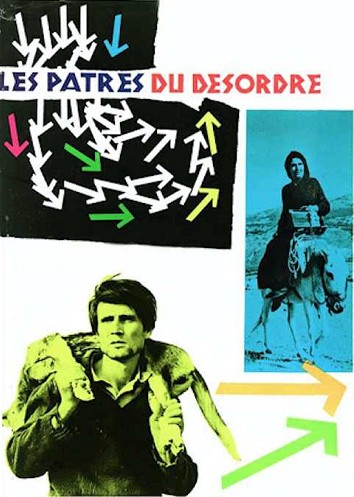
To launch of our new cinema strand Greek Salad, we'll be welcoming members for a special event for its first ever screening!
As the strand begins with a spotlight on director Nico Papatakis, who lived and worked between Ethiopia, Greece, and France, each ticket includes a complimentary drink inspired by the cultures that shaped him, with a choice of:
- An Ethiopian Habesha beer
- A glass of Greek tsipouro
- A glass of French Gamay wine
Following the drinks, we'll head into the screen for an introduction to Papatakis' work by Pr. Dimitris Papanikolaou (University of Oxford), as well as a screening of the filmmaker's masterpiece, The Shepherds of Calamity. Afterwards, Papanikolaou will be joined by strand curator Erifili Missiou, to discuss the film as well as Papatakis' further oeuvre.
Event timings:
18:30-19:30 Drinks in The Garden Bar
19:30-19:40 Screen doors open
19:40-19:45 Introduction by Pr. Dimitris Papanikolaou
19:45-21:45 Screening of The Shepherds of Calamity
21:45-22:15 Post-screening discussion
Tickets are £17 each for members and their +1, and include a complimentary beverage, as well as an unallocated seat for the film & post-screening discussion.
Film synopsis:
Katina, an impoverished Greek woman, tries to arrange the marriage of her shepherd son, Thanos, to Despina, the daughter of a wealthy landowner. But Despina’s father, Vlahopoulos refuses to give his blessings.
Curator’s note:
The Shepherds of Calamity (1967), also known as Thanos and Despoina, is arguably Papatakis' finest work. The film was shot in rural Greece just before and during the military coup d'état. Admired by Claude Lévi-Strauss as a great ethnological film, it follows a conservative community's descent into riotous disorder after two young members refuse to abide by the established marital rules.
Yorgos Lanthimos on The Shepherds of Calamity
Fellow Greek director Athina Rachel Tsangari (Attenberg, Harvest) on The Shepherds of Calamity:
In the straitjacket of a backward, brutal, conservative, and patriarchal society, in which the rural population is left to its misery, Thanos and Despina introduce the element of chaos and freedom. But freedom can only be expressed within the corset, which distorts and grotesquely shapes it. One must watch Thanos dance with his dead dog on his back. One must see how Despina, in a monologue, rejects the progressive ideas of her brother on sexuality - and these ideas take possession of her as she speaks. One must endure that the amour fou between Thanos and Despina is not without violence and remains marked by a structural unity of sadism and submission. One must understand that the exploding goat at the beginning contains the film’s 'logic': A closed system is forced to burst under internal pressure.
Hatred stands out as clearly as the bones of a carcass decomposing in the sun. Both among the rich and the poor, Papatakis (much like Buñuel) shows no sympathy for anyone.
Content notes: The film contains animal violence, domestic abuse and violent imagery. The film will be screened with English subtitles.
Book Tickets
|
EPiC: Elvis Presley in Concert (12A)
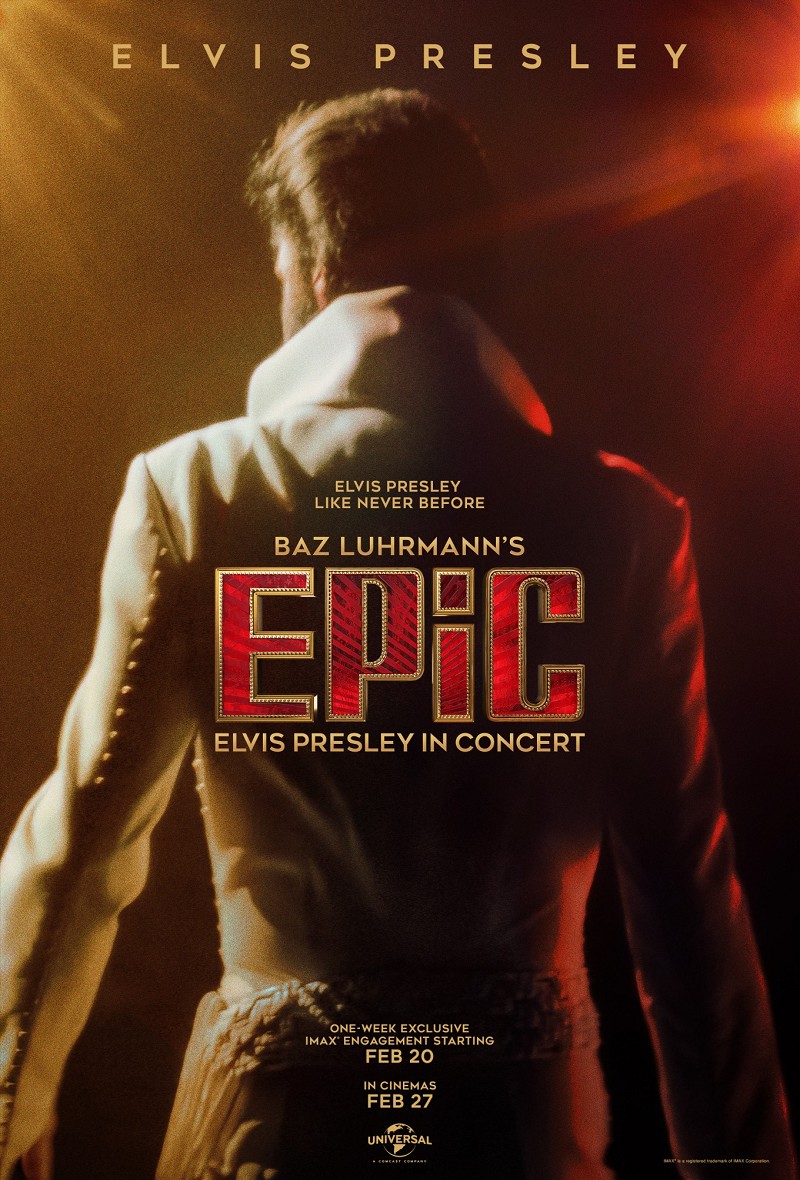
Elvis sings and tells his story like never before in a new cinematic experience from visionary filmmaker Baz Luhrmann.
The Garden Cinema View:
Most people associate Elvis’ Las Vegas years with his later-life, drug-fuelled decline, when he seemed to become a parody of himself. Luhrmann turns to an earlier, largely unknown Vegas period, when, disillusioned with Hollywood, Elvis threw himself fully into what he loved most: live performance. Drawing on painstakingly assembled archival material from 1100 shows (sometimes three in a single day), alongside rehearsal footage and interviews, the director sheds fresh light on Elvis’ towering talent.
Presley’s gifts as a performer - the extraordinary voice, electrifying dance moves, and animalistic magnetism - are already well known. What emerges here, however, is that he also possessed a profound knowledge and adoration for music. Deeply shaped by gospel, rhythm and blues, and folk, he rehearsed obsessively until every note was right. Equally revealing is his constant mischievousness: no rehearsal or performance passes without some clownish interruption, lending this film a sense of playful irreverence.
Abstaining (wisely) from his signature frenetic editing, Luhrmann intervenes lightly, allowing Elvis, for the most part, to speak for himself.
Earth Day 2026: Colossal Wreck with Josh Appignanesi (12A)

This special screening, part of Planting Seeds, the Garden Cinema's environmental film strand, marks Earth Day 2026, the UN-backed global event occurring every 22nd April since 1970, to profile ecological campaigning.
And it is another UN environmental structure, one that is now deeply problematic, that comes under close scrutiny in Josh Appignanesi's remarkable documentary essay film Colossal Wreck. Taking its title from Ozymandias, Shelley's famous sonnet on imperial hubris, Colossal Wreck plunges us deep into the chaos of contradictions that is COP28, the 2023 UN climate change conference in oil-producing Dubai. Invited to show his earlier film My Extinction, about climate protest, in a fringe pavilion, Appignanesi moves from official gatherings to absurd immersive installations to well-meaning activist rallies and the lived frontline of unarguable indigenous witness. All of this takes place in one of the most jarring cityscapes on the planet, "narcotically Ballardian and surreal... an uncanny valley of hyper-prosperous consumerist placidity... a city-state-sized airport duty free shop crossed with a Kubrickian spaceship" (The Guardian).
Superbly shot and written, evocatively scored by Vik Sharma, Colossal Wreck is a singular, urgent and honest dispatch from the hypocrisy-fuelled frontline of an increasingly precarious future, a film of "mesmerizing energy... as if Schopenhauer had made Blade Runner" (The TLS).
Introducing Colossal Wreck, and discussing it afterwards with host Gareth Evans, will be the film-maker Josh Appignanesi.
Book Tickets
|
Encanto (U)
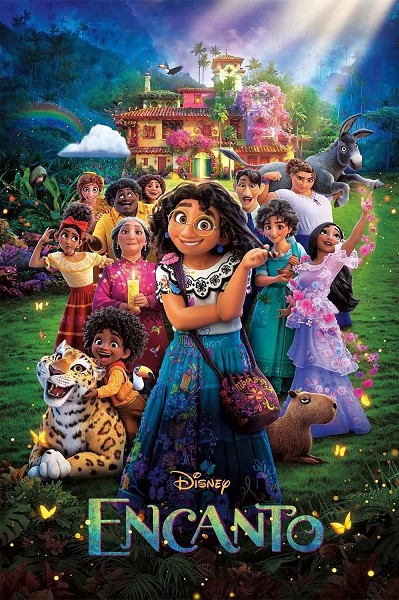
Set in an enchanted town in the Colombian mountains, Encanto charts the lives of The Madrigal family. They live in a large, magical house, with each family member possessing a unique power – ranging from speaking to animals to super strength. The young Mirabel is the only one without a special ability, leaving her to wonder if there’s something wrong with her. However, when the house’s magic is threatened by a mysterious force, Mirabel may be the only one able to save the family and their home.
This colourful musical story is all about finding your own uniqueness and community. It is also a celebration of parts of Colombian culture, including music and design.
Encanto has been described as a cultural phenomenon, and in 2022 won Best Animated Feature at the 94th Academy Awards, the Golden Globe Award for Best Animated Feature, and the BAFTA Award for Best Animated Film.
It's soundtrack was a key part of its success, with Surface Pressure its most successful song, topping both the US Billboard Hot 100 and UK Singles Chart for multiple consecutive weeks.
On Sunday mornings our Family Screenings are followed by a free activity for Children.
The screening is Pay What You Can, which means you’re free to pay as much or as little as you can afford. By paying for a ticket, you will enable us to keep offering Pay What You Can screenings to families struggling with the cost of living. Thank you.
Everybody to Kenmure Street (12A)
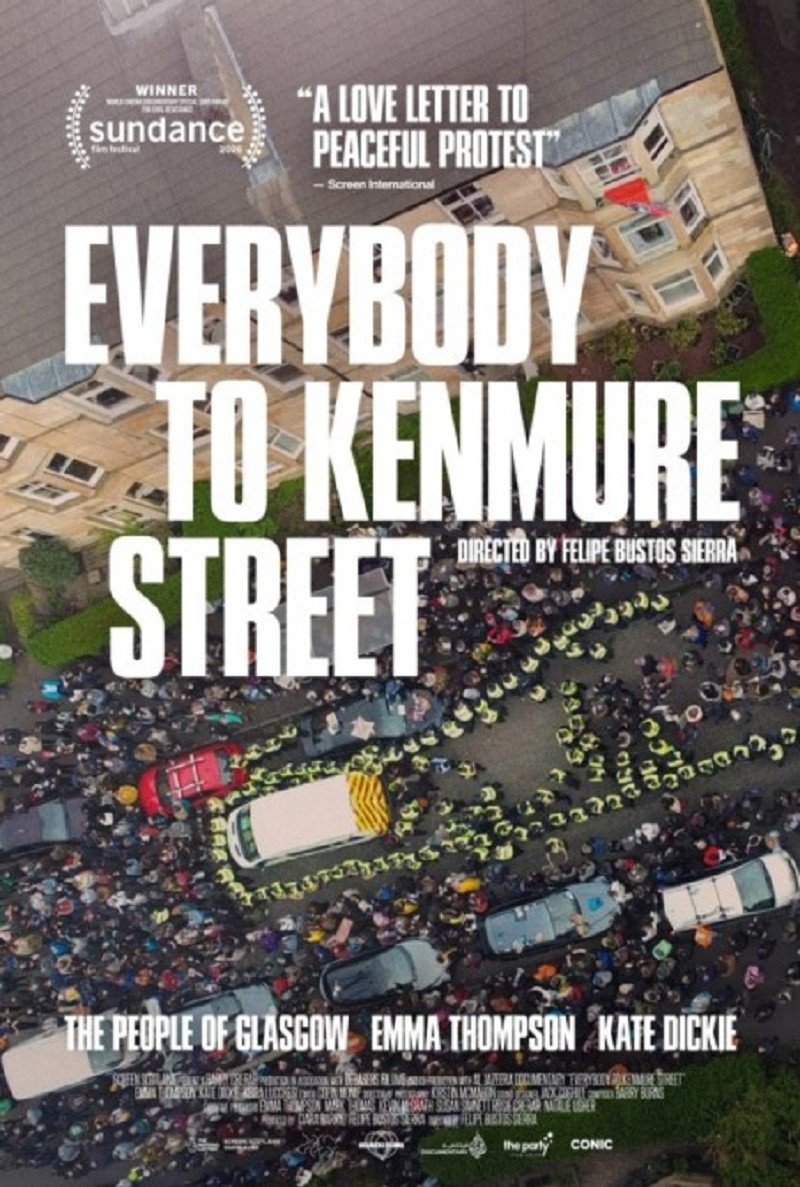
Our screening on Thursday 12 March will be followed by a Q&A.
In May 2021, a UK Home Office dawn raid triggers one of the most spontaneous and successful acts of civil resistance in recent memory. In Pollokshields, Scotland’s most diverse neighbourhood, hundreds of residents rush to the streets to stop the deportation of their neighbours.
Winner: Sundance Film Festival World Cinema Documentary
Special Jury Award for Civil Resistance
The Garden Cinema View:
Rarely has a documentary been more timely, prize-winning at a Sundance Film Festival held amidst ICE raids and murders in Minnesota, and as we face the prospect of a future far-right government in the UK. But whilst Everybody to Kenmure Street can be anger-inducing and tragic, at its core it is an empowering and invigorating paean to collective action. A story of community as told by the community, this is a film we can all benefit from.
Faber book launch & quiz (18)
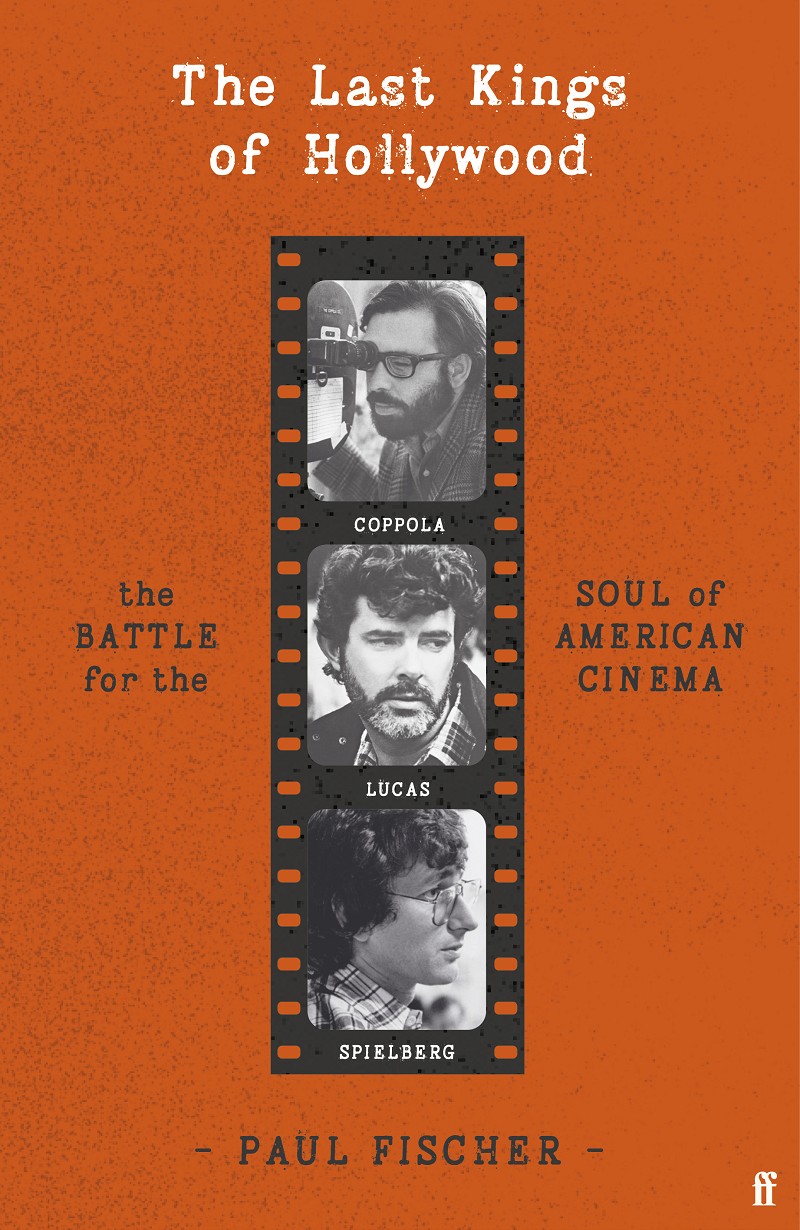
On Thursday 12 March, The Garden Cinema are thrilled to welcome the team from Faber to celebrate the release of Paul Fischer's The Last Kings of Hollywood. The writer himself will join us to discuss his definitive account of one of the wildest and most influential periods of Hollywood history, starring the three most famous directors of all time (Francis Ford Coppola, George Lucas, and Steven Spielberg) and their tumultuous friendships.
Following the talk, you'll have the chance to test your knowledge on these iconic filmmakers with a quiz hosted by critic and culture writer Barry Pierce (The Sunday Times, the Big Issue, i-D, GQ and British Vogue) - with some splendid prizes up for grabs! Of course there will also be the opportunity to purchase the book and have it signed by Paul.
Event timings:
19:30 Doors open
19:45 Book talk with writer Paul Fischer
20:10 Break for drinks
20:30 Quiz
21:30 Pop-up book shop & book signing
Tickets for the event are just £5 each, and include a complimentary glass of house wine, a beer, or a soft drink. They're restricted to 2 per member, so you can bring a guest along even if they're not a member, to join your quiz team.
Important info before booking:
We have space for up to 10 teams of max. 5 attendees each, so you can either attend with a group, as a duo (in which case your team may be merged with another team), or attend solo (in which case you'll be placed on an All Stars team with other members attending by themselves). Please follow the instructions below to make sure you get placed on the correct team:
- If you would like to be placed on a team with friends, you can either:
- Purchase your tickets individually (up to 2 per active membership) and leave the names of your teammates during the checkout process, so we can place you on the same team
OR
- Purchase tickets for the entire team, and assign each ticket to the invididual member or member's +1 (you will need to know the surname as well as the email address their membership is registered under, to do this) - If you would like to join as a duo, you can purchase two tickets (just 1 active membership will be required for this) and we will merge you with another duo to make up a team
- If you're joining by yourself, you can simply purchase 1 ticket and we will then place you on an All Stars team - a great opportunity to meet fellow members!
Book Tickets
|
Gaslight (1940) (PG)
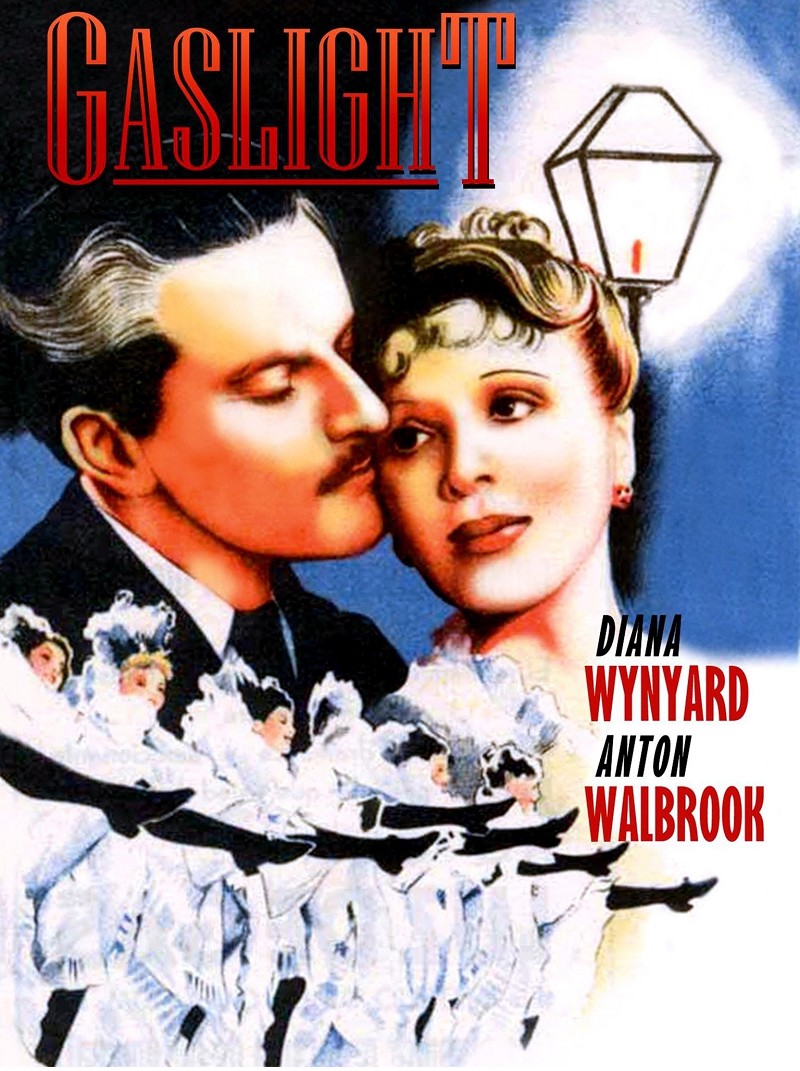
Gaslight was proposed for out 4th Birthday celebrations by Garden Cinema member Rachael Grant.
The original screen adaptation of the Patrick Hamilton play stars Anton Walbrook as a calculating husband who attempts to make his wife think she is going insane so that he can locate her hidden family jewels. Oscar-nominee Diana Wynyard is his turn-of-the-century bride who moves into the house where her aunt was murdered and begins to fear she's going mad.
This screening will finish at 18:04.
Book Tickets
|
Hard Boiled (18)
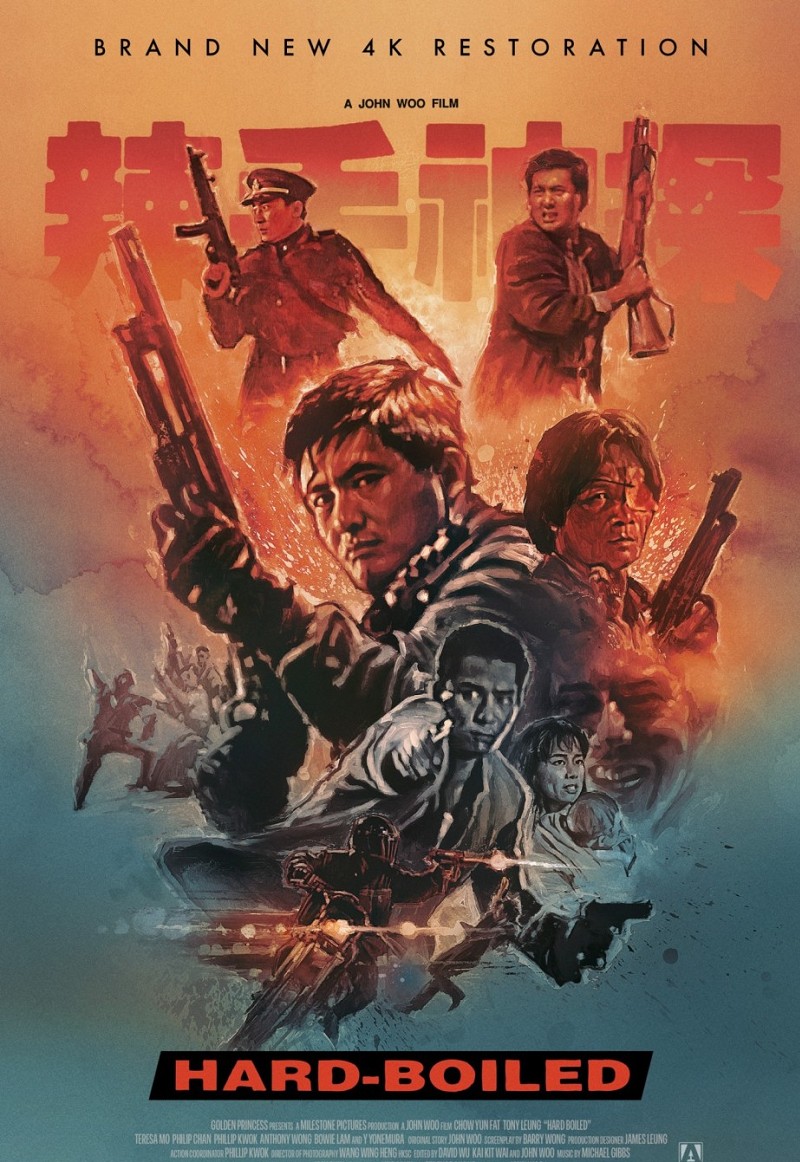
Finally back in UK cinemas in a new digital restoration.
In the 80s and 90s, director John Woo would cement his reputation as a master of action films with classics like A Better Tomorrow, The Killer and Bullet in the Head. This would culminate in 1992 with the release of his masterpiece Hard Boiled, the hyperkinetic, hyperviolent exemplar of the Heroic Bloodshed genre.
Iconic actor Chow Yun-Fat stars as Tequila, a gung-ho cop working to bring down Johnny Wong, the villainous triad boss who maintains a stranglehold on Hong Kong’s illegal gun trade. Johnny attempts to recruit Ah-Long (Tony Leung), an assassin from a rival syndicate, just as the insubordinate Tequila gets taken off the case. Taking justice into his own hands, Tequila tracks Ah-Long down and uncovers an intricate web of deception that threatens to boil over into all-out war.
Homeward Bound (U)
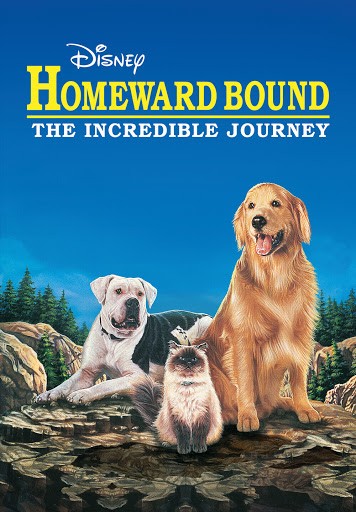
This family-friendly adventure is a remake of a 1963 film about three pets who go to extraordinary lengths to be reunited with their owners. When a family temporarily leave their golden retriever, bulldog and cat at a friend's farm, the animals grow nervous and decide to embark on a cross-country trip back home. The film benefits from some wonderful American national park locations, but what really brings this against-the-odds tale to life is a witty script and fine voice cast that makes the animals almost human.
According to movie critic Roger Ebert, the movie is "frankly designed for kids, and yet it has a certain craftsmanship and an undeniable charm, and if you find yourself watching it with a child you may end up liking it almost as much."
Into Film recommends this film for ages 5+
On Sunday mornings our Family Screenings are followed by a free activity for Children.
The screening is Pay What You Can, which means you’re free to pay as much or as little as you can afford. By paying for a ticket, you will enable us to keep offering Pay What You Can screenings to families struggling with the cost of living. Thank you.
I Wish I Knew (18)
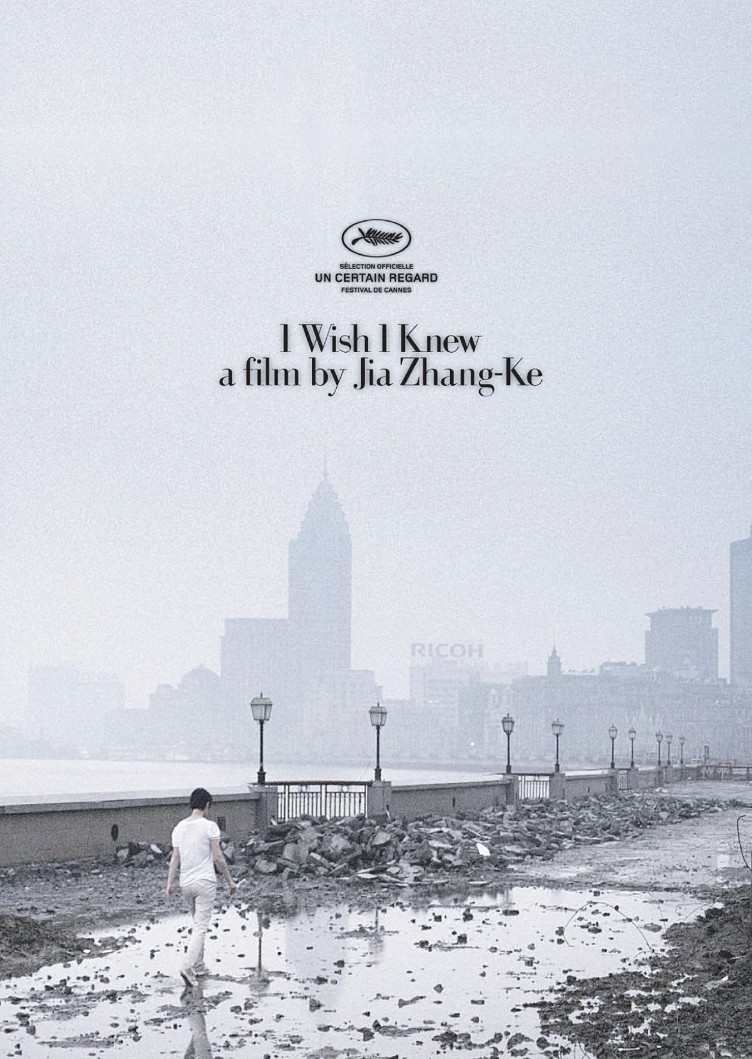
The screening on 5 April will be introduced by Chris Berry (KCL).
After exploring China's social and historical transformations for over a decade, Jia Zhangke turns his lens to Shanghai in this compelling documentary.
I Wish I Knew is a vivid portrait of the fast-changing metropolis and port city – Shanghai, a place marked by revolutions, assassinations, love stories, and the constant flow of people in and out. After the Chinese Communists' victory in 1949, thousands of Shanghaiers left for Hong Kong and Taiwan. To leave meant being separated from home for thirty years; to stay meant suffering through the Cultural Revolution and China's other political upheavals.
Eighteen people from these three cities, Shanghai, Taipei and Hong Kong, including filmmaker Hou Hsiao-Hsien, painter Danqing Chen, writer Han Han and actress Rebecca Pan, recall their lives in Shanghai. Their personal experiences, like eighteen chapters of a novel, tell stories of Shanghai lives from the 1930s to 2010.
Book Tickets
|
If I Had Legs I'd Kick You (15)
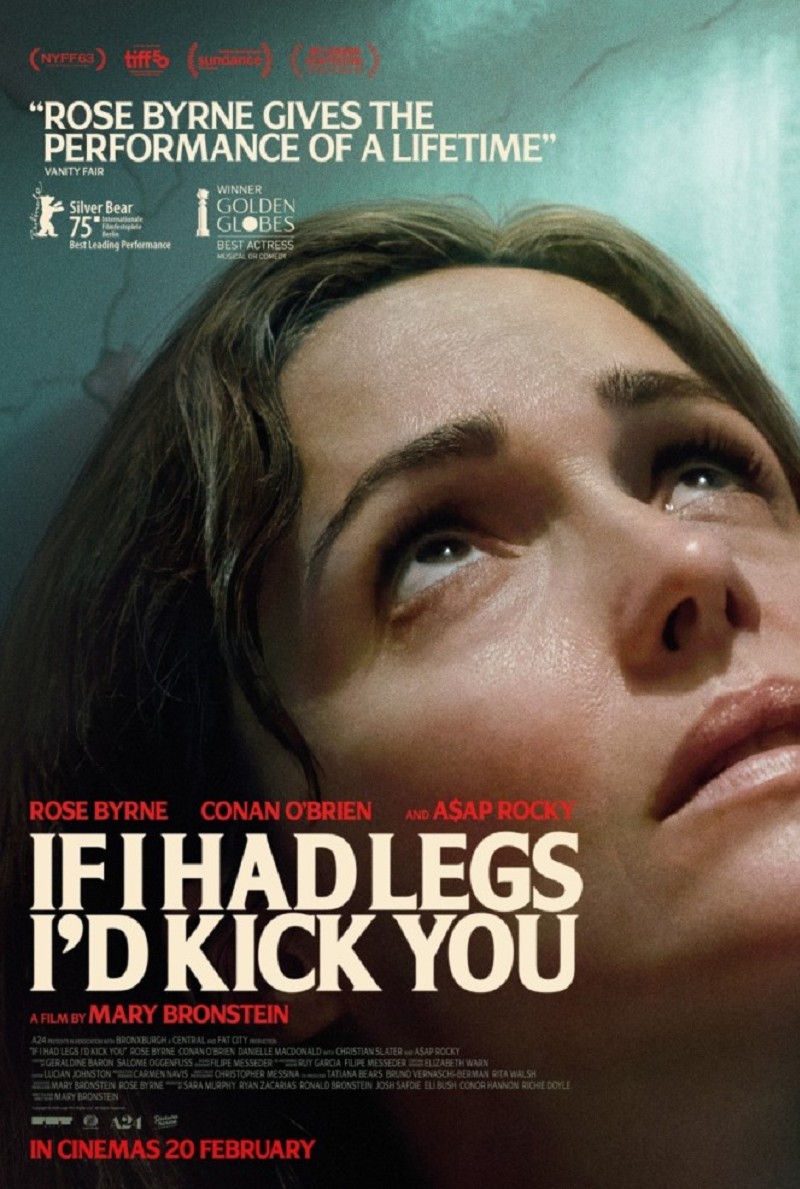
With her life crashing down around her, Linda (Rose Byrne) attempts to navigate her child's mysterious illness, her absent husband, a missing person, and an increasingly hostile relationship with her therapist (Conan O'Brien).
Sharply funny and deeply resonant, If I Had Legs I'd Kick You is an electrifying drama from filmmaker Mary Bronstein, anchored by a mesmerising performance from (now Oscar nominated) Rose Byrne.
The Garden Cinema View:
A breathlessly intense film, the pressure cooker atmosphere of If I Had Legs I’d Kick you is relieved by frequent blasts of hilarity, and is carried on the back of a captivating performance by Rose Byrne as a woman on the verge of a nervous breakdown. Director Rachel Bronstein keeps Byrne almost always in shot, with very tight framing keeping the viewer, claustrophobically, trapped within her headspace.
This is high-stress cinema, with Linda (Byrne) juggling a sick child, a collapsing apartment, missing patients, and a severe lack of sleep. At times the film even drifts into a kind of cosmic horror sphere, as the cracks in Linda’s mind (and her ceiling) threaten to collapse. It’s thrilling filmmaking, but not without compassion for its flawed and relatable protagonist.
Il Divo (15)
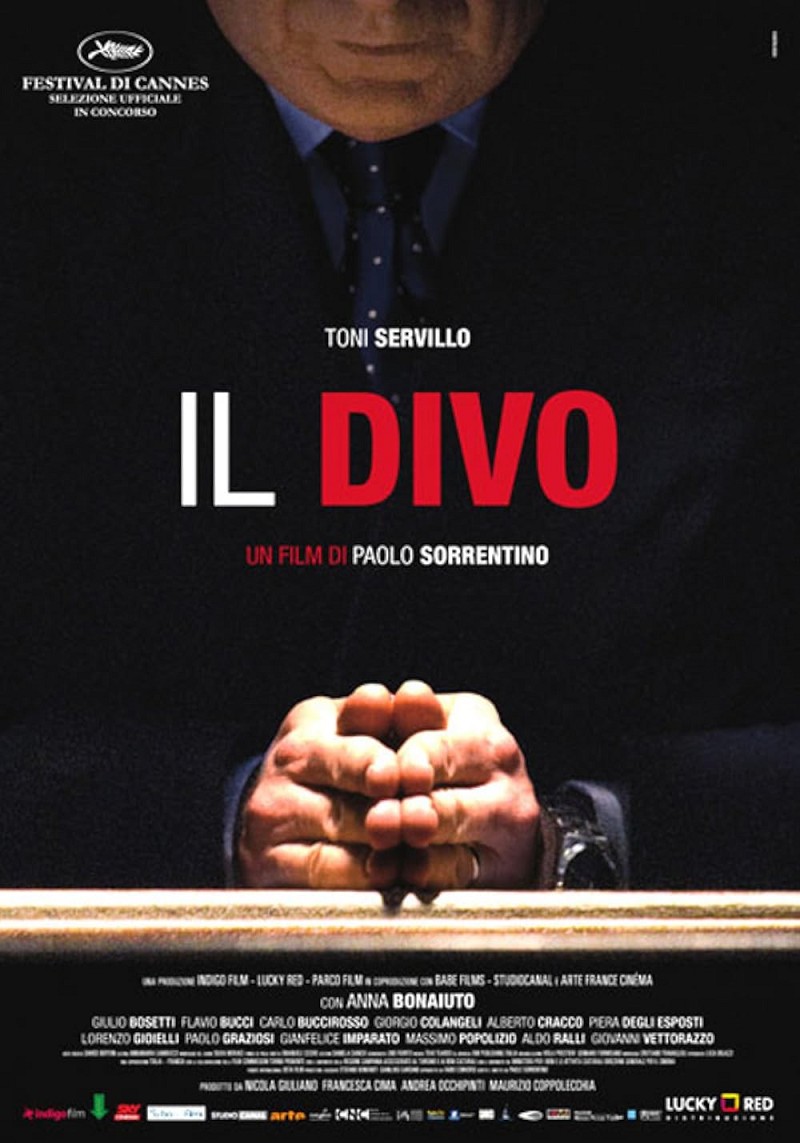
Writer-director Paolo Sorrentino received the Cannes Jury Prize for his biopic of the fabled Italian politician Giulio Andreotti (Toni Servillo). The film covers a large portion of Andreotti's seven terms as prime minister of Italy, and concerns itself with the inner machinations of the man known as "Beelzebub," the intrigue surrounding the disappearance of his political enemies (including two-time prime minister Aldo Moro), and the role of the Mafia in postwar Italy.
Book Tickets
|
Iron Ladies + Q&A (12A)
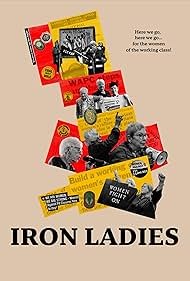
The screening will be followed by a Q&A with director Daniel Draper and activist Heather Mendick (Hackney Independent Socialist Group) hosted by The Canary's and Indy Film Library's John Ranson.
An inspiring new documentary tells the story of the iron-willed women who became the backbone of the 1984–85 Miners' Strike. From Scotland to Kent, women from coalfield communities share their experiences of the year-long struggle, and how their actions reshaped political activism for working-class women.
Through talking heads and archive footage Iron Ladies recounts the spirit and dedication of the activists and the impact of the movement.
Book Tickets
|
Jia Zhangke, a Guy from Fenyang (18)
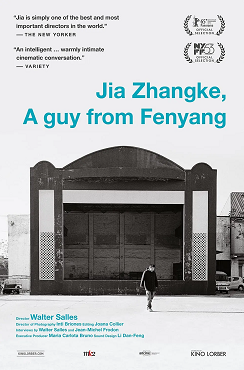
The screening on 10 April will feature a recorded introduction by the director Walter Salles.
Jia Zhangke, A Guy from Fenyang is a rare, feature-length documentary devoted to the Chinese auteur Jia Zhangke, directed by Brazilian filmmaker Walter Salles. Viewed today, it stands as an invaluable record of a filmmaker’s life, comparable to Olivier Assayas’ 1997 documentary on Hou Hsiao-hsien, one of Jia’s key inspirations.
Filmed entirely in China across locations central to Jia’s life and work, including his hometown Fenyang in Shanxi province and Beijing. The film features interviews conducted by Walter Salles and critic Jean-Michel Frodon, who also collaborated with Jia on the companion book The World of Jia Zhangke. Jia reflects on his past, his filmmaking philosophy, and his artistic development. Blending candid conversations with excerpts from his films, the documentary also brings together voices from his creative circle, including long-time collaborator Zhao Tao, who has appeared in all of Jia’s narrative features since Platform, alongside family, friends, and neighbors. The result is an affectionate and comprehensive portrait of an artist in motion, also originating a peculiar outlook on the role of cinema itself.
Book Tickets
|
Jules et Jim (12A)
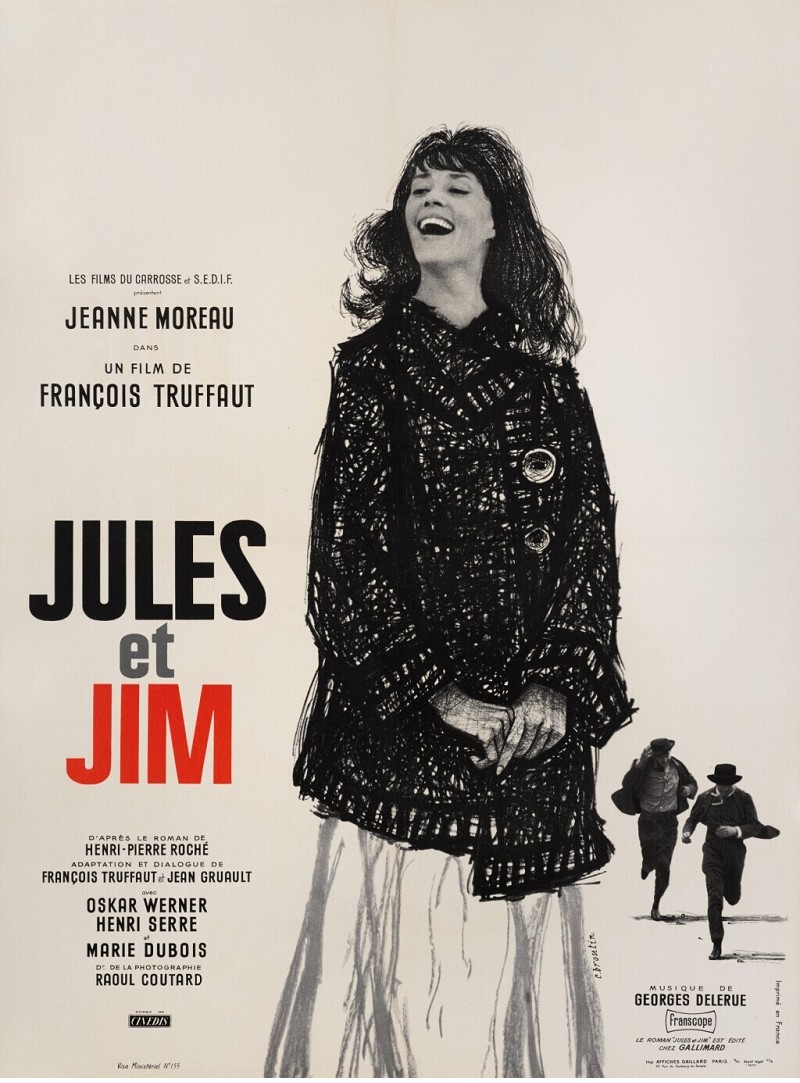
Hailed as one of the finest films ever made, Jules et Jim charts, over twenty-five years, the relationship between two friends and the object of their mutual obsession. The legendary François Truffaut directs, and Jeanne Moreau stars as the alluring and willful Catherine, whose enigmatic smile and passionate nature lure Jules (Oskar Werner) and Jim (Henri Serre) into one of cinema’s most captivating romantic triangles. An exuberant and poignant meditation on freedom, loyalty, and the fortitude of love, Jules etJim was a worldwide smash in 1962 and remains every bit as audacious and entrancing today.
Karaoke, crafts + Harold and Maude (15)
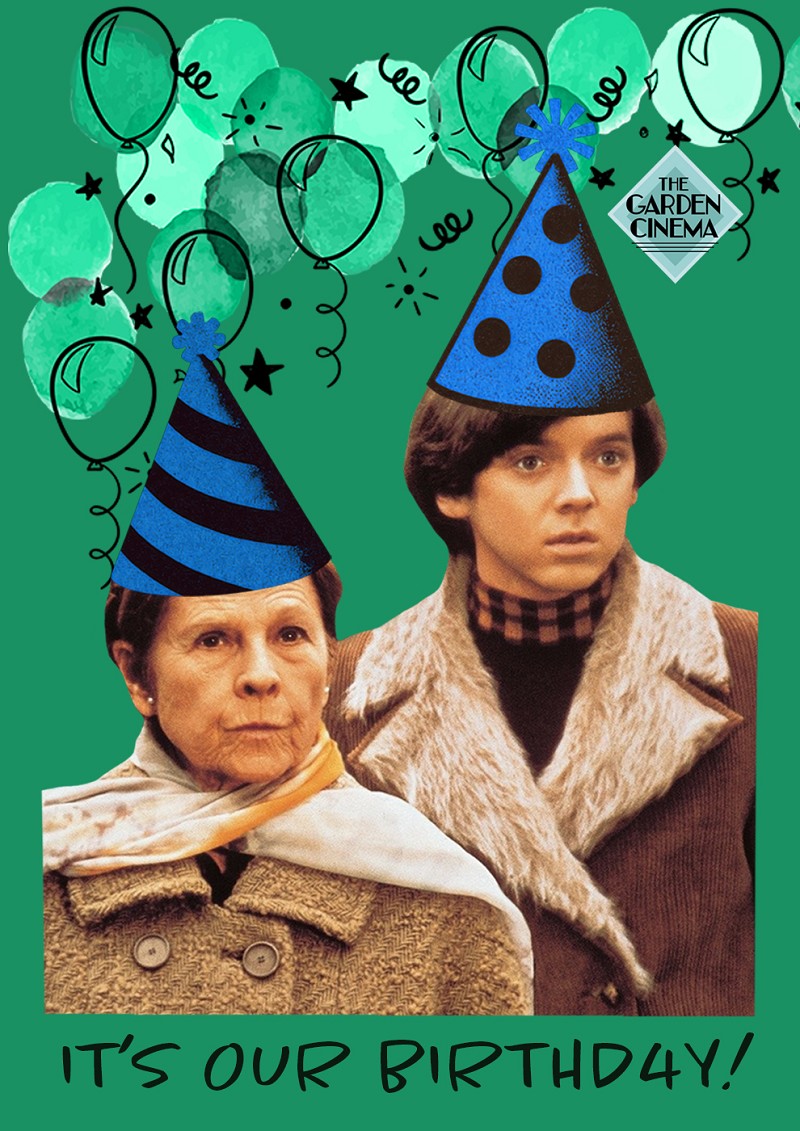
As The Garden Cinema would never have made it to a 4 year anniversary without your wonderful support, members are invited to help us close our day of celebratory screenings on Saturday 28 March with a birthday party featuring your favourite cinematic tunes, and party hats aplenty!
Of course, it wouldn’t be a Garden Cinema party without a classic feature: we'll end the night with a screening of Hal Ashby’s Harold and Maude, which was suggested by member Joseph Lidster.
Doors will open at 19:00, after which you're welcome to make your way to either bar area:
- In the upstairs Atrium Bar we will be hosting a karaoke party, where you'll have the chance to belt out iconic songs from a range of films - be that from Harold and Maude's evergreen Cat Stevens soundtrack, or another needle drop you would like to sing your lungs out to
- If you prefer a bit more peace and quiet, and would like to let your creativity flourish, the downstairs Garden Bar will have several crafting stations set up, allowing you to decorate artistic party hats and celebratory bunting, or press your own Garden Cinema badges (commemorating seasons & screenings from the past four years)
Both bars will be serving up drinks throughout the night, and your first one will be included in your ticket, with a choice of our very own Garden Pale Ale (courtesy of the wonderful Lost and Grounded Brewers), a glass of party punch, or a soft drink of your choice.
At 21:00, we'll head into the screens for our tribute to the late Bud Cort, with Ashby’s timeless ode to love and life, Harold and Maude.
Tickets for this event are restricted to 2 per member, so you can bring your favourite party person along for the festivities, and are just £14.50 each. Each ticket includes access to the birthday party, a complimentary drink, and an unallocated seat for the film.
Book Tickets
|
La Notte (12)
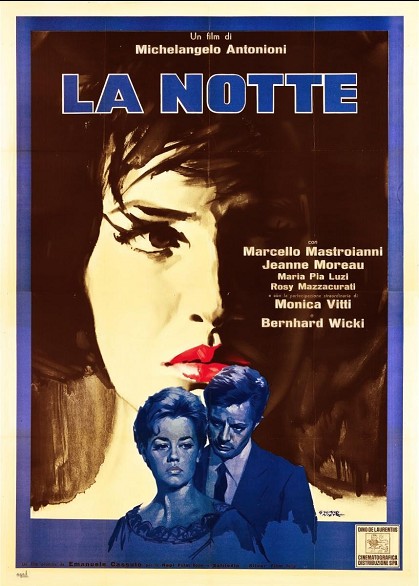
This psychologically acute, visually striking modernist work was director Michelangelo Antonioni’s follow-up to the epochal L’avventura. Marcello Mastroianni and Jeanne Moreau star as a novelist and his frustrated wife, who, over the course of one night, confront their alienation from each other and the achingly empty bourgeois Milan circles in which they travel. Antonioni’s muse Monica Vitti smolders as an industrialist’s tempting daughter. Moodily sensual cinematography and subtly expressive performances make La Notte an indelible illustration of romantic and social deterioration.
Le Cercle Rouge (PG)
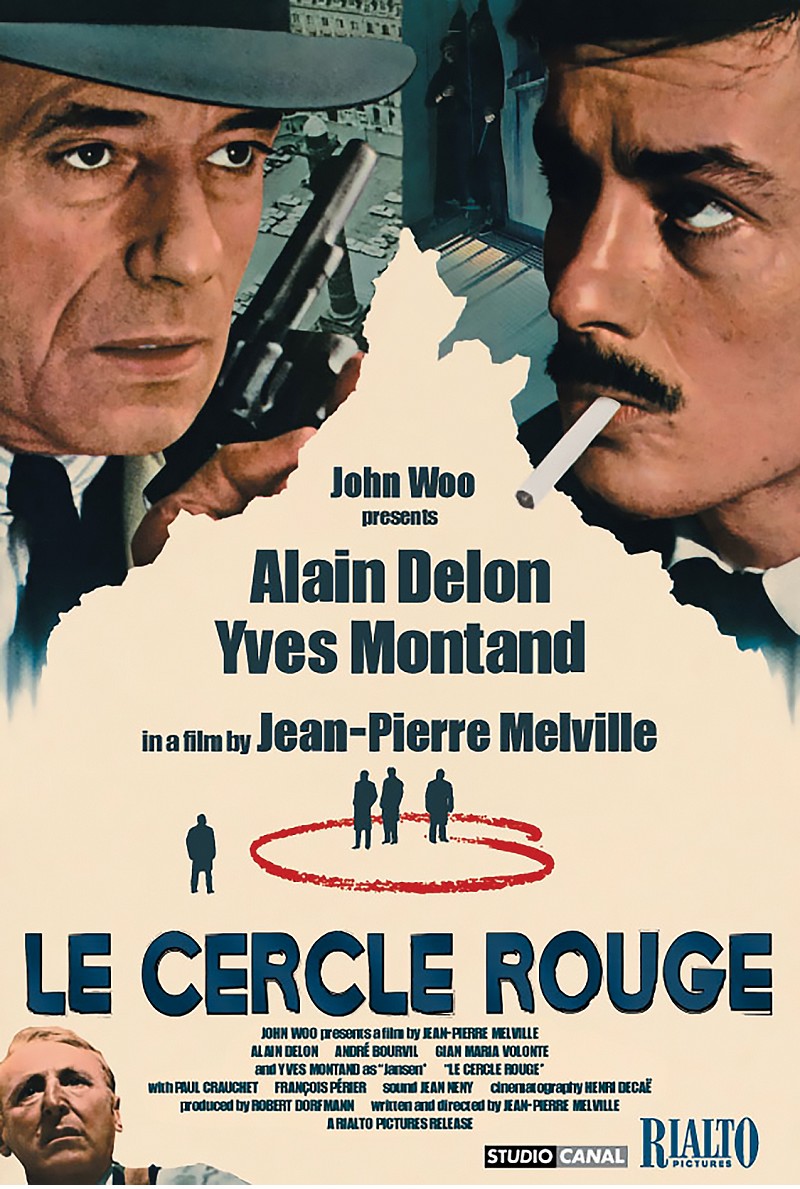
Le Cercle Rouge was proposed for our 4th Birthday celebrations by Garden Cinema member Mo Abdelrahman.
Alain Delon plays a master thief, fresh out of prison, who crosses paths with a notorious escapee (Gian Maria Volontè) and an alcoholic ex-cop (Yves Montand). The unlikely trio plot a heist, against impossible odds, until a relentless inspector and their own pasts seal their fates. With its honorable antiheroes, coolly atmospheric cinematography, and breathtaking set pieces, Le Cercle Rouge is the quintessential film by Jean-Pierre Melville - the master of ambiguous, introspective crime cinema.
This screening will finish at 15:20.
Book Tickets
|
Le Havre (PG)
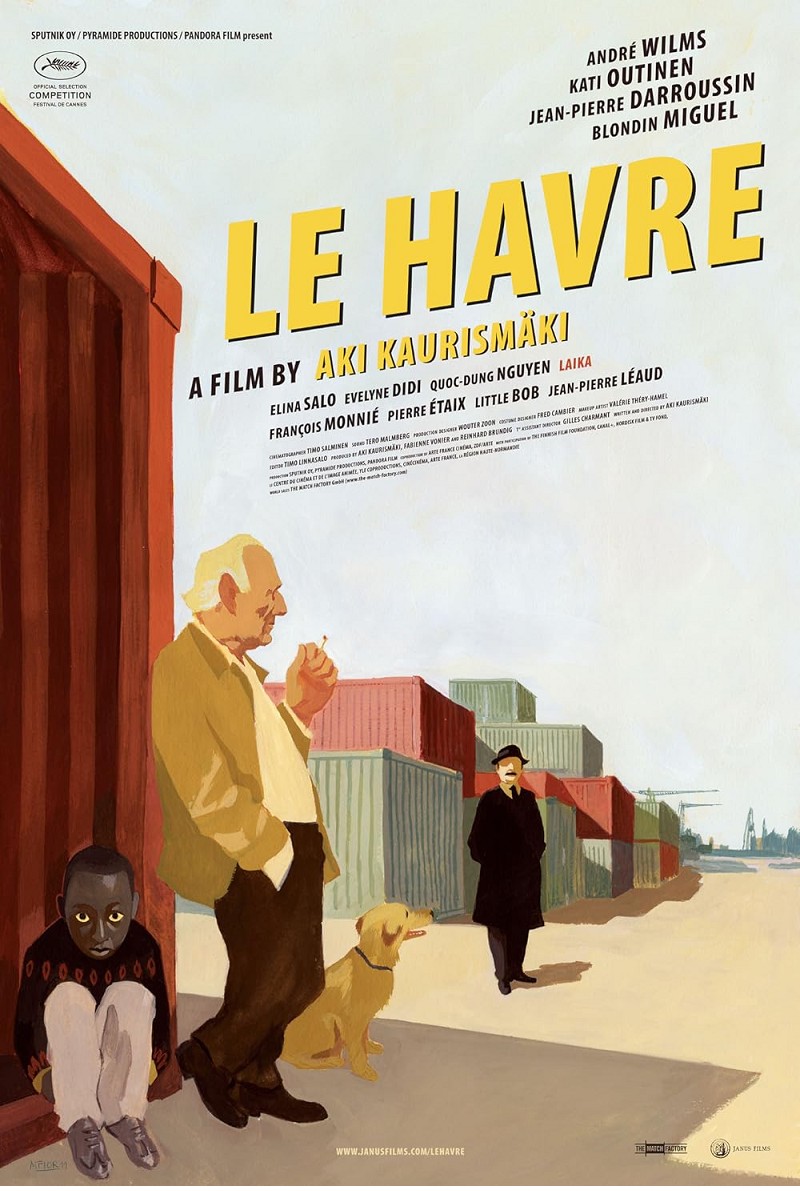
Le Havre was proposed for our 4th Birthday celebrations by Garden Cinema member Emanuele Busuito.
The life of former author and well-known bohemian Marcel Marx is disrupted when his wife is diagnosed with a serious disease. When fate suddenly throws in his path an underage immigrant, Marcel once more has to rise against the cold wall of human indifference with his only weapon of innate optimism and the unwavering solidarity of the community. But against him stands the whole blind machinery of the Western constitutionally governed state, this time represented by the dragnet of the police, moment by moment drawing closer around the refugee boy... It’s time for Marcel to polish his shoes and reveal his teeth.
This screening will finish at 17:43.
Book Tickets
|
Les Abysses (18)
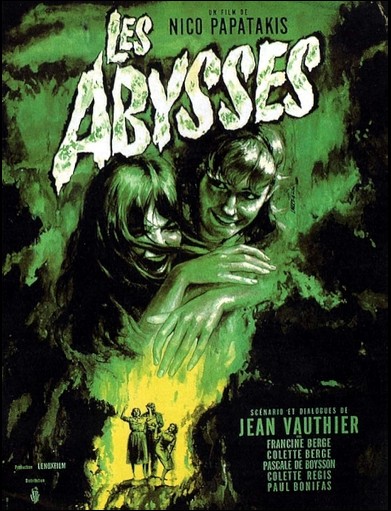
The screening on Thursday April 19 will be introduced by freelance writer and programmer Savina Petkova. It will feature English subtitles.
Synopsis:
Papatakis’s debut unfolds in a country home where two domestic servants are cruelly exploited by the family they work for. When their abusive employers push them too far, it provokes a shocking and escallating rebellion. This allegorical portrait of the Algerian resistance was inspired by the real-life story of the Papin sisters, two maids who brutally murdered their employers in 1930s France - also the basis for Jean Genet’s influential 1947 play The Maids and Claude Chabrol’s 1995 psychological thriller La Cérémonie.
Curator’s note:
Boycotted by the selection committee of the 1963 Cannes Film Festival, Les Abysses was publicly defended by Jean-Paul Sartre, Simone de Beauvoir, André Breton, and Jean Genet. The case of the two sisters has long been cited in French left-wing intellectual circles as a perfect example of working-class struggle. In Papatakis' view, the sisters' violence stemmed directly from their living conditions - the humiliations they endured and the exploitation they suffered at the hands of their employers.
The film exemplifies Papatakis' hyper-stylized, expressionistic approach, escalating the domestic conflict into paroxysmic class warfare. Like ancient Greek tragedies where masked actors embodied archetypes rather than nuanced psychological portraits, the performances are deliberately exaggerated - raw and symbolic rather than naturalistic.
Simone De Bouvoir:
"A magnificent and strange film in which reason descends into madness, paradise into the depths of hell, and where love is painted with the colours of hate. [...] Only the violence of the crime committed by the two heroines allows us to measure the atrocity of the invisible crime of which they themselves were victims
Content warning:
The film Contains intense violence, psychological distress, and disturbing imagery related to class conflict and abuse.
Book Tickets
|
Lift to the Scaffold (PG)
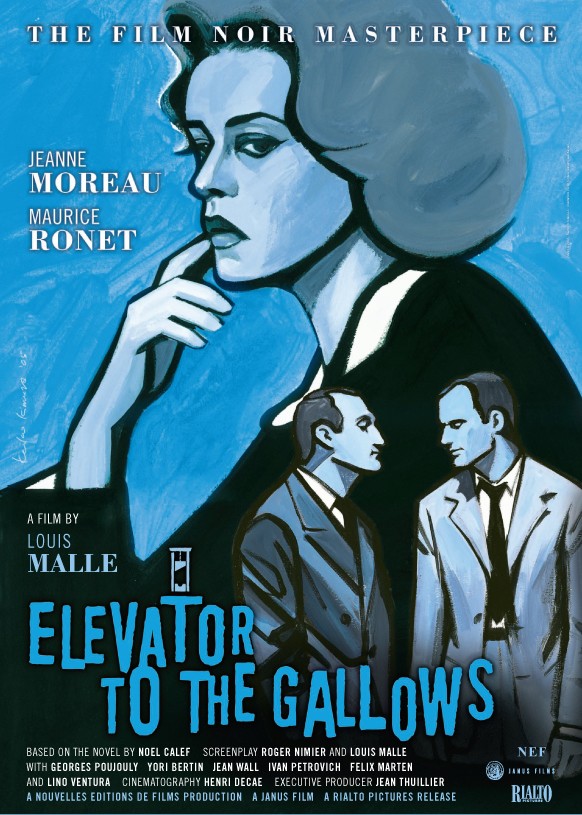
For his feature debut, twenty-four-year-old Louis Malle brought together a mesmerizing performance by Jeanne Moreau, evocative cinematography by Henri Decaë, and a legendary jazz score by trumpeter Miles Davis. Taking place over the course of one restless Paris night, Malle’s richly atmospheric crime thriller stars Moreau and Maurice Ronet as lovers whose plan to murder her husband (his boss) goes awry, setting off a chain of events that seals their fate. A career touchstone for its director and female star, Lift to the Scaffold was an astonishing beginning to Malle’s eclectic body of work, and it established Moreau as one of the most captivating actors ever to grace the screen.
Little Amélie - Family Screening (PG)
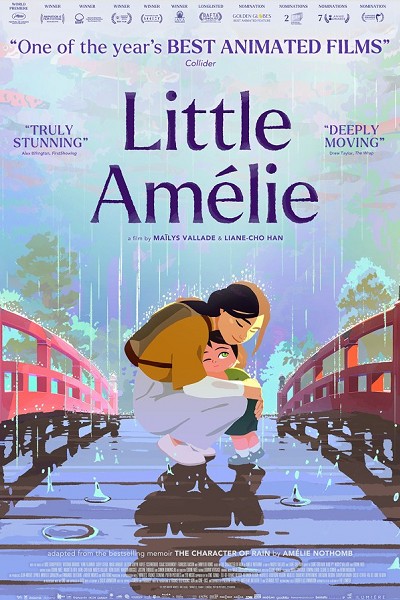
Little Amélie is nominated for Best Animated Feature at the 2026 Oscars and BAFTAs.
Born in Japan to Belgian parents, little Amélie sees the world as a place of endless wonder. With her beloved friend and companion Nishio san by her side, every day becomes a new adventure, full of mystery, humour, and wonder. But on her third birthday, one unexpected moment changes her life forever, opening the door to emotions she never knew existed.
Based on Amélie Nothomb’s best-selling autobiographical novel, The Character of Rain, Little Amélie, is a visually enchanting tale about curiosity, courage, and the healing power of human connection.
The screenings will be in the English language dub.
On Sunday mornings our Family Screenings are followed by a free activity for Children.
The screening is Pay What You Can, which means you’re free to pay as much or as little as you can afford. By paying for a ticket, you will enable us to keep offering Pay What You Can screenings to families struggling with the cost of living. Thank you
Mademoiselle (15)
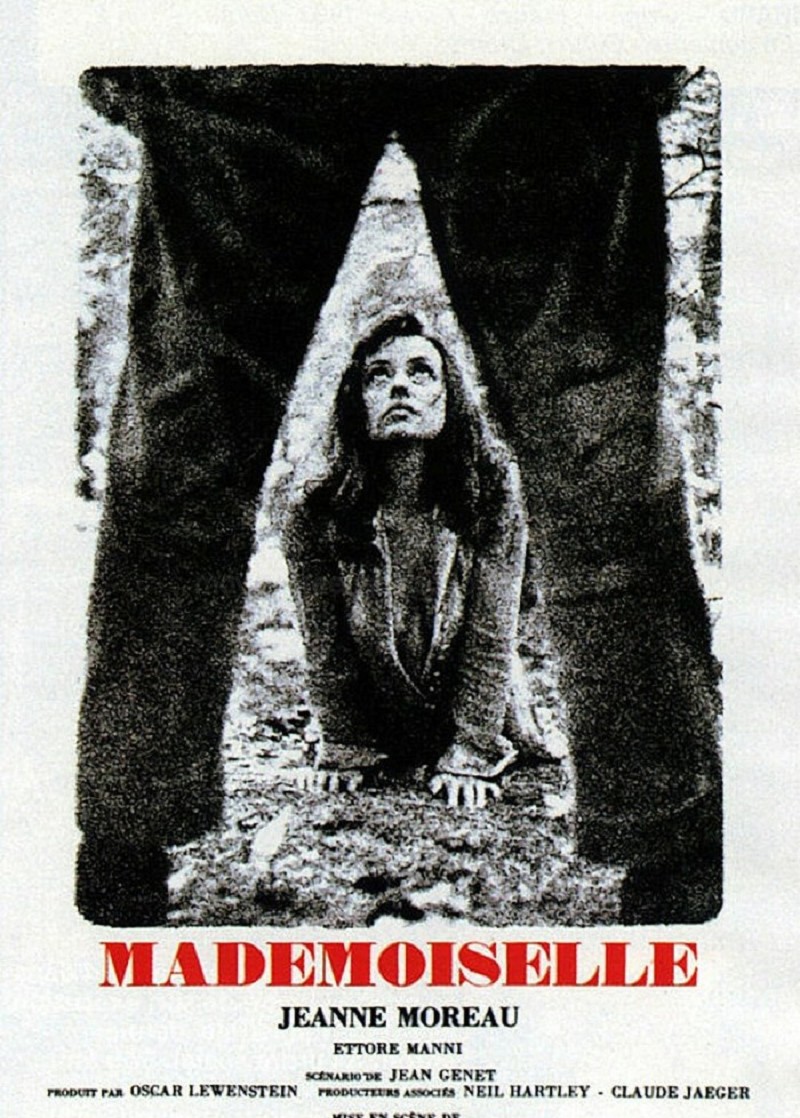
Marguerite Duras adapted Jean Genet’s story of a repressed schoolteacher in rural France (an unflinching turn by Jeanne Moreau) who causes mayhem in her village and allows prejudiced locals to blame an Italian woodcutter (Ettore Manni), with horrific results. Director Tony Richardson renders a one-of-a-kind hybrid of arthouse drama and psychosexual thriller, which even its detractors found too audacious to ignore (Roger Ebert declared Moreau 'flawless'). Fraught with Freudian symbols (snakes, felled pine trees) and a scathing vision of corrupt and unknowable humanity, Mademoiselle was nominated for the Palme d’Or and earned a BAFTA for Jocelyn Rickards’ costumes.
Mary Poppins (U)
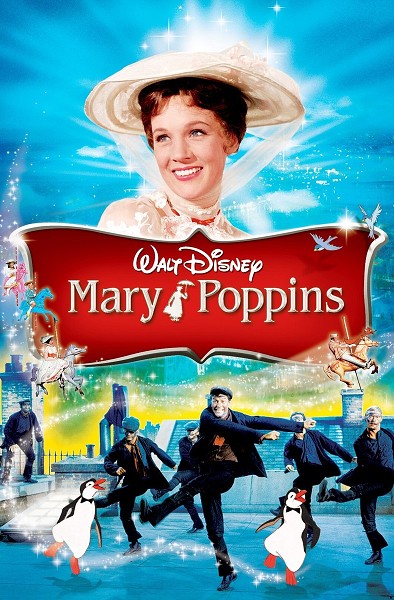
“Practically Perfect In Every Way” Mary Poppins (Julie Andrews) flies out of the windy London skies and into the home of two mischievous children. With the help of a carefree chimney sweep named Bert (Dick Van Dyke), the spirited nanny turns every chore into a game and every day into a “Jolly Holiday” to reconnect the children with their parents.
Into Film age recommendation: 5+
On Sunday mornings our Family Screenings are followed by a free activity for Children.
The screening is Pay What You Can, which means you’re free to pay as much or as little as you can afford. By paying for a ticket, you will enable us to keep offering Pay What You Can screenings to families struggling with the cost of living. Thank you.
Members' Film Quiz: Birthday (18)
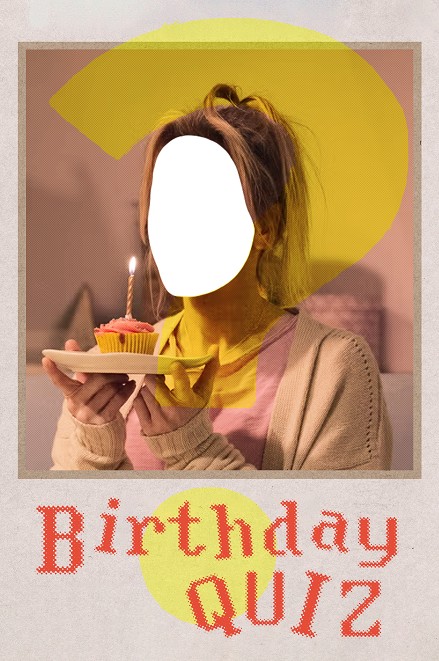
To tie in with the cinema's fourth anniversary celebrations, our next Members' Film Quiz will be inspired by birthdays (and more broadly, parties)!
Are you the person in your friend group who everyone asks for film recommendations to get them into the party spirit? Do you know your Party Girl from your Abigail's Party, and your My Favourite Cake from your Layer Cake? These skills you've been honing might pay off on Wednesday 25 March, during our Members' Film Quiz! Join us for an evening of (very) loosely celebration-themed trivia questions, film clips & audio rounds.
There will be presents up for grabs for the top 3 teams, as well as a liquid bonus for the best team name.
We have space for 10 teams of max. 5 contestants each. Tickets are £5, and are restricted to 1 per member, so please make sure to be logged in and book quickly once ticket sales open on Thursday 5 March at 13:00.
Important info before booking:
- If you would like to be placed on a team with friends (who must also be members of the cinema), you can either:
- Purchase your tickets individually, and leave their names during the checkout process, so we can place you on the same team
or
- Purchase tickets for the entire team, and assign each ticket to the individual team members (you will need to know their surname as well as the email address their membership is registered under, to do this) - If you're joining by yourself, you will be placed on a Garden Cinema All Stars team - a great opportunity to meet fellow members!
Please note that any teams of 3 contestants or less may be merged together to allow as many members as possible to join.
Book Tickets
|
Metropolitan (15)
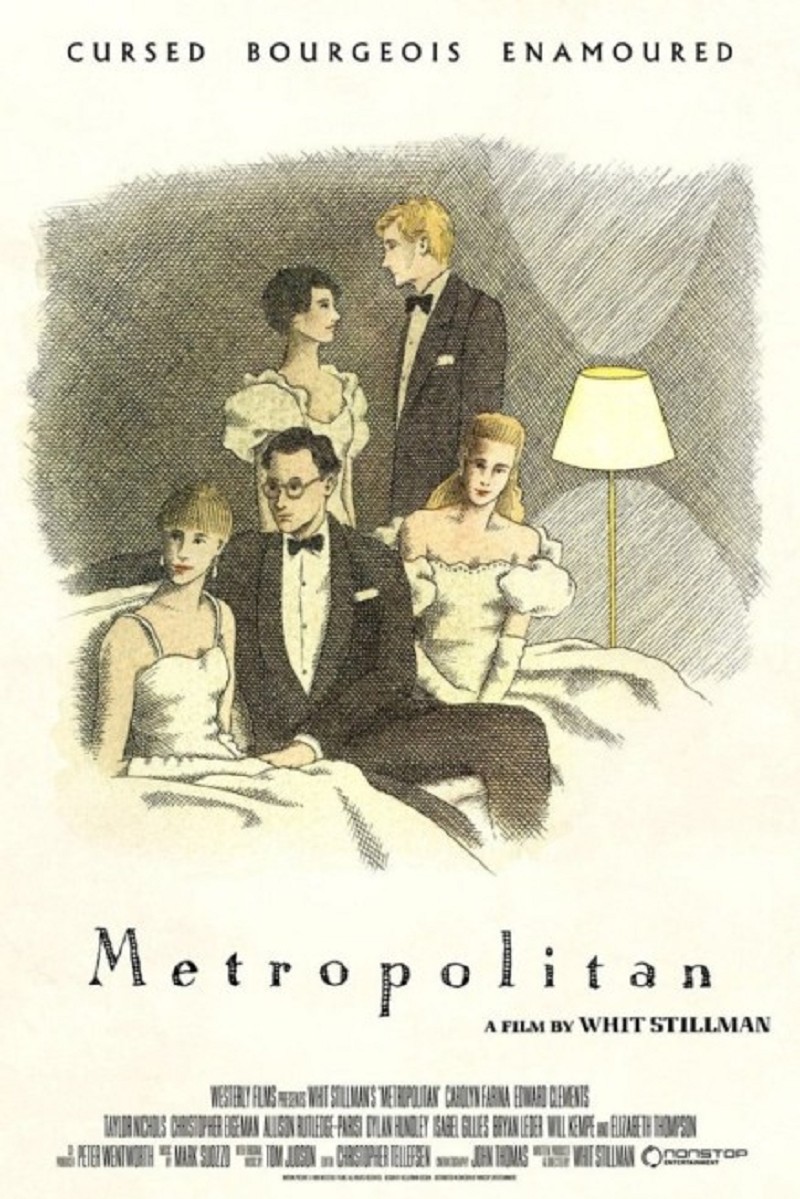
Metropolitan was proposed for our 4th Birthday celebrations by Garden Cinema member Larri Murdoch.
One of the great American independent films of the 1990s, the surprise hit Metropolitan, by writer-director Whit Stillman, is a sparkling comedic chronicle of a young man’s romantic misadventures while trying to fit in to New York City’s debutante society. Stillman’s deft, literate dialogue, and hilariously highbrow observations earned this first film an Academy Award nomination for best original screenplay. Beneath the wit and sophistication, though, lies a tender tale of adolescent anxiety.
This screening will finish at 18:04.
Book Tickets
|
Mountains May Depart (12A)
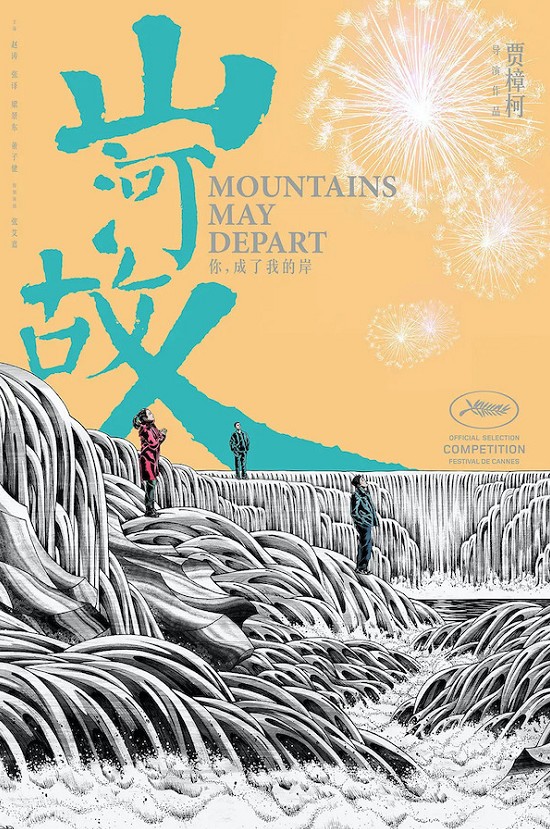
The screening on 16 April will be introduced by Lu Xiaoning (SOAS).
As one of Jia Zhangke’s most ambitious works, Mountains May Depart spans three decades, tracing China’s rapid transformations through the intimate lens of a family drama. Set primarily in Jia’s native Fenyang and later partially in Australia, the film blends fiction with poetic realism. Importantly, as in many of Jia’s other works, it features a striking use of popular music - the Pet Shop Boys and Cantonese singer Sally Yeh - which not only evokes nostalgia but also underscores and drives the characters’ emotional journey across time and distance.
The story follows Tao, a woman in 1990s Fenyang, her lover Jiang, and her young son Dollar. Across three distinct periods, the 1990s, early 2000s, and 2025, the characters confront love, separation, and the changing currents of life, offering a poignant reflection on memory, belonging, and the passage of time.
My Father's Shadow (12A)
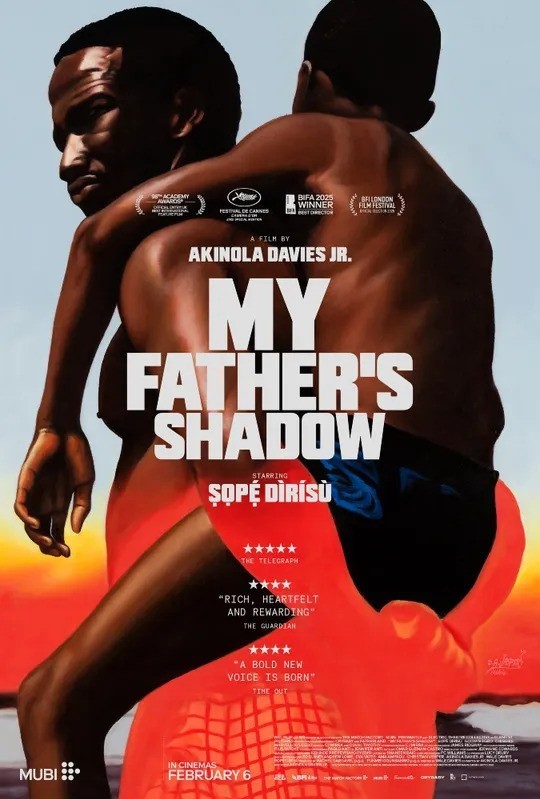
The UK’s Best International Feature Film entry to the 98th Academy Awards and recipient of the Caméra d’Or Special Mention at Cannes, Akinola Davies Jr.’s My Father's Shadow is a poetic, tender portrait of father-son bonds. Framed by the political landscape of 1993 Lagos, the film follows a father and his two young sons as they journey into and around the vibrantly rendered Nigerian metropolis, quietly reckoning with their relationship while navigating a city on the precipice of democratic crisis. Brothers and collaborators Akinola Davies Jr. and Wale Davies bring us a groundbreaking feature debut – centering an award-winning performance by Sopé Dìrísù - that reveals the profound depths of what families leave unspoken.
The Garden Cinema View:
This impressive debut feature from Akinola Davies Jr. is a tender memory play, a tribute to his father, and an immersion into a politically volatile Nigeria in 1993. Co-writing with his brother Wale Davies, My Father’s Shadow is a deeply personal, and partially biographical work. Sopé Dìrísù anchors the drama as their father, exuding strength, vulnerability, desperation, and love, in what is a complex and well-rounded portrayal of father-son relations. Despite a small budget, early 1990s Lagos is rendered in vivid sights and sounds that are transportive. Beneath this ripples mystical energies, whilst the escalating political breakdown gradually frays the edges of this portrait. A poignant film, and one which announces a key new voice in British cinema.
No Other Choice (15)

In his wickedly incisive new thriller, Park Chan-wook delivers a brutal allegory of modern work culture, starring Lee Byung Hun as a devoted family man driven to violence after losing his job.
When esteemed paper specialist Yoo Man-soo is suddenly laid off, the carefully constructed life he has long prided himself on begins to unravel. So when a coveted new opportunity arises, he devises a flawless plan to eliminate his rivals - by any means necessary. With dazzling precision and a gleefully sinister edge, Park delivers an entertaining thriller steeped in his trademark dark humor, razor-sharp twists, and sumptuous visual style, reaffirming his singular place in contemporary cinema.
The Garden Cinema View:
Park Chan-wook returns with his most purely comic film to date, albeit one still bristling with perverse and violent thrills. This satire of workplace precarity is highly prescient, quite unsettling, and thunderously entertaining. Lee Byung-hun is excellent (although playing to type) as our handsome family man, who finds himself following a path of psychotic logic to guarantee his future employment. Park’s camera moves and edits are as playful and baroque as ever here, but without distracting from the action. And by following his Vertigo-esque Decision to Leave with this marks him as the true heir to Alfred Hitchcock.
Palestine Comedy Club (12A)
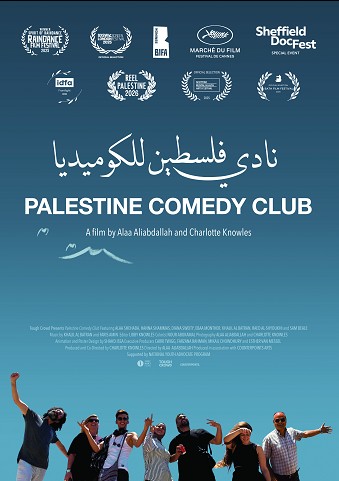
The screening on 28 February will be followed by a short Q&A with Alaa Shehada, Nabil Abdulrashid, and Libby Knowles.
When six Palestinian comedians hit the road to tour a stand-up show across Palestine and Israel, their search for humour amidst the injustice of everyday Palestinian life becomes a plea for humanity against in the face of brutal war.
The Garden Cinema View:
Weaving together clips from stand up performances and intimate moments, Palestine Comedy Club manages to be both a genuinely funny and engaging portrait of some very likeable people, as well as an accessible and factual exposé of the geopolitical reality of being Palestinian today. Alaa AliAbdallah's direction and editor Libby Knowles' crafty editing allows us to experience the comedians' protracted journey as an immersive and emotional rollercoaster-cum-roadtrip, with the constant shifts in tone infusing levity and joy into the darkest moments.
There is an unavoidable underlying sense of injustice at all the hurdles these comedians face simply getting from one place to another through the checkpoints fragmenting their land and isolating them from the world. Yet, this is a very hopeful film, showcasing Palestinian comedy - a distinct sense of humour which permeates most Palestinian cinema and storytelling - and celebrating the spirit of stand-up comedy more generally.
Platform (12)
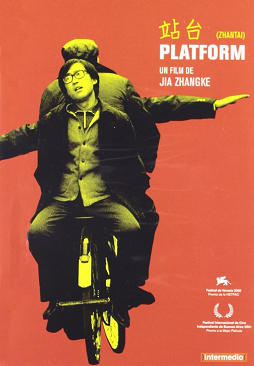
The screening on 15 March will be introduced by season curator Millie Zhou.
Platform, the second chapter of Jia Zhangke’s 'Hometown Trilogy' (alongside Xiao Wu and Unknown Pleasures), is shot on 35mm and marks Jia’s first collaboration with Zhao Tao, beginning a partnership that would continue across all of his fiction features. Spanning the late 1970s to the early 1990s, the film unfolds during China’s most far-reaching period of reform and transformation, closely overlapping with Jia’s own coming of age.
Set in a small town in Shanxi province, Platform follows a group of young performers as they evolve from a state-run propaganda troupe into drifting individuals navigating pop culture, romance, and uncertainty. As their ideals fade and desires remain unresolved, the film observes a generation quietly shaped by historical change, unfolding in lived time and ordinary moments.
Querelle (18)
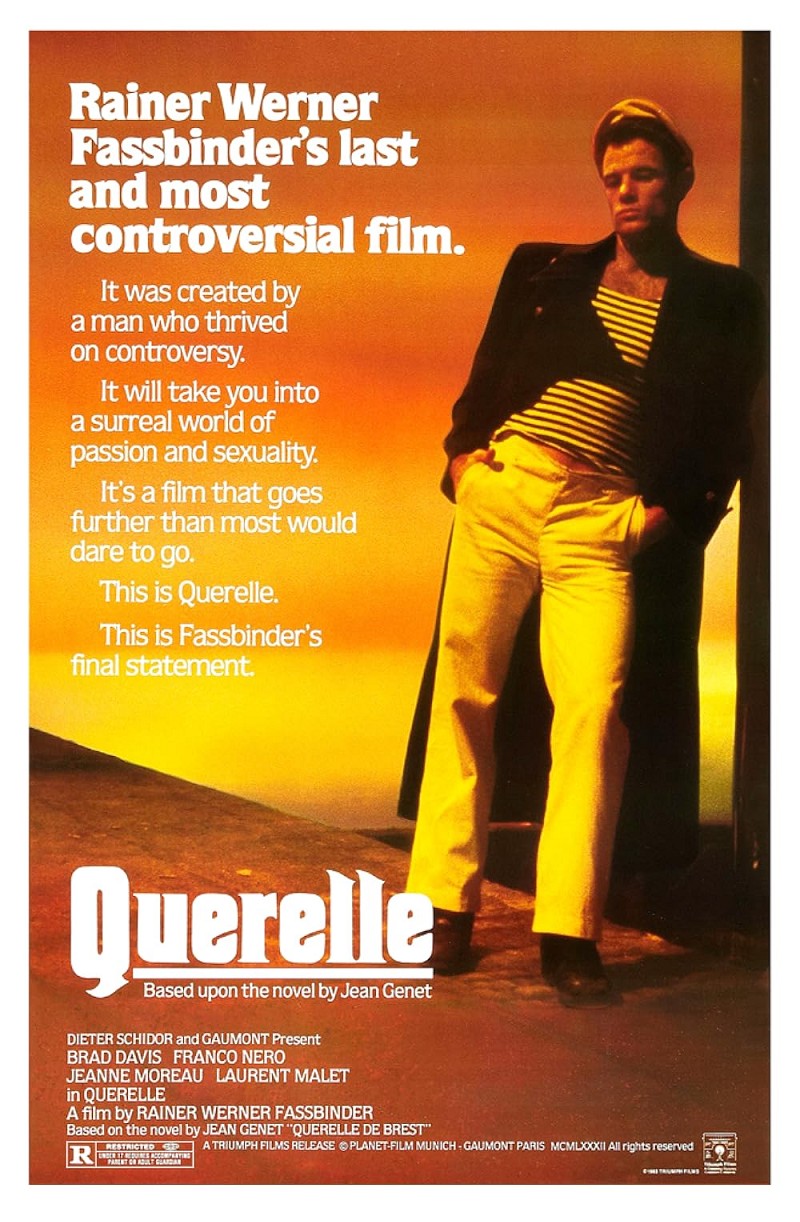
The story of a beautiful, proud, and tough loner, a sailor named Querelle, whose commanding officer Seblon worships and desires him from afar. Querelle turns on his drug-smuggling partner and murders him. He then goes to a notorious brothel run by the rapacious Lysiane (Jeanne Moreau), who leads Querelle into his first homosexual encounter. Then, Querelle has become vulnerable and soft, and soon the once powerful object of passion comes to belong to Seblon.
Records, cocktails + Lift to the Scaffold (18)
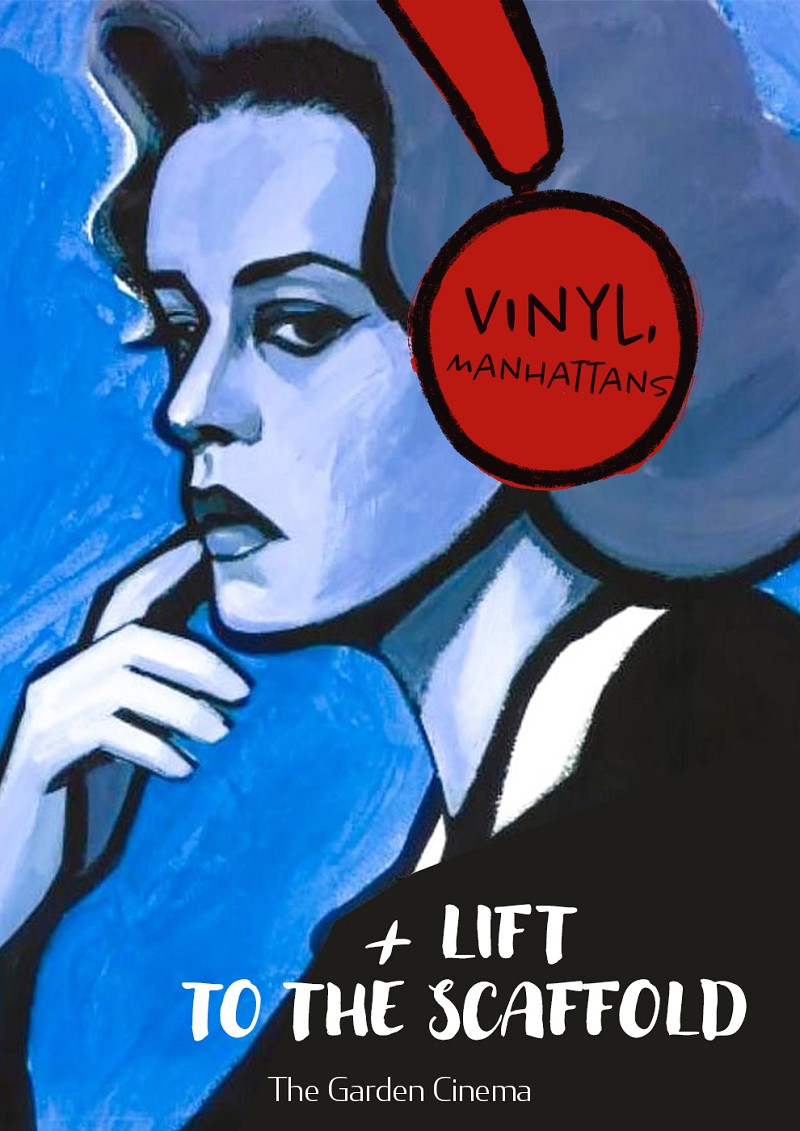
To celebrate our new Jeanne Moreau season, we're very excited to welcome cinema members, long-time music enthusiasts, and occasional DJs Andy and Paul for a special screening of Lift to the Scaffold on Saturday 11 April.
To prepare you for this wonderful film (as well as its iconic Miles Davis soundtrack), the pair will be playing jazz from their vinyl collection in the Atrium Bar before and after the screening, and they will be delighted to talk all things music and film!
To enhance the sense of urbane sophistication, our bar team will be serving up Manhattans for you to sip on - the first of which will be included in your ticket.
Event timings:
19:30-20:30 Records and cocktails in the Atrium Bar
20:30-22:05 Screening of Lift to the Scaffold
22:05-23:00 Vinyl and cocktails continue
Tickets for the event are £18.50 each, and include access to the vinyl sessions, a seat for the film screening, and a complimentary Manhattan (or a non-alcoholic alternative). They are restricted to 2 per member, meaning you can bring a fellow music enthusiast along, even if they're not a member.
There will be additional (regular) screenings of Lift to the Scaffold throughout the season - you can find these here.
Book Tickets
|
Resurrection (15)
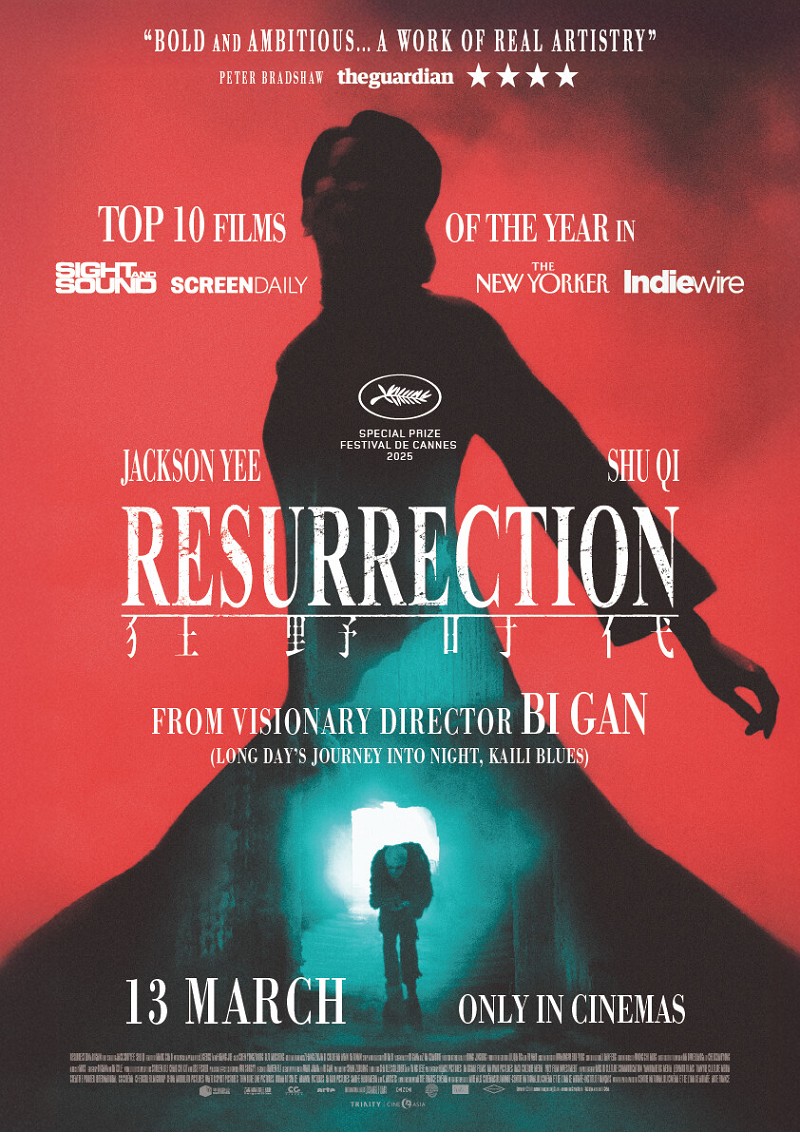
With his senses-ravishing third feature, visionary director Bi Gan takes his deepest plunge yet into the realm of pure cinematic dreamscape. In a world where humans have forsaken dreams in exchange for immortality, a dreaming monster (Jackson Yee) embarks on a shape-shifting odyssey through illusion, beauty, and terror that takes him across the twentieth century and to the end of time. Unfolding in five dazzlingly imagined chapters that encompass everything from silent-cinema expressionism, to film noir, to a delirious vampire love story shot in one of Bi’s signature long takes, Resurrection is a work of breathtaking imagination in which cinema is the ultimate portal to the unconscious mind.
The Garden Cinema View:
Bi Gan’s first film in 7 years (he’s still only 36), cements his place at the vanguard of contemporary cinema; a filmmaker whose singular vision, and self-confidence, makes for thrilling viewing experiences. Resurrection is his most ambitious work to date (and the boldest film of the year). A sprawling and hallucinatory sci-fi epic which begins in a kind of Guy Maddin early-cinema styled future, before plunging backwards into 20th century Chinese history. This is a vast genre-hopping canvas. And as with such films (think the Wachowskis’ Cloud Atlas or Bertrand Bonello’s The Beast) there is a fine line between art and folly. Resurrection might be uneven and a little frustrating when compared to Bi’s Kaili Blues or his majestic Long Day’s Journey into Night, but when it works it soars, and pushes the boundaries of what cinema can achieve.
Roman party, divine chorals + The Great Beauty (18)
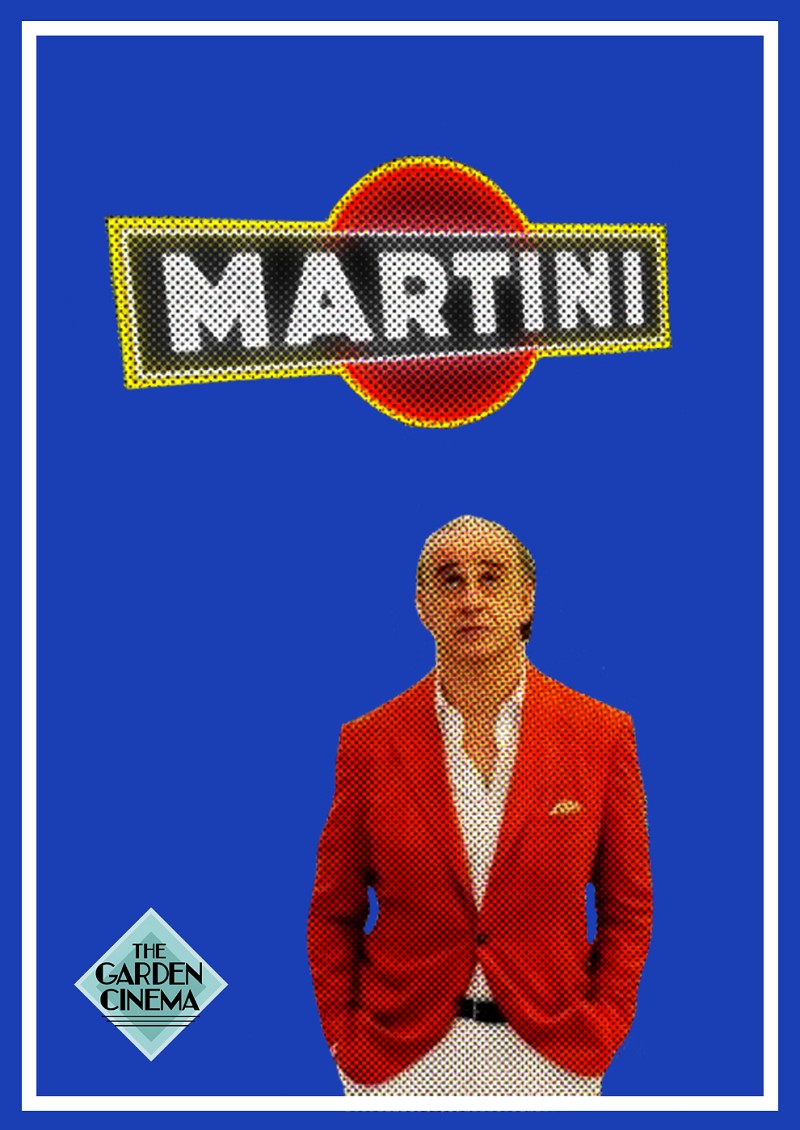
Due to popular demand, we've released extra tickets for our Roman party & screening of The Great Beauty. All tickets will give access to the party with live choral performance and include a martini, but the film will be showing across two screens simultaneously.
On Saturday 14 March, as part of our mini-celebration of Paolo Sorrentino, join us for a special screening of the director's oft-requested The Great Beauty, which will be preceded by a suitably garish Roman party with an unexpected twist!
To reflect the film's delicate balance between extravagant rooftop parties and the poetic beauty of Rome (often underscored with delicate choral music), our event will feature iconic Italo disco hits aplenty, but the celebrations will be interrupted by a moment of divine intervention, in the form of an a capella performance by the University of London Chamber Choir.
To ensure you don't go thirsty, we'll be serving martinis on the night, made with VII Hills Italian Dry Gin, which is crafted using seven botanicals, inspired by the seven hills of Rome.
Event timings:
19:00 Doors open for Roman style party & martinis
19:45 Performance by University of London Chamber Choir
20:00 Party continues
20:30 Screening of The Great Beauty
22:55 Expected finish
Tickets are £19.50 each and restricted to 2 per member, so you can bring one of your amici along, even if they're not a member. The ticket includes access to the party, a complimentary martini, and a seat for the screening of The Great Beauty.
Film synopsis:
Jep Gambardella has seduced his way through the lavish nightlife of Rome for decades, but after his 65th birthday and a shock from the past, Jep looks past the nightclubs and parties to find a timeless landscape of absurd, exquisite beauty.
About University of London Chamber Choir:
The University of London Chamber Choir (ULCC) is a student-run, professionally directed (by the brilliant Olivia Shotton) choir based at St Giles in the Fields in Central London. Their group of singers are students from colleges and institutions within the University of London, coming from all around the world and pursuing subjects ranging from Arabic to Veterinary Medicine. Together they make up a choir that encompasses many different cultural, religious or non-religious backgrounds, orientations and identities. The choir performs three termly concerts a year, the next of which will be Monteverdi's Vespers of 1610 at St Giles in the Fields on Saturday 21 March.
Website | Instagram | Concert tickets
About VII Hills Italian Dry Gin:
Made near Torino in Piedmont, VII Hills Italian Dry Gin is inspired by the Seven Hills of Rome. The recipe includes seven botanicals: juniper, blood orange, pomegranate, roman chamomile, rosehip, artichoke and celery. These vibrant flavours are distilled into each bottle alongside years of culture and the heritage from the region. Perfect for negronis, and great for martinis!

Romy and Michele's High School Reunion + Performance by The Mildmay Choir (15)
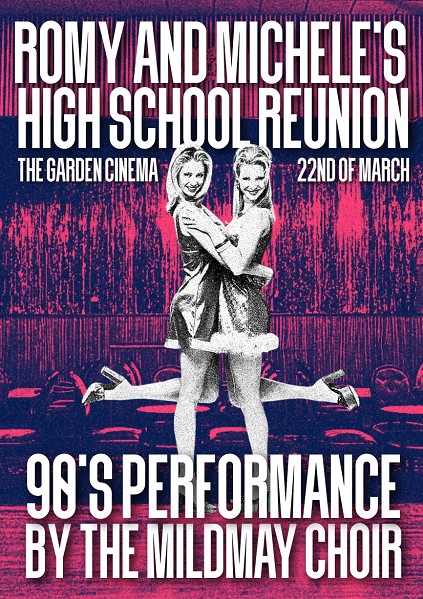
Hot on the heels of three sold-out nights at The Mildmay Club, we're delighted to be welcoming the fabulous Mildmay Choir to perform a selection of iconic 90s songs prior to the film.
Released in 1997, Romy and Michele's High School Reunion was something of an anomaly of its time - a sweet and funny buddy movie starring two women (Mira Sorvino and Lisa Kudrow). In the 29 years since its release, its endearing 90s charm, quirky characters and nostalgic soundtrack have elevated it to cult-classic status. It also passes the Bechdel test with flying colours (with a side of sparkles and chunky heels!).
Romy and Michele have been through it all, including being tortured by the popular crowd when in high school. When they receive word of a 10 year reunion, they come to realise their lives aren’t as impressive as they’d like them to be. Instead of staying home they go to the reunion with business outfits, cell phones, and one heck of a bogus success story.
Timings:
14:30-15:00 Mildmay Choir performance in the Atrium Bar
15:00-16:45 Film screening in Screen 3
Tickets for this event are £13 for members and their +1, and £16 for non-members. They include access to the choir performance, as well as an unallocated seat for the screening.
Book Tickets
|
Screen Cuba presents: Capablanca (18)
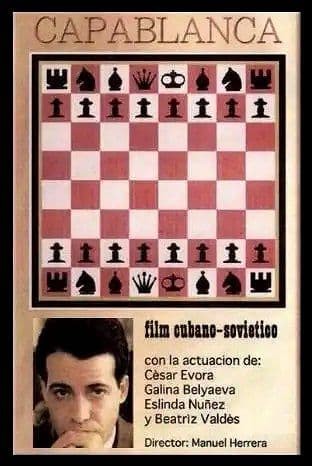
The screening will be introduced by special guests from Cuba, distinguished cinema actors Mirtha Ibarra and Eslinda Núñez.
Cuban world chess champion José Raúl Capablanca is the inspiration for this stylish drama set in 1925, part sports pride, part tragic love story.
The man who created a revolution in the game of science, goes to Moscow to test his strength and falls in love with a Bolshoi ballerina. The brilliant chess player José Raúl Capablanca (1888-1942), is an icon to many Cubans: inspiring generations to learn the game, while Fidel Castro himself promoted it as a tool in educational development. The Cuban world chess champion 1921-1927 is the subject of this film, charismatically played by César Évora. Directed by Manuel Herrera, the drama is set in 1925, a decisive moment in Capablanca’s life, when he arrives in Moscow, to participate in an international tournament but falls in love with a Bolshoi ballerina. Despite embellishing the truth, the Cuban-Soviet production was a big hit in both countries: part sports pride, part tragic love story.
Although the film is made in full colour, the stylish use of black and white elements reflects the chess board. The film was lost to Cuba since the 1990s until 2024, when a complete print was discovered in the Moscow film archives making possible a beautiful restoration by Russian and Cuban specialists.
Book Tickets
|
Screen Cuba presents: El Benny (18)
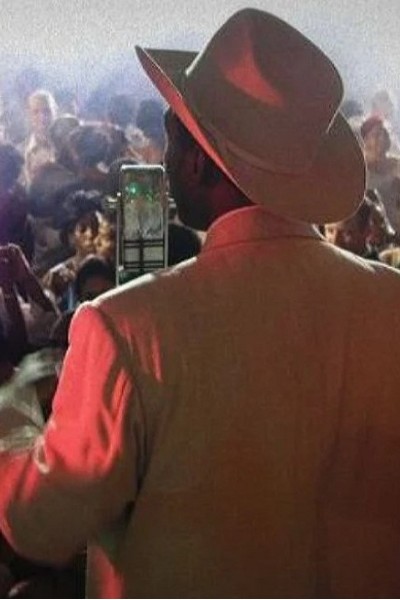
El Benny offers a warts-and-all but compassionate portrayal of the life of legendary singer and bandleader Benny Moré (1919–1963) - that not only celebrates his extraordinary musical talent but also illuminates the broader social context of music-making by Black musicians in pre-revolutionary years. It doesn’t hide from the man’s excesses nor the racism he faced, while revealing his deep commitment to his art and his people.
The drama concentrates on the 1950s, a crucial decade in El Bárbaro del Ritmo’s artistic development and his emergence as one of the greatest Latin American musicians of the 20th century. The film opens as Benny arrives in Cuba from Mexico and is offered work by a wealthy politician which doesn’t go to plan. Betrayed and frustrated, never far from a drink, the legend puts his band back together and triumphs but misfortune and chaos surround him.
The soundtrack is outstanding, with completely newly recorded tracks by Santiago singer Juan Manuel Villi, sounding uncannily like Benny. It includes help from contemporary legends pianist Chucho Valdés, and the late Los Van Van band leader Juan Formell, who composed a special tribute heard at the end of the film.
Content Warning: Contains scenes of domestic violence
Book Tickets
|
Screen Cuba presents: House for Swap (18)

The screening will be followed by a Q&A with special guests from Cuba, distinguished cinema actors Mirtha Ibarra and Eslinda Núñez.
This film heralded a new genre of sociocritical comedy in Cuba and was the debut feature of director Juan Carlos Tabio. It is full of Cubanisms – popular everyday problems, language and attitudes of that era and a range of characters from an idealist architect to an opportunistic bureaucrat.
Gloria wants her adult daughter to find a husband, who she considers a “good match”, and engineers a chain of house swaps to move to a “better neighbourhood” to make things go her way - but her daughter has different ideas and to love who she wants. It examines the desire to get ahead in a society that says everyone is equal but also celebrates the resourcefulness with which people solve their own problems.
Book Tickets
|
Screen Cuba presents: Life is Dance (18)
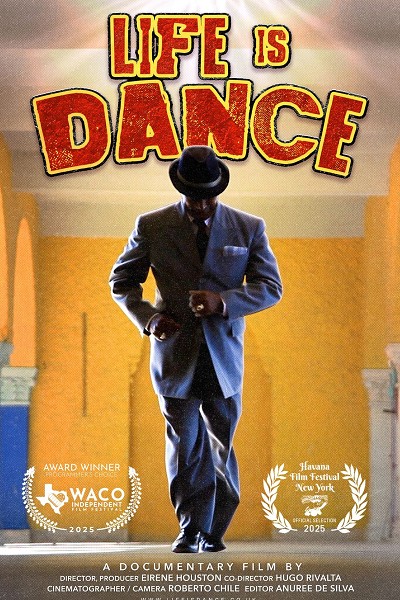
Special guest Director Eirene Houston will be there to talk about the film before and after the screening.
Son – the first truly home-grown Cuban music and dance style – and its variations have ruled the Cuban dance floor for the last hundred years. But a new dance has exploded onto the scene, capturing the imagination of the young, Reggaeton. Can Cuba hold on to the roots of its dance culture, or will some traditions be lost forever?
Life is Dance follows the stories of six main protagonists, across three generations. Ordinary Cubans with one thing in common, their passion for dance. Marta and Félix are nostalgic for the dance halls of old, but still dance whenever they can. Damaris and Gusmel are leaders of a small-town dance group, it means everything to them to win the annual dance competition. Teenagers Lachy and Dayan would love to be professional dancers, if only they could stick to reggaeton and not have to learn the “old people’s dances”.
Full of colour and music, disappointment and joy, we join these charismatic characters on their journey through a changing Cuba.
Book Tickets
|
Screen Cuba presents: Twelve Chairs (Doce Sillas) (18)
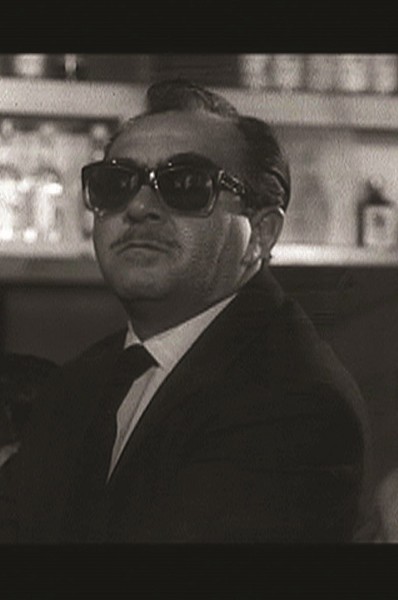
This first feature film by Cuba's godfather of cinema, Tomás Gutiérrez Alea, is this cunning adaptation of a comic novel from the early years of the USSR by Ilf and Petrov.
The madcap plot concerns the hunt for family jewels hidden by a wealthy Cuban matriarch before she died, in one of a set of 12 dining chairs which have been sold off individually. Son-in-law Hipólito and his former chauffeur Oscar both embark on a desperate adventure to find the ‘treasure’ before each other or the state does. They struggle to understand the new Cuban society, its rejection of class status, individual wealth and not to mention the maze of new official state organisations – a mix of real and imagined.
When the movie was made the revolution in Cuba was only 2 years old, filming had to be paused in April 1961 when the US attacked at Playa Girón, and the impact of the new US blockade was overwhelming. For a newly liberated country in those circumstances to be able to laugh at itself in this joyful way is astonishingly confident. Conventions of silent movies, slapstick, animation and social realism are all evident in this unmissable first comedy of the revolution.
Book Tickets
|
Screen Cuba presents: Up to a Point (Hasta Cierto Punto) (18)
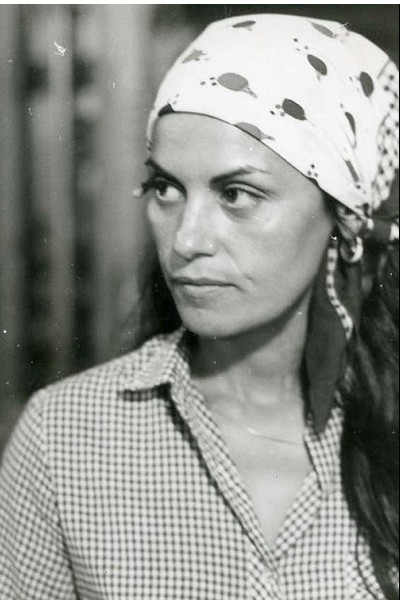
The screening will be introduced by special guests from Cuba, distinguished cinema actors Mirtha Ibarra and Eslinda Núñez.
A clever drama about resisting machismo in all areas of Cuban society. The female lead is a dockworker, played by one of Cuba’s distinguished actors, Mirtha Ibarra. A celebrated film with meaning for all of society. This entertaining satire tells the story of Oscar, a married scriptwriter who is researching the social problem of male chauvinism in the workplace for a film. Focussing on dockworkers, he encounters the sexism and contradictions of the film director, Arturo, and…himself, when he starts an affair with female dockworker Lina.
This film, set in the present day, clearly aimed to challenge the Cuban public about their own behaviour in the workplace and outside it, encouraging women to call out sexism and stereotypes, like Lina does. The constitution of 1976 had enshrined sexual equality but in the early 1980s there was a shift in gear in Cuban cinema to redefine itself as more urgently and critical of ongoing problems in society.
The mix of fiction and current reality reinforces the revolution as an ongoing process. As the film opens a real life dockworker being interviewed says “I've changed by 80 per cent.... Equality between men and women is right and proper, but up to a point…”
Please bear in mind that the age and rarity of this film means that the quality may not be what you are used to, however this is the last remaining version and a rare opportunity to see a hugely important and influential Cuban film of the 1980s.
Sentimental Value (15)
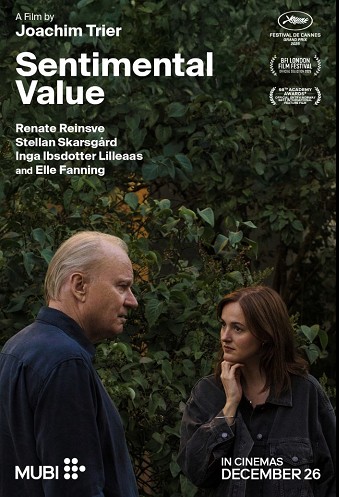
Following the success of global phenomenon The Worst Person in the World, Academy Award-nominee Joachim Trier reunites with BAFTA nominee Renate Reinsve for their universally acclaimed follow-up, Sentimental Value. Winner of the prestigious Cannes Grand Prix award, and featuring career-best performances from Golden Globe winner Stellan Skarsgård and Elle Fanning.
Reinsve plays Nora, a successful stage actress who, along with her sister Agnes (Inga Ibsdotter Lilleaas), reunites with their estranged father Gustav Borg (Skarsgård) – a once-renowned film director planning a major comeback with a script based on his family. When Gustav offers Nora the lead role, which she
promptly declines, he turns his attention to Rachel Kemp (Fanning), an eager young Hollywood starlet primed for her big breakthrough. With their fraught dynamics made even more complex, Nora, Agnes and Gustav are each forced to confront their difficult pasts.
The Garden Cinema View:
Joachim Trier cements has status as the most successful Norwegian filmmaker of all time with an ambitious and self-reflexive family portrait. As any self-respecting auteur will do at some point, Trier has made a film about filmmaking. This is a subject that, although quite indulgent, opens up Sentimental Value for poignant reflections on creativity, performance, and the meaning of (a broken) home.
Although Trier is a very different filmmaker, there is something faintly Bergman-esque in Sentimental Value. The excavation of family history, the merging of identity, a problematic father, and simply the presence of actors (performing Ibsen no less), all help to conjure the ghost of the Swedish master. Actually the film that Sentimental Value evokes most strongly is Mia Hansen-Løve’s Bergman Island, although with less metatextual contortions.
This is confident and powerful filmmaking, carried off by a superb cast, and is the is best film about a film director since Almodóvar’s Pain and Glory.
Seven Samurai (PG)
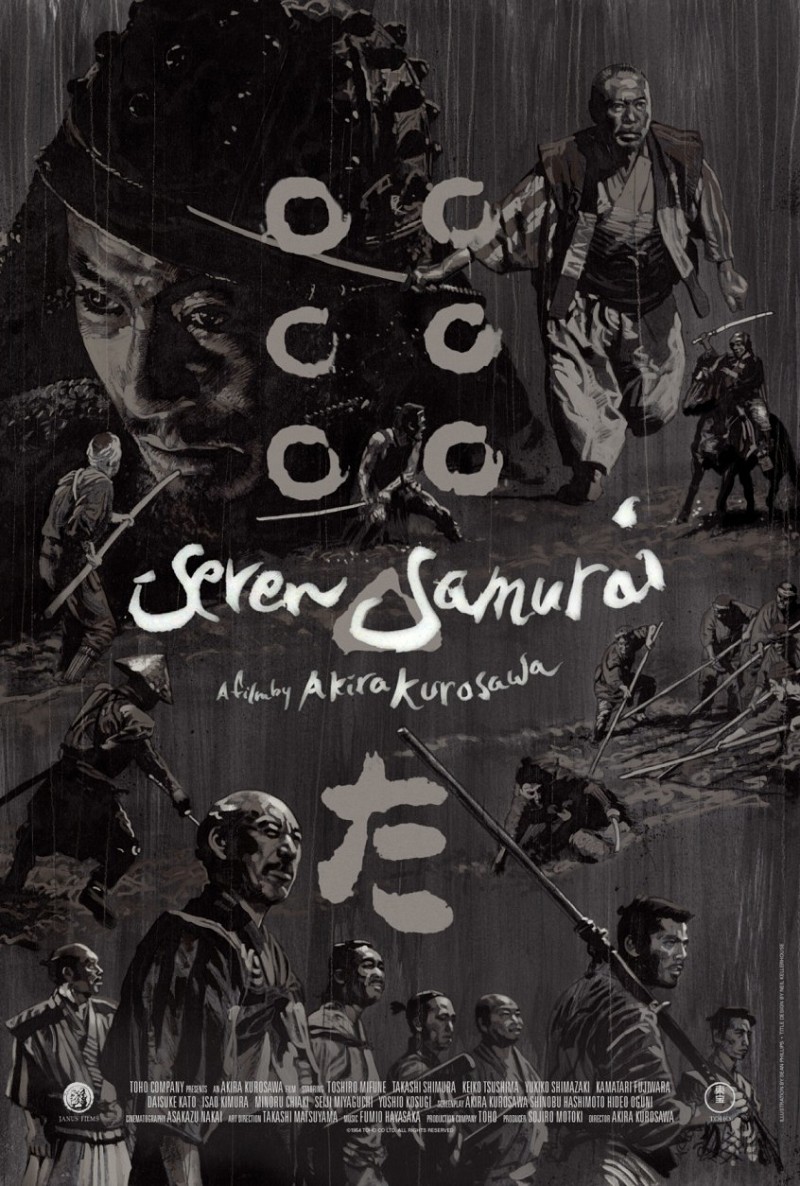
Seven Samurai was proposed for our 4th Birthday celebrations by Garden Cinema member Thu Tran.
One of the most thrilling movie epics of all time, Seven Samurai tells the story of a sixteenth-century village whose desperate inhabitants hire the eponymous warriors to protect them from invading bandits. This three-hour ride from Akira Kurosawa -featuring legendary actors Toshiro Mifune and Takashi Shimura - seamlessly weaves philosophy and entertainment, delicate human emotions and relentless action, into a rich, evocative, and unforgettable tale of courage and hope.
This screening includes a 5 minute intermission, and will finish at 15:36.
Book Tickets
|
Shaun The Sheep Movie (U)
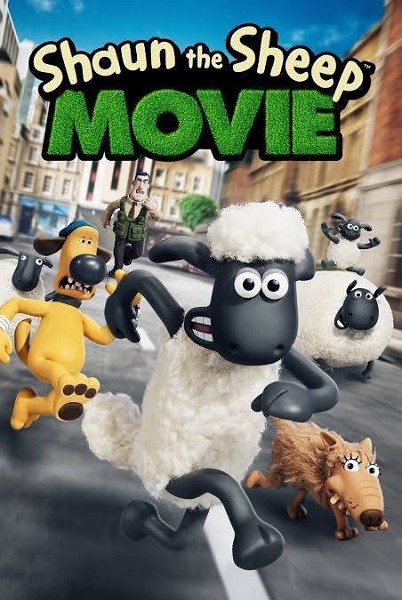
Twenty years after his first appearance, Wallace and Gromit’s cheeky sidekick finally gets his own big screen adventure in this delightful comedy from British animation studio Aardman. Life on the farm is pretty carefree for Shaun and his friends. Bored of the daily routine, Shaun decides to take the day off, but after some very silly, mischievous behaviour he and the rest of the flock are forced to head into the big city to try and rescue the hapless Farmer who has lost his memory.
Packed full of slapstick humour and wonderful visual comedy, this dialogue-free stop-motion animation will be adored by children of all ages.
On Sunday mornings our Family Screenings are followed by a free activity for Children.
The screening is Pay What You Can, which means you’re free to pay as much or as little as you can afford. By paying for a ticket, you will enable us to keep offering Pay What You Can screenings to families struggling with the cost of living. Thank you.
Sirāt (15)
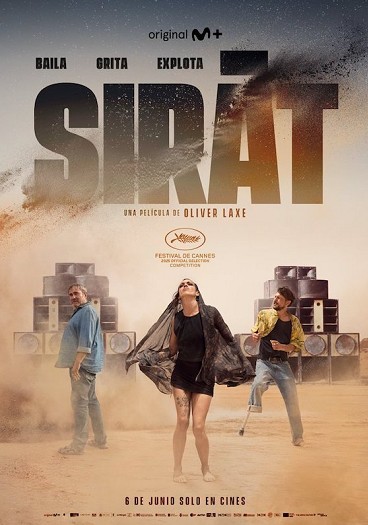
A father and his son arrive at a rave deep in the mountains of southern Morocco. They’re searching for Mar — daughter and sister — who vanished months ago at one of these endless, sleepless parties. Surrounded by electronic music and a raw, unfamiliar sense of freedom, they hand out her photo again and again. Hope is fading but they push through and follow a group of ravers heading to one last party in the desert. As they venture deeper into the burning wilderness, the journey forces them to confront their own limits.
The Garden Cinema View:
Oliver Laxe takes us into the heart of darkness with this sensory overload of endless desert, towering mountains, and apocalyptic rave culture. Drawing on the likes of Fury Road and Wages of Fear, Sirāt is a spectacular visual and sonic experience, with some astonishing photography set to an ever-pounding techno score. The film is nihilistic almost to the brink of parody, or least until the bleakness reaches a tipping point into black comedy. And, to this point, there is something hollow, and overtly edgy in Laxe’s brashness. A technical (and techno) feat, but to what purpose?
Site&Sound 09: A-to-B (18)

Site&Sound is an event series that explores the relationship between architecture and film. Each session will feature curated clips and short films around a chosen theme, inviting discussion around particular elements of representation and the different techniques employed by filmmakers. Themes will examine a multitude of perspectives on architecture, ranging from varying building types to their individual component parts and how these are interpreted by the viewer as they see the world through the lens of the built environment.
Lifts and corridors often go unnoticed in day-to-day life, designed to get us from one place to another, but in cinema they become transitional spaces that resist dwelling and force events to happen.
The architecture of transit imposes constraints that cinema exploits. A lift seals people together, removes escape routes or makes time visible through changing floors. It creates enforced intimacy, sharing space with strangers or companions. This compression can generate romance, as in 500 Days of Summer, or explosive violence, such as Captain America: The Winter Soldier. Inception plays with this literally, with bodies floating in arrested motion, while Willy Wonka & the Chocolate Factory turns ascent into a flight of fancy.
Corridors operate through a different spatial logic. They're linear but can feel infinite, structured but disorienting. The hallway becomes a test for how long you can sustain movement, tension or a single shot. In Oldboy, one corridor becomes a single fight in an unbroken take. Kubrick's passages in 2001: A Space Odyssey seem infinite, as they curve back on themselves. And when Titanic floods its corridors, familiar paths become traps and navigation is all about survival.
This Site&Sound examines how cinema transforms functional architecture into narrative space. In these compressed environments, movement becomes charged with meaning. The structures themselves shape what stories can unfold within them.
Book Tickets
|
Sound of Falling (18)
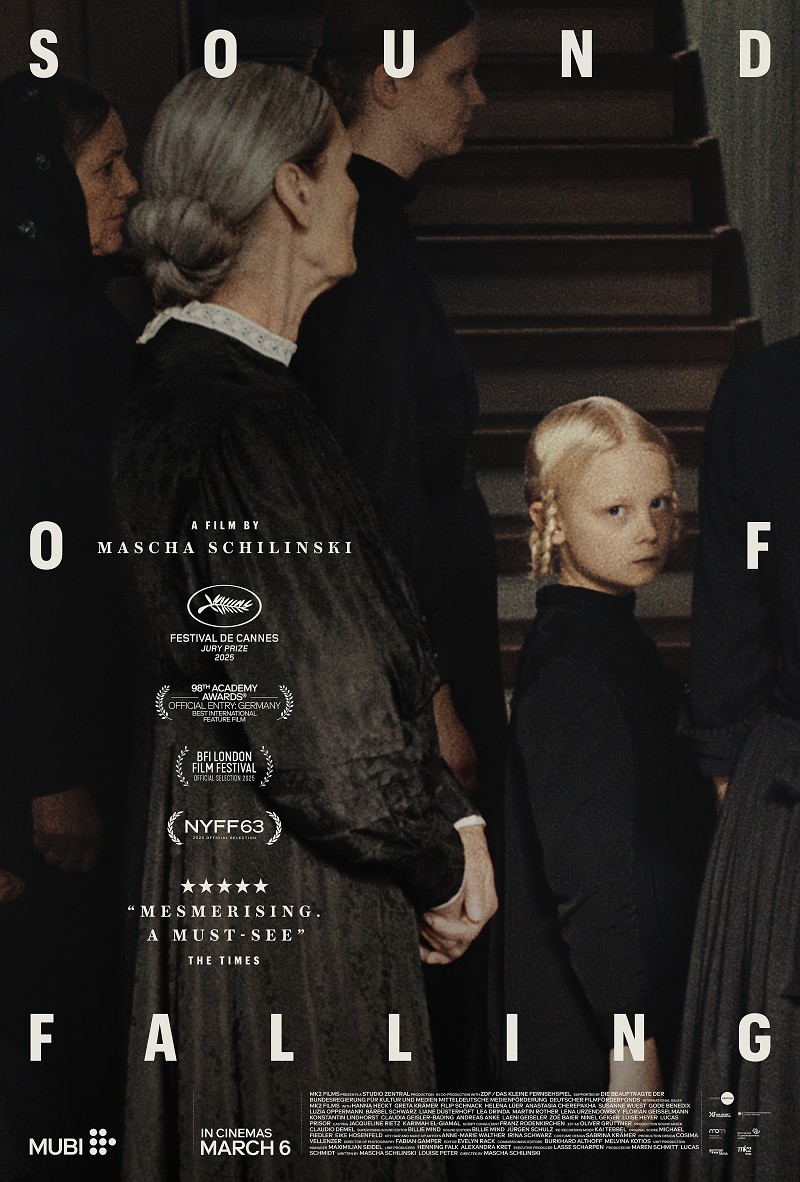
Four girls, Alma (1910s), Erika (1940s), Angelika (1980s), and Lenka (2020s) each spend their youth on the same farm in northern Germany. As the home evolves over a century, echoes of the past linger in its walls. Though separated by time, their lives begin to mirror each other, revealing shared secrets that have been kept hidden.
The Garden Cinema View:
Mascha Schilinski's dreamlike and somewhat opaque sophomore film loosely focuses on women's intergenerational trauma and supernatural connections.
The storytelling is highly fragmented and has a ghostly, meditative quality that makes clear-cut interpretation elusive. Yet, no matter how loose the cinematic language, nothing feels accidental; like a skilled jazz musician, Schilinski always brings the story back to the core. Featuring numerous uncanny elements it operates in the tradition of visual artists - specifically the dark absurdism of David Lynch, Joel Peter Witkin, Jan Svankmajer, and the Quay brothers.
Sound of Falling could be a bit shorter, it's hefty two and a half hours slightly diffusing its power. Nevertheless, Schilinski is clearly a highly assured early career director with a singular artistic vision.
Spicy cocktail hour + Ash is Purest White (18)
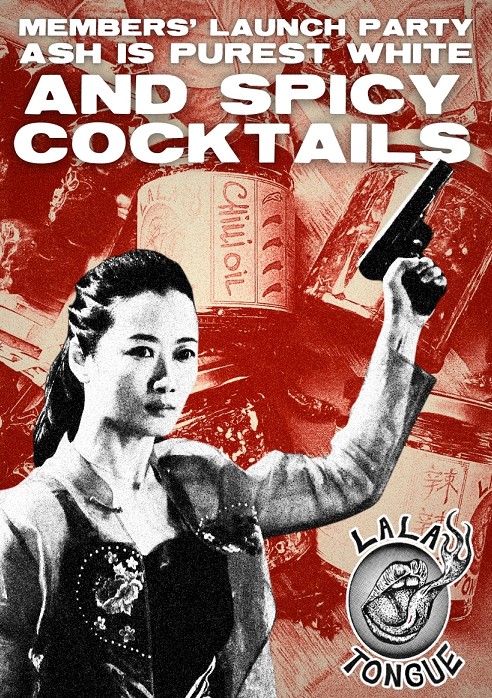
To launch our new retrospective of Jia Zhangke films, we're thrilled to welcome members on Sunday 8 March for a spicy cocktail hour prior to the season's first screening.
The selected film, Ash Is Purest White, is set in the Fengjie county, Chongqing, which is renowned for its bold, fiery flavours. In celebration of this, your ticket will include a complimentary baijiu-based cocktail, which features the chili oil & powder from our friends at La La Tongue. They will also be setting up a pop-up shop in the Atrium Bar, allowing you to purchase their tantalising products to take home with you.
After the cocktail hour, we'll all head into the screen for a brief introduction to the season by curator Millie Zhou, followed by an introduction to Ash Is Purest White by Maurizio Marinelli (UCL).
Tickets will be restricted to 2 per member, meaning you can bring a guest along, and are available for £17 each. They include a complimentary spicy cocktail (alcoholic or non-alcoholic) as well as an unallocated seat for the film.
Event timings:
15:30-16:30 Cocktail hour & pop-up shopping
16:30-16:45 Introductions by curator Millie Zhou and academic Maurizio Marinelli (UCL)
16:45-19:10 Screening of Ash Is Purest White
About the film:
Ash Is Purest White is Jia Zhangke’s only explicit gangster film, although his works consistently return to jianghu as a social condition, an informal ethical order shaped by loyalty, obligation, violence, and survival amid historical change. Deeply influenced by Hong Kong genre cinema of the 1980s and 1990s, the film can be seen as a grounded, realist response to the heroic bloodshed tradition epitomized by The Killer, translating its codes of loyalty and jianghu ethics into the lived realities of post-reform China.
Spanning more than fifteen years, the film views a changing China through the perspective of a pair of lovers. It follows Qiao, a woman from Datong, and Bin, a local underworld figure, whose rise and gradual disappearance mirror the shifting structures of power and belonging. Performed by Jia’s muse Zhao Tao, Qiao embodies a cool, self-possessed presence that recalls Pulp Fiction’s Mia Wallace, marked by autonomy, resilience, and moral resolve. After a fight breaks out between rival gangs, an act of loyalty irrevocably alters the course of her life…
About La La Tongue:
In Southwestern China, where mountains roll endlessly and rivers bend like strokes of ancient calligraphy, the love for bold, fiery flavours is woven into daily life. Here, food is more than just sustenance - it’s a tradition, a passion, and one of life’s greatest pleasures. Xinyu and Yao, two lifelong spice lovers and makers from this region, have now been living in London for over a decade. Inspired by the city’s diverse food culture, they felt a deep urge to share the flavours of their heritage with the world. And so, La La Tongue was born - a bold, irresistible healthy food brand that brings the essence of their food culture to every bite, through their delicious chili oil & chili paste. Their products can be ordered directly on La La Tongues’s website, or you can find them occasionally around London’s pop up food markets - especially over the lovely British summertime.
There will be an additional (regular) screening of Ash Is Purest White on Sunday 3 May, you can buy tickets for this here.
Book Tickets
|
Still Life (15)
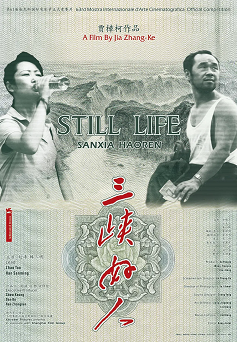
The screening on 27 March is part of a double bill with Dong and will be introduced by Sabrina Yu (Chinese Independent Film Archive, CIFA).
Still Life stands as one of Jia Zhangke’s most celebrated works and a defining achievement of his career. Awarded the Golden Lion at the 2006 Venice Film Festival, the film marks the culmination of his early exploration of China’s vast social and geographical transformations, while also signalling a new confidence in narrative form and visual composition.
Set against the monumental backdrop of the Three Gorges Dam project when millions of people had to be relocated, Still Life interweaves two parallel stories. A coal miner, Han Sanming, arrives in the doomed town of Fengjie, Chongqing in search of the wife and daughter he has not seen for sixteen years. Meanwhile, Shen Hong, a nurse, comes to the same town looking for her estranged husband. As buildings are demolished and communities dismantled around them, both characters navigate a terrain shaped by loss, impermanence, and emotional distance.
Sunday Bloody Sunday + Q&A (15)
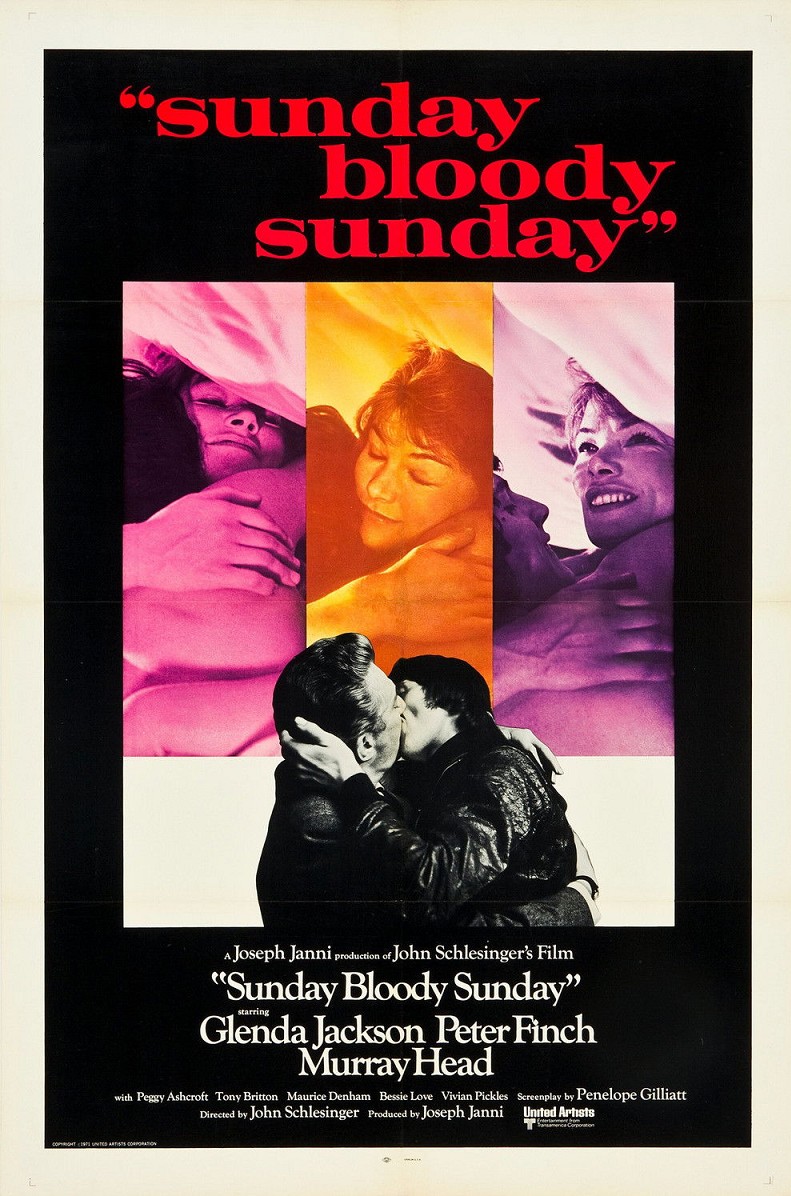
Given studio carte blanche after the unexpected Oscar triumph of Midnight Cowboy, director John Schlesinger created one of the most underrated masterpieces in British cinema. Ahead of its time in its unsensationalised representation of queer polyamory, Sunday Bloody Sunday was to be the most personal work of Schlesinger's career, in which screenwriter Penelope Gilliatt drew heavily on both his and her own past experiences.
Set against a backdrop of economic crisis, the film explores the memories and inner lives of gay Jewish doctor Daniel Hirsh (Peter Finch) and divorced office worker Alex Greville (Glenda Jackson), as both navigate a relationship with drifting designer Bob Elkin (Murray Head). Stunningly constructed and edited, the film went on to sweep that year's BAFTAs, beating out The Go-Between and Death in Venice for Best Film and Best Director, and with both Jackson and Finch taking away lead acting awards for career-best performances.
The screening will be followed by a panel discussion about John Schlesinger's queer cinema legacy.
Showing as part of The Consummate Professional: John Schlesinger at 100, a UK-wide retrospective curated by Marc David Jacobs and Claire Nicolas, taking place from February to July 2026. More information here.
Book Tickets
|
Swimming Out Till the Sea Turns Blue (18)
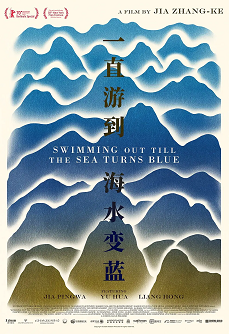
The screening on 18 April will be introduced by Kiki Yu (Queen Mary).
Ten years after his last documentary I Wish I Knew (2010), Jia Zhangke returns to non-fiction with Swimming Out till the Sea Turns Blue, the final chapter in his trilogy about arts in China, following Venice award-winning Dong (2006, about the painter Liu Xiaodong) and Useless (2007, about the fashion designer Ma Ke).
Jia’s latest documentary, Swimming Out till the Sea Turns Blue, centres on four prominent modern Chinese writers, the late Ma Feng, Jia Pingwa (Red Sorghum Clan), Yu Hua (To Live) and Liang Hong at a literary festival, taking place in May 2019 in Jia’s hometown of Fenyang in Shanxi province. This starts an 18-chapter symphony about Chinese society since 1949. Through reflections on their own lives and literary careers, those authors discuss the changes China has undergone since their births in the 1950s, 60s, and 70s, weaving a 70-year spiritual history of the Chinese people.
Book Tickets
|
Tetsuo: The Iron Man (18)
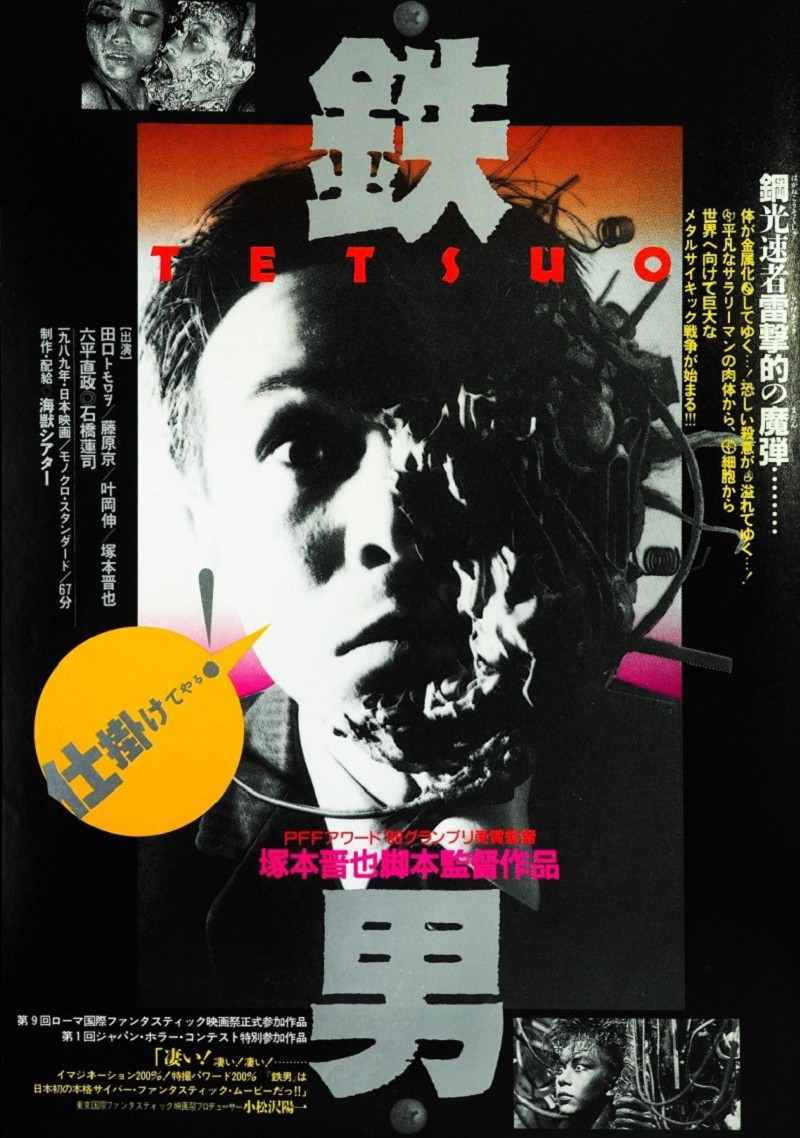
A strange man known only as the 'metal fetishist', who seems to have an insane compulsion to stick scrap metal into his body, is hit and possibly killed by a Japanese salaryman, out for a drive with his girlfriend. The salaryman then notices that he is being slowly overtaken by some kind of disease that is turning his body into scrap metal, and that his nemesis is not in fact dead but is somehow masterminding and guiding his rage and frustration-fueled transformation.
Our screening on Thursday 26 February was introduced by Mark Player, author of Japanese Cinema and Punk.
Book Tickets
|
The Bough Breaks + Q&A (18)
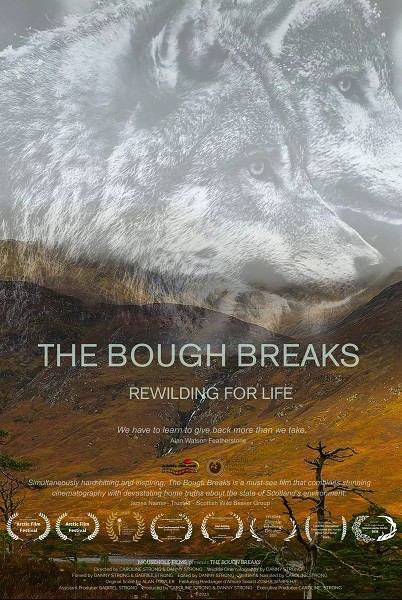
The screening will be followed by a Q&A with conservationist Alan Watson Featherstone, Danny Strong (co-director, ecologist & wildlife cameraman) and Caroline Strong (co-director, writer and producer) and Dr Gabriel Strong (assistant producer and cameraman).
The Bough Breaks explores the work of visionary conservationist, Alan Watson Featherstone; his regeneration of Scotland's ancient Caledonian forest and rewilding as a successful model of restoration, to tackle the environmental crises we face today.
Alan Watson Featherstone is one of the major pioneers of Rewilding. His visionary approach to restoring habitats, has become a blueprint for many of the major conservation projects underway today, in the UK and beyond. His extraordinary commitment is coupled with a disarming humility and spirituality; captured in the reflective and meditative atmosphere of this moving film. Forty years ago, he realised that his generation were probably the last that could save Scotland's ancient Caledonian forest. He soon decided that despite no previous experience in conservation and no personal resources, he was the man who would have to make that happen.
Book Tickets
|
The Bride Wore Black (12A)
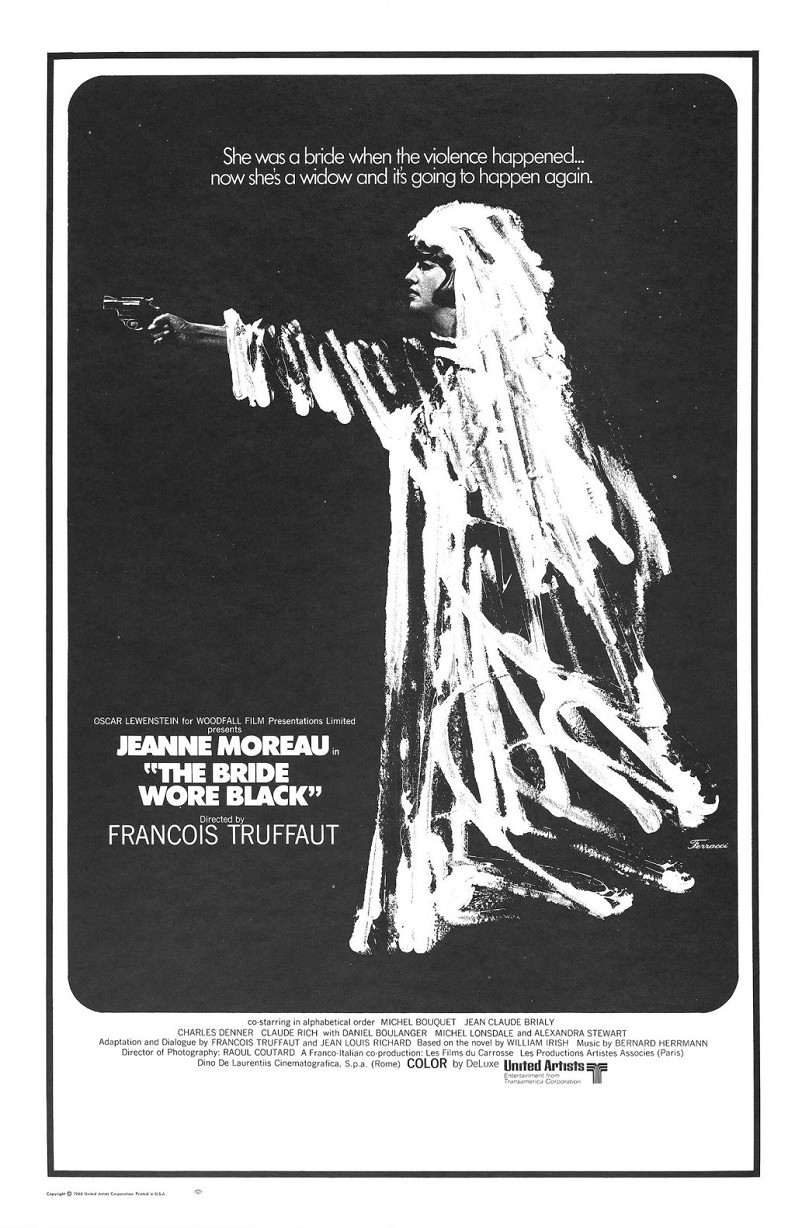
Jeanne Moreau stars as the titular bride, who after marrying her love sees him murdered on the steps outside the church. From here she enacts her ruthless revenge on the group of men responsible. Undoubtedly an influence on Kill Bill, François Truffaut’s The Bride Wore Black was itself influenced by the master of suspense. Adapting celebrated crime writer Cornell Woolrich (here credited as William Irish and who was also the author of the short story Hitchcock’s Rear Window is based on) Truffaut’s film is a deliciously entertaining tale that was one of the director’s biggest hits. Alongside Moreau, the film boasts a sensational cast, including Michael Lonsdale, Jean-Claude Brialy, Charles Denner and Michel Bouquet among others, and features a score by the maestro, Bernard Herrmann.
The Grand Budapest Hotel (15)
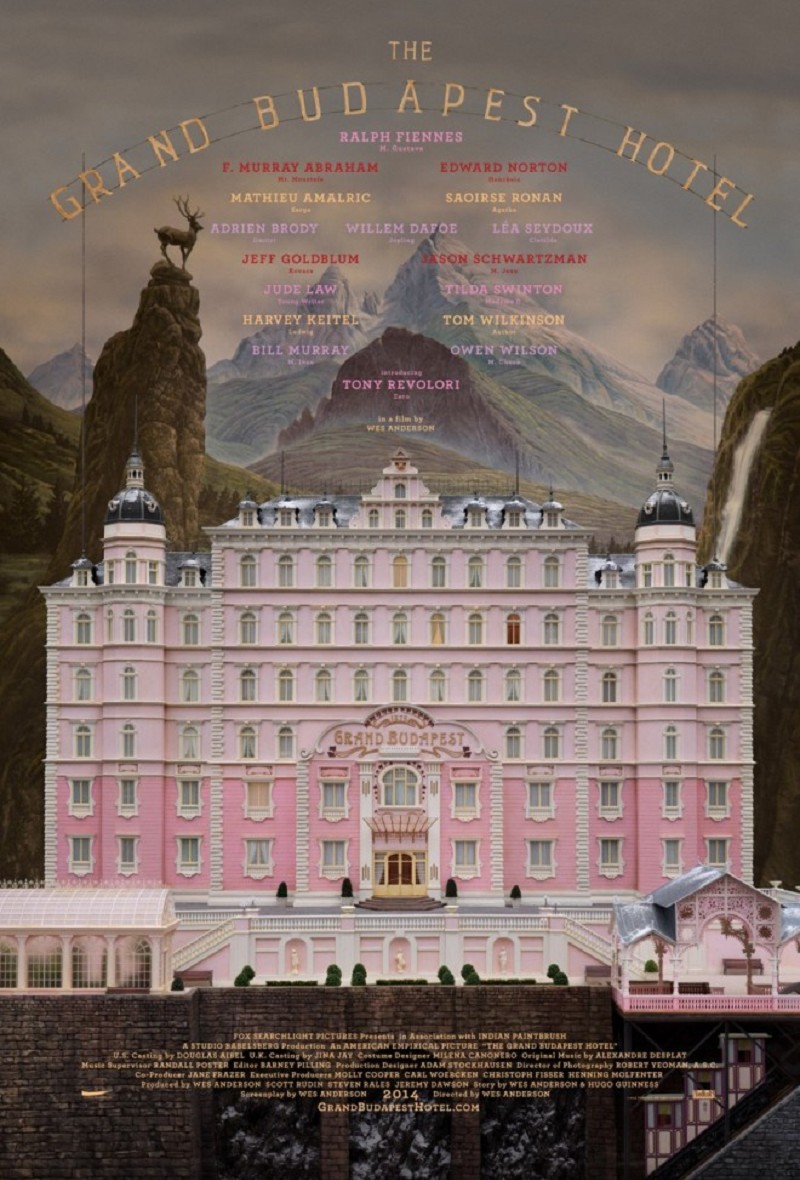
The Grand Budapest Hotel was proposed for our 4th Birthday celebrations by Garden Cinema members Jemima Hoadley and Felicity Taylor.
Wes Anderson brings his dry wit and visual inventiveness to this exquisite caper set amid the old-world splendour of Europe between the world wars. At the opulent Grand Budapest Hotel, the concierge M. Gustave (Ralph Fiennes) and his young protégé Zero (Tony Revolori) forge a steadfast bond as they are swept up in a scheme involving the theft of a priceless Renaissance painting and the battle for an enormous family fortune - while around them, political upheaval consumes the continent. Meticulously designed, The Grand Budapest Hotel is a breathless picaresque and a poignant paean to friendship and the grandeur of a vanished world, performed with panache by an all-star ensemble that includes F. Murray Abraham, Adrien Brody, Saoirse Ronan, Willem Dafoe, Jude Law, Harvey Keitel, Jeff Goldblum, Mathieu Amalric, Tilda Swinton, and Bill Murray.
This screening will finish at 20:20.
Book Tickets
|
The Love That Remains (15)
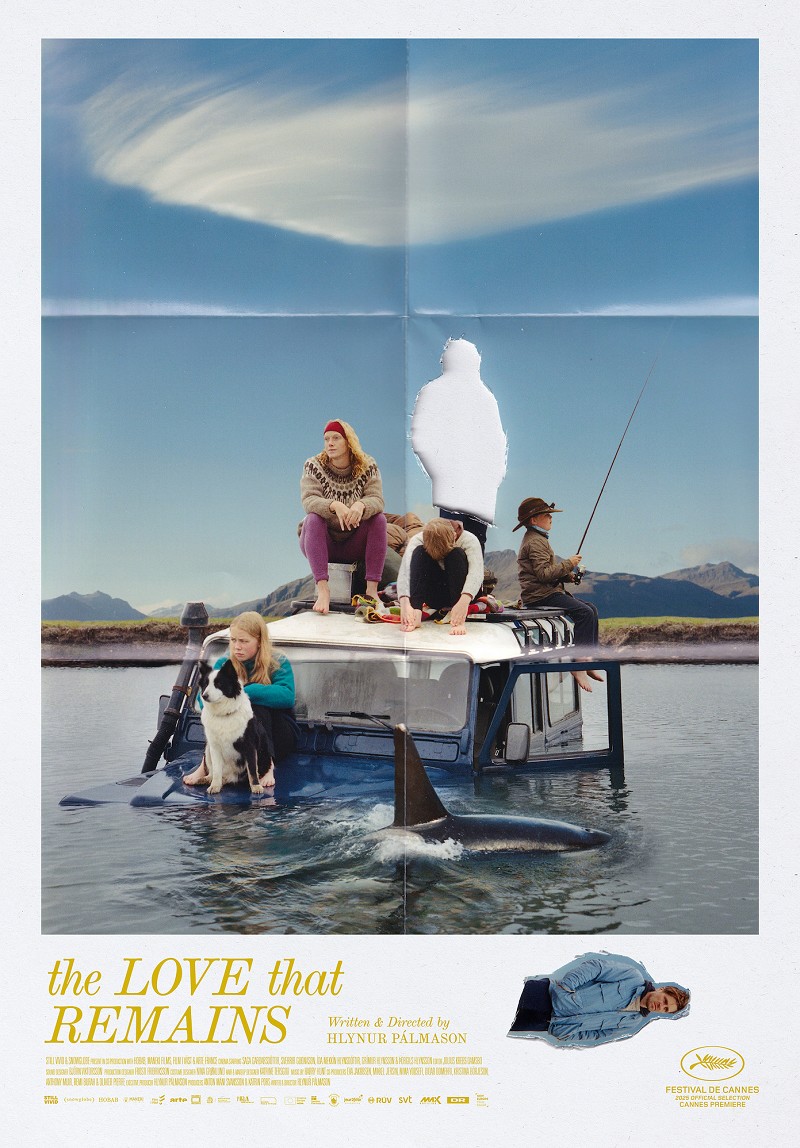
Anna, an artist, and Magnús, a fisherman, live with their three children and charismatic sheepdog in the quiet grandeur of the Icelandic countryside.
As the fractures in their marriage come to the surface, the couple try to hold onto the afterimages of a life together and make sense of a deep and lingering devotion. Filmmaker Hlynur Pálmason (Godland) brings surprising humor and emotional weight to this gorgeous, intimate, and brilliantly expansive scenes from a marriage, amidst the majestic backdrop of the changing seasons.
The Garden Cinema View:
Hlynur Pálmason follows up his vast and elemental Godland with… a charming slice-of-life comedy drama about family life in the countryside. Well, The Love that Remains may be relatively gentle, but it is still set against a remarkable backdrop of glaciers, volcanos, and the Atlantic ocean, and scenes set on a fishing vessel revel in the contrast between grinding machinery and the occasional aquatic visitor.
Structurally unusual, the film is a collection of semi-contained episodes, across a year. While some dramatic tensions are left unresolved, and frequent slips into fantasy and dreams lead to further questions, this is a unique and lovely snapshot of a modern family.
The Lovers (15)
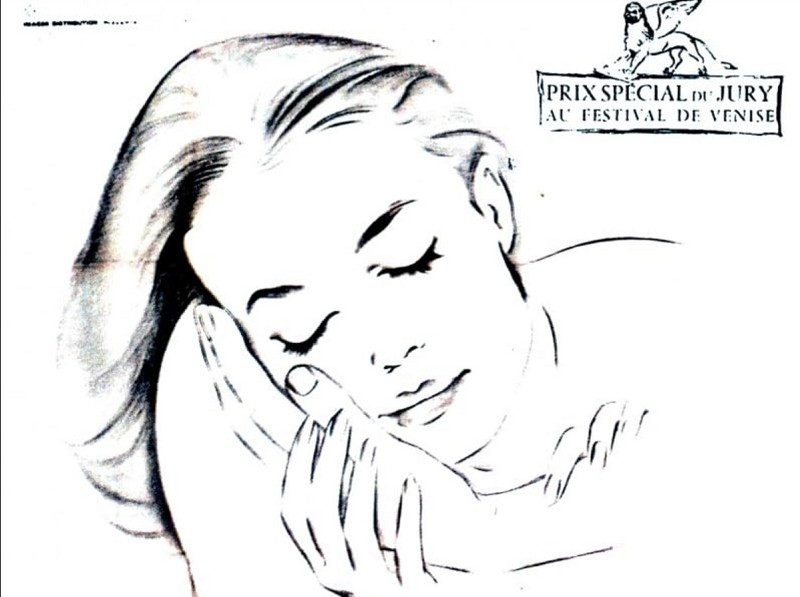
Louis Malle’s second film The Lovers, made in the same year as Lift to the Scaffold, is a fitting companion piece to his feature debut and a landmark of modern French cinema and screen eroticism. It was the Special Jury Prize at Venice in 1958.
Once again, the enigmatic Jeanne Moreau is the star of Malle’s illicit drama. She plays Jeanne Tournier, whose relationship to her husband (Alain Cuny) has long lost its spark. Having taken on a lover (José Luis de Vilallonga), she soon finds his antics dull. So Jeanne is surprised by her reaction to the younger Bernard (Jean-Marc Bory), a stranger she accepts a lift from. But how will she navigate her way through this new complexity in her life?
A huge success in France when it was released, the film was also regarded as racy for its time and faced accusations of obscenity. Today, its genuine passion is still remarkable.
The Marriage of Maria Braun (15)
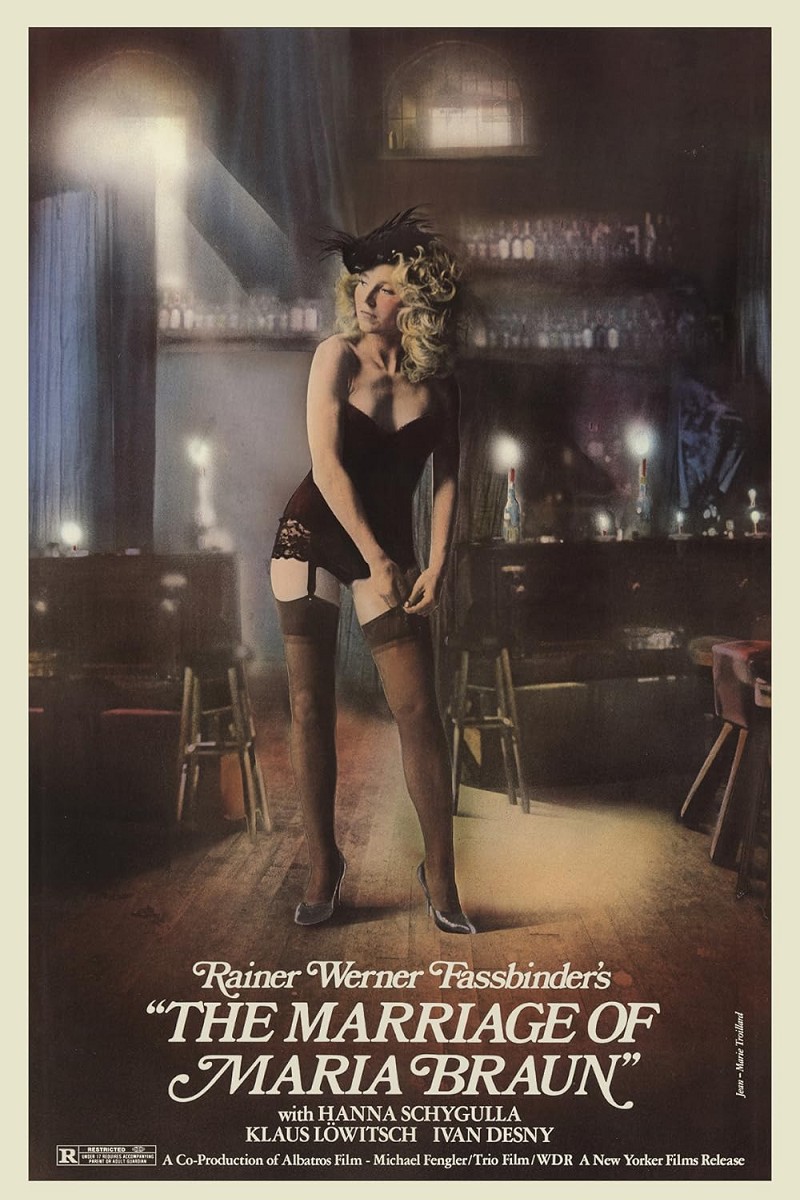
The Marriage of Maria Braun was proposed for our 4th Birthday celebrations by Garden Cinema member Alex Titcombe.
Rainer Werner Fassbinder's penultimate film of the seventies was also his most successful. Popular with audiences and critics alike, among them Roger Ebert and François Truffaut, The Marriage of Maria Braun finally provided its director with the international breakthrough he had craved for so long.
Maria Braun marries a young soldier amid the Allied bombing raids of World World II the day before he must return to the Russian front. Awaiting his return in 1945, she is informed of his death and must endure and navigate the post-war years alone. Mirroring the German Wirtschaftswunder ('economic miracle'), she determinedly rises to prosperity as a self-made woman.
This screening will finish at 15:30.
Book Tickets
|
The Photograph (18)
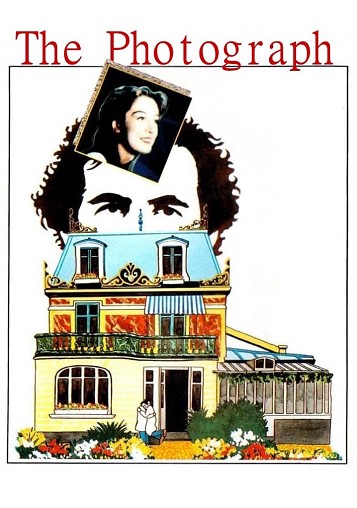
The screening on Thursday May 14 will be introduced by strand curator Erifili Missiou. It will feature English subtitles.
Synopsis:
Fleeing political turmoil in Greece, Ilias (Aris Retsos) travels to Paris and seeks out Gerasimos (Hristos Tsagas), a homesick relative working there as a furrier. Ilias carries with him the photograph of a singer whom he presents as his sister, thus causing a series of misunderstandings that leads each man into a tangled web of deception and delusion that lays bare their complex relationships of a Greek of the Diaspora.
Curator's note:
Drawing from his difficult childhood in Ethiopia where he faced discrimination due to his mixed-race heritage, The Photograph (1986) is Papatakis’ most personal and sensitive film. It also reflects his lifelong experience of dislocation - from Ethiopia to Greece, Greece to France, France to the United States, and back again. Uncharacteristically naturalistic in style, it highlights the hardships and humiliation of migration, ostracization, and illiteracy. For Papatakis, economic migration meant being severed from one's culture and condemned to a perpetual, often futile struggle to integrate.
The Criterion Collection:
Nico Papatakis brilliantly dissects the soul of modern Greece in this darkly comic, cuttingly perceptive exile’s tale.
Book Tickets
|
The Ponds + Swim Peeps Social (12A)

In the middle of London lies Hampstead Heath, 320 hectares of forest, parkland and wildlife, plus three swimming ponds. People take the waters in them all year-round, just as they did in the time of Keats and Constable. 2026, also marks 100 years of women and girls swimming at the Ladies' Pond which opened in 1926.
Capturing all the beauty of the English seasons, Patrick McLennan and Samuel Smith filmed swimmers at the ponds over 12 months as they shivered, laughed, complained, ruminated, philosophised or simply sought respite from all that life threw at them. The Ponds is a heart-warming celebration of eccentricity and sheer bloody-mindedness as these unusual people, united by a shared passion, meet to take on whatever the weather… and life… throws at them.
The screening will be introduced by the co- producer/director Patrick McLennan.
After the screening ticket holders can join Swim Peeps for a social in the Atrium bar.
Book Tickets
|
The Princess Bride (PG)
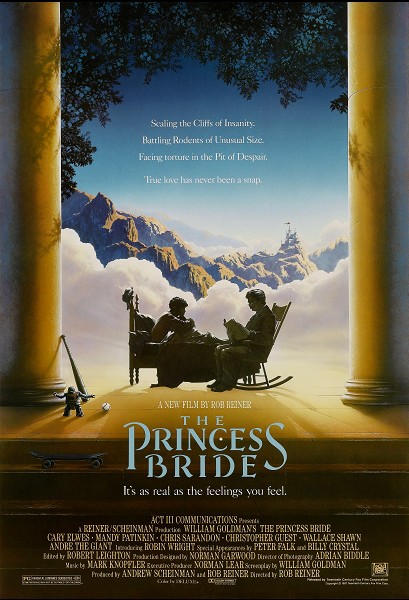
The Princess Bride was proposed for our 4th Birthday celebrations by Garden Cinema member Tamsin Clements.
A high-spirited adventure that pits true love against inconceivable odds, The Princess Bride has charmed legions of fans with its irreverent gags, eccentric ensemble, and dazzling swordplay. A kid (Fred Savage), home sick from school, grudgingly allows his grandfather (Peter Falk) to read him a dusty storybook - which is how we meet the innocent Buttercup (Robin Wright, in her breakout role), about to marry the nefarious Prince Humperdinck (Chris Sarandon) though her heart belongs to Westley (Cary Elwes). The wedding plans are interrupted, however, by a mysterious pirate, a vengeful Spaniard, and a good-natured giant, in a tale full of swashbuckling, romance, and outrageously hilarious spoofery. Directed by Rob Reiner from an endlessly quotable script by William Goldman, The Princess Bride reigns as a fairy-tale classic.
This screening will be Pay What You Can, and finish at 12:48.
Book Tickets
|
The Secret Agent (15)
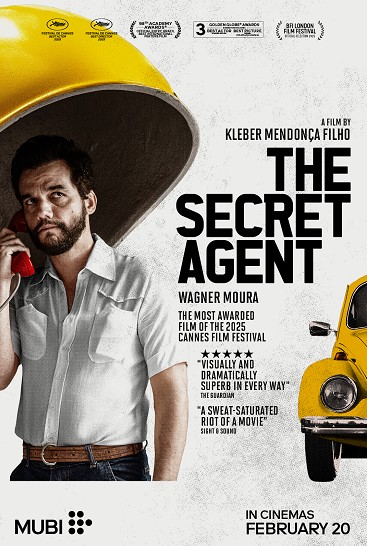
From acclaimed director Kleber Mendonça Filho, The Secret Agent is a gripping, mischievous political thriller that entertains as much as it provokes. Wagner Moura stars in a Best Actor–winning performance as Marcelo, a father on the run from a mysterious past amid the vibrant cultural landscape of 1970s Brazil. Arriving in Recife during Carnival, he is swept into a dizzying world of colour, commotion, and secrets. A global awards contender – The Secret Agent heralds a bold new chapter in Brazilian cinema.
Nominated for Best Picture and Best Actor Oscars.
Winner of Best Director and Best Actor at Cannes.
Winner Best Non-English Language Film and Lead Actor in a Motion Picture Drama at the Golden Globes.
The Garden Cinema View:
From its airlessly tense opening sequence, through the wonderfully detailed evocation of 1977 Recife, to a thoughtful coda, The Secret Agent is a superb addition to Kleber Mendonça Filho’s impressive filmography. Returning to his explorations of community and resistance as seen in Neighbouring Sounds, Aquarius, and Bacurau, The Secret Agent expands the canvas and scope of his political cinema. This tapestry of period touches, political resolve, and escalating peril is held together by the resolute but gentle performance from Wagner Moura. This is also a commercial and critical breakthrough of sorts for Mendonça Filho: now garlanded with Best Picture and Actor Oscar nominations, following a standout reception at Cannes.
Mendonça Filho’s influences range from Cinema Novo, 70s horror and paranoid thrillers, and John Carpenter. It shouldn’t then be a shock to find the occasional flourish of surreal imagery and pulp violence (certainly not for fans of Bacurau). There’s even room for a continuation of Mendonça Filho’s love letter to the (vanishing) arthouse cinemas of Recife, as seen in his documentary Pictures of Ghosts. This is a tremendously entertaining and engaging film about a dark period of Brazilian history, but urgently relevant for current times.
The Servant (12A)
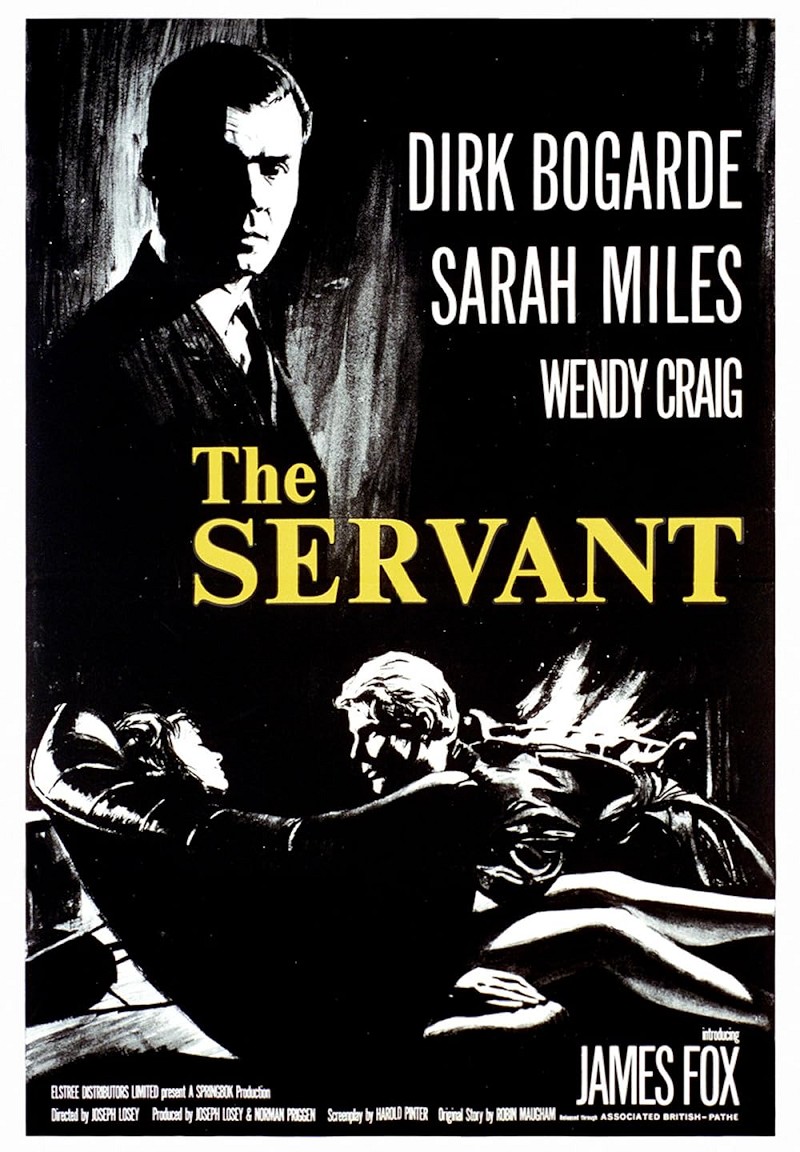
This edition of Composing Cinema will be introduced by Oscar-nominated composer Gary Yershon, who will play tribute to John Dankworth, and his score for Joseph Losey's The Servant.
Adapted by celebrated playwright Harold Pinter from a story by Robin Maugham, The Servant sees spoiled young aristocrat Tony (James Fox) carelessly recruit a servant, Barrett (Dirk Bogarde), whose deferential demeanour belies the resentment, ambition and even sadism that will see him incrementally seek to assume Tony’s position for himself. Explicitly class-conscious, The Servant plays out as a savage struggle for power, with property, sex, and social assurance both the weapons and the prizes. Sarah Miles as Barrett’s ‘sister’ and Wendy Craig as Tony’s girlfriend are convincing, but it’s foppish Fox and slippery Bogarde who dominate, their conflict depicted in director Joseph Losey’s precisely constructed compositions.
Book Tickets
|
The Straight Story (U)
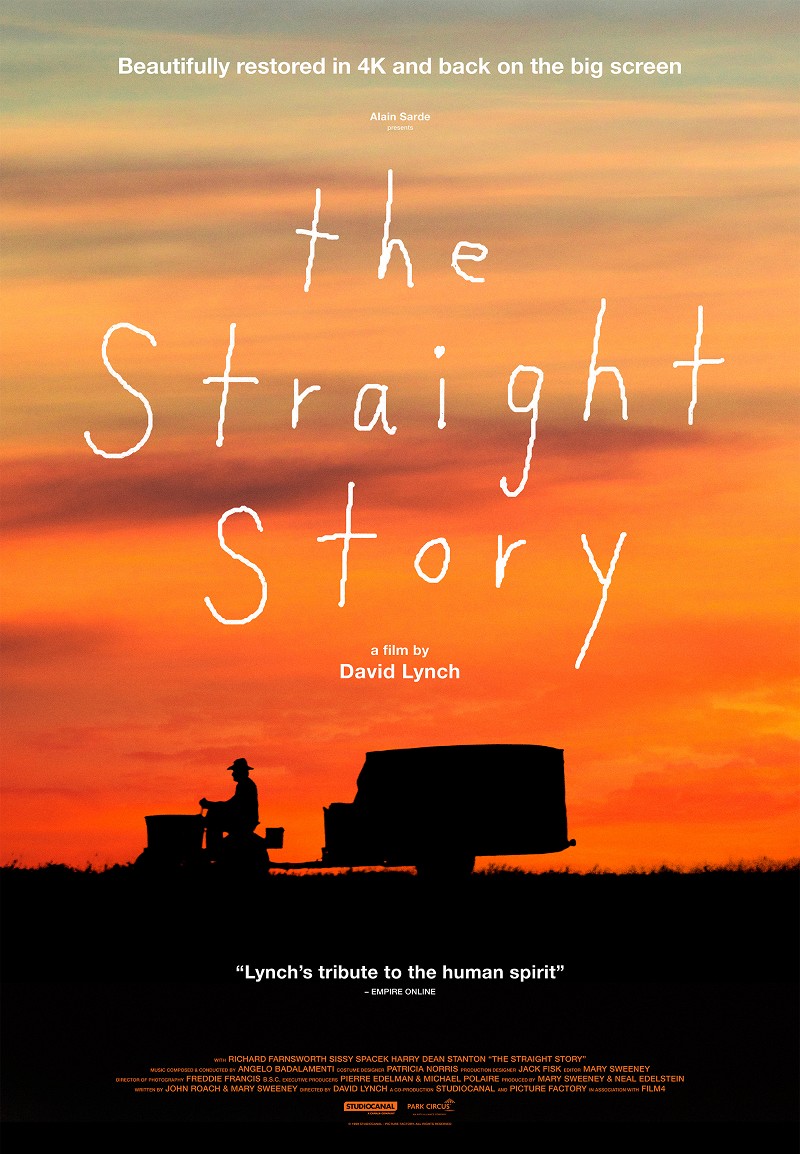
David Lynch's classic is now digitally restored.
Filmed along the 260-mile route that the actual Alvin Straight traversed in 1994 from Laurens, lowa to Mt. Zion, Wisconsin, The Straight Story chronicles Alvin's patient odyssey and those he meets along the way. When not rolling along at five miles an hour aboard his '66 John Deere, Alvin encounters several strangers, from a teenage runaway to a fellow World War II veteran. By sharing his life's earned wisdom with simple stories, Alvin has a profound impact on these characters that colour his pilgrimage.
The Testament of Ann Lee (15)
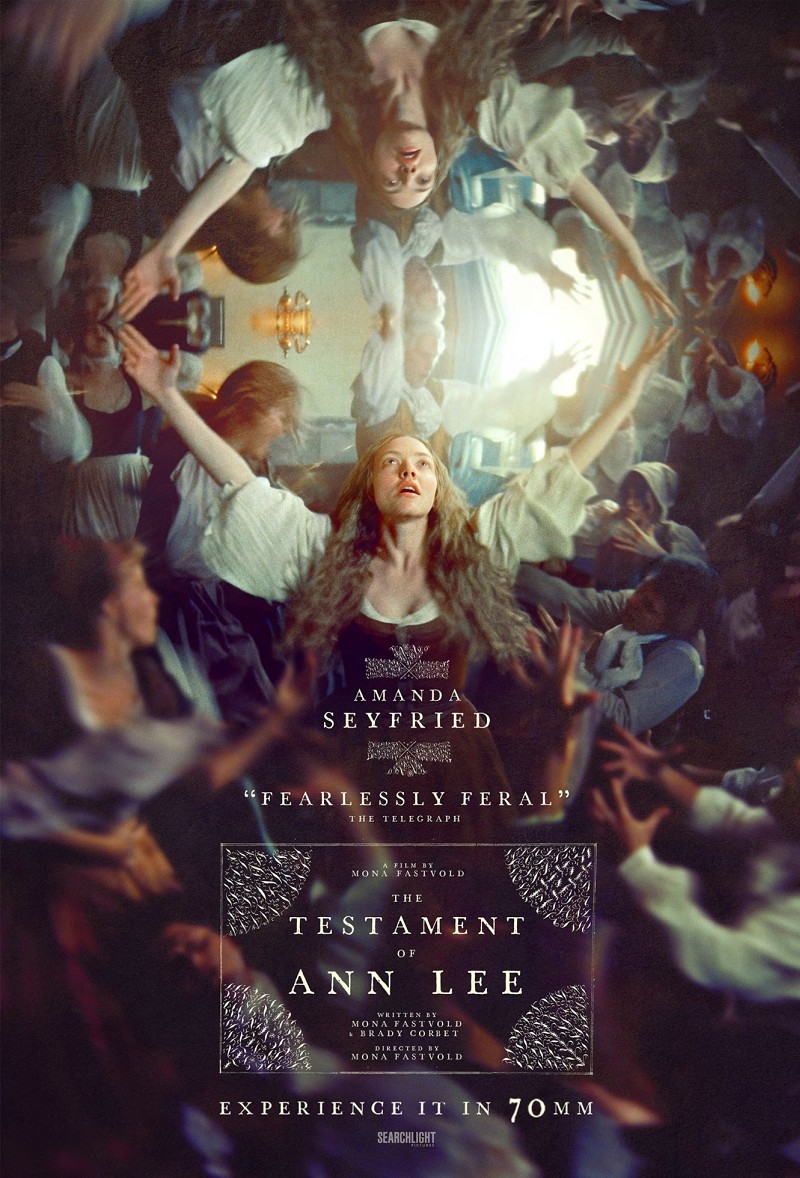
From award-winning writer-director Mona Fastvold (The World to Come, The Brutalist) comes the extraordinary true legend of Ann Lee, founder of the devotional sect known as the Shakers. Amanda Seyfried stars as the Shaker's irrepressible leader, who - having been born into poverty in Manchester, England - went on to preach gender and social equality and was revered by her followers. The Testament of Ann Lee captures the ecstasy and agony of her quest to build a utopia, featuring more than a dozen traditional Shaker hymns reimagined as rapturous movements with choreography by Celia Rowlson-Hall (Vox Lux) and original songs & score by Academy Award winner Daniel Blumberg (The Brutalist).
The Garden Cinema View:
One of the year’s strangest films, The Testament of Ann Lee brews up Brechtian musical numbers with the repressed erotic piety of The Devils, and horror notes reminiscent of The VVitch and Midsommar. This tale of a visionary emigration from Europe to America also inevitably contains echoes of Mona Fastvold and Brady Corbet’s previous film, The Brutalist. The Testament of Ann Lee truly succeeds, however, due to a possessed performance from Amanda Seyfried (never better), and Daniel Blumberg’s reworking of traditional Shaker songs, which range from dissonant atonal compositions, to sweetly lyrical ballads, and even exultant showtunes.
The screening will be preceded by a recorded introduction from director-writer Mona Fastvold and lead actor Amanda Seyfried, produced by Reclaim the Frame.
Reclaim the Frame is a charity that champions marginalised perspectives in cinema, connecting with audiences and communities through special screenings and events across the UK. If you want to be an Advocate for the work they do, join the Reclaim The Frame mailing list.
The Tigger Movie (U)
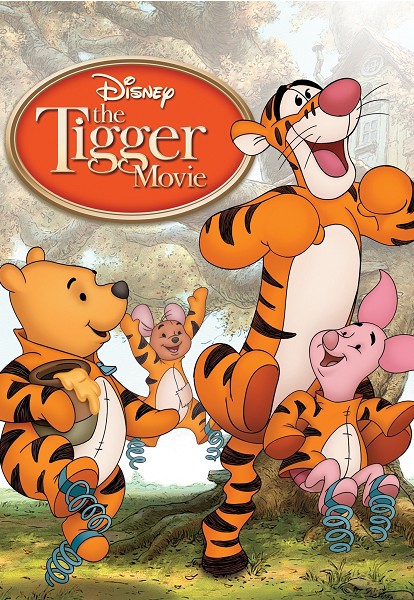
When Tigger declines to help Pooh and his friends build a home for Eeyore the donkey, they suggest he leave them to spend some time with other tiggers. Convinced he's the only tigger in the world, the ever-bouncing one goes in search of more like him, and what he finds gives him quite a few surprises.
Echoing the timeless message of The Wizard of Oz - there's really no place like home - this a fun and charming tale that will convince you there's actually plenty of wonderful things about tiggers.
On Sunday mornings our Family Screenings are followed by a free activity for Children.
The screening is Pay What You Can, which means you’re free to pay as much or as little as you can afford. By paying for a ticket, you will enable us to keep offering Pay What You Can screenings to families struggling with the cost of living. Thank you.
The World (18)
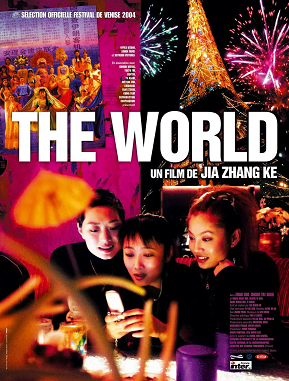
The screening on 22 March will be introduced by Maurizio Marinelli (UCL).
The World is Jia Zhangke’s fourth feature and his first officially approved, studio-backed film to receive theatrical release, marking a decisive transition from underground status to a new phase of filmmaking, while retaining his distinctive observational style.
Drawing inspiration from the real-life experiences of its lead actress Zhao Tao, who worked as a dancer in Shenzhen’s Window of the World before collaborating with Jia, the film is set in Beijing’s World Park, a theme park featuring miniature replicas of global landmarks, such as Big Ben and Eiffel Tower.
The film follows Tao, a young dancer performing at the World Park, and her boyfriend Taisheng, a security guard at the same site. As they navigate love, work, and uncertainty, their lives unfold in a space where the world appears compressed and accessible, yet remains emotionally distant. Through this fabricated landscape, the film offers a quietly incisive reflection on the impact of urbanization and globalization.
The screenings of The World are presented in partnership with Green Ray.
Unknown Pleasures (12)
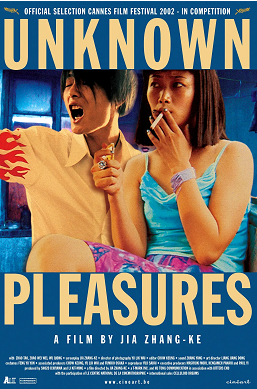
The screening on 20 March will be introduced by Tony Rayns, whose long-standing support of Jia Zhangke, from festival exposure to sustained critical advocacy and English subtitling, played a crucial role in bringing Jia’s work to international attention.
As the concluding chapter of Jia Zhangke’s celebrated Hometown Trilogy (following Xiao Wu and Platform), Unknown Pleasures is Jia’s first digitally shot feature. Named after a pop song by Richie Jen that recurs throughout, the film is saturated with the media landscape of its time - television, radio, pop music, and cinema in the background - lending it a strong documentary and archival quality.
Set in the year 2000 in Datong, a declining industrial city in northern China, Unknown Pleasures follows two aimless young men, Bin Bin and Xiao Ji, adrift in boredom and unfulfilled desire. Unemployed and disconnected, they drift between pool halls, streets, and cheap interiors, dreaming of escape without the means to pursue it. Xiao Ji becomes fixated on Qiao Qiao, a nightclub dancer whose allure remains out of reach, while Bin Bin flirts with the fantasy of a criminal act that might give his life meaning. Through their stalled lives and quiet frustrations, the film offers a stark portrait of a generation left behind by rapid economic change, suspended between pop-cultural aspiration and lived limitation.
Book Tickets
|
Useless (18)
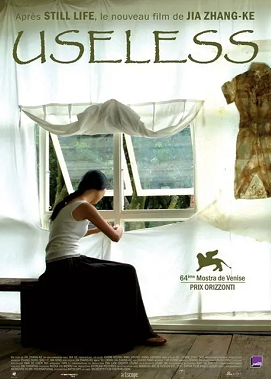
The screening on 2 Apriil will be introduced by Kiki Yu (Queen Mary).
The second film in Jia Zhangke’s documentary trilogy looking into arts and creative labour in China - alongside the Venice award-winning Dong (2006), about painter Liu Xiaodong, and Swimming Out till the Sea Turns Blue (2020), centred on writers - Useless is a documentary anchored by fashion designer Ma Ke. Through Ma Ke’s practice and philosophy, the film opens onto a broader reflection of China’s fashion and clothing industry.
Moving across three sharply contrasting locations—a garment factory near Guangzhou, an haute couture fashion show in Paris, and a small tailor’s shop in a mining town in Shanxi, the film examines how value is produced, erased, and reassigned in a globalized economy. Using clothing as both material object and social metaphor, Jia reflects on the tensions between mass production and craftsmanship, visibility and invisibility, usefulness and waste.
Book Tickets
|
Viva Maria! (12)
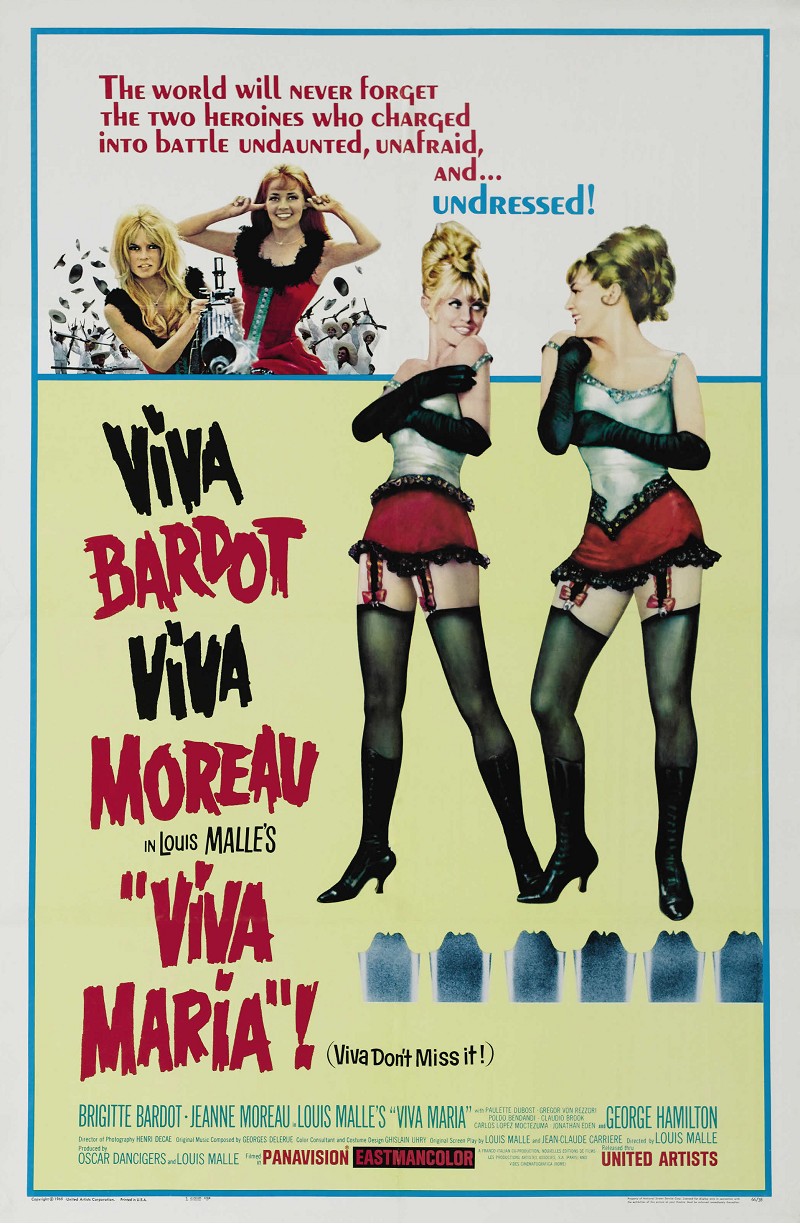
A beautiful IRA operative Maria (Brigitte Bardot) flees the British authorities and finds herself in Mexico, where she meets a stunning woman also named Maria (Jeanne Moreau), a singer in a traveling circus. The new friends start a vaudeville act - one that grows exponentially more popular after they incorporate striptease into their routine. When the singer Maria falls for a charismatic Mexican rebel, the girls leave the circus behind and recreate themselves as wild-eyed revolutionaries.
Walking a Tightrope (18)
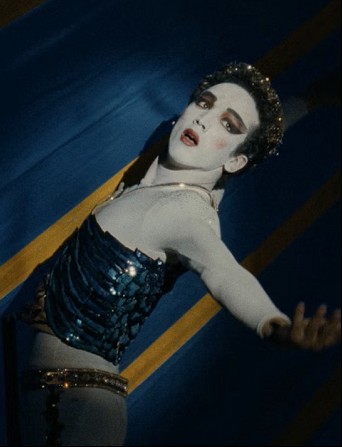
The screening on Thursday June 11 will be introduced by strand curator Erifili Missiou. It will feature English subtitles.
Synopsis:
Based on an incident in the life of director Nico Papatakis’s former friend and collaborator Jean Genet, Walking a Tightrope casts Michel Piccoli as Marcel Spadice, whose infatuation with an Arab-German circus worker (Lilah Dadi) leads him to try to turn the young man into the world’s greatest tightrope walker. When Marcel begins to pursue a new object of desire, however, his callousness unleashes tragedy.
Curator's note:
In his magnum opus, Papatakis returns to his enduring concerns - class dynamics, shame and control, the Arab-French conflict - but with a renewed sense of maturity and restraint. This queer melodrama explores the ways in which systemic politics penetrate personal relationships featuring an outstanding Michel Piccoli as Jean Genet, Papatakis' longtime friend.
Book Tickets
|
What is Sixth Generation Chinese Cinema?
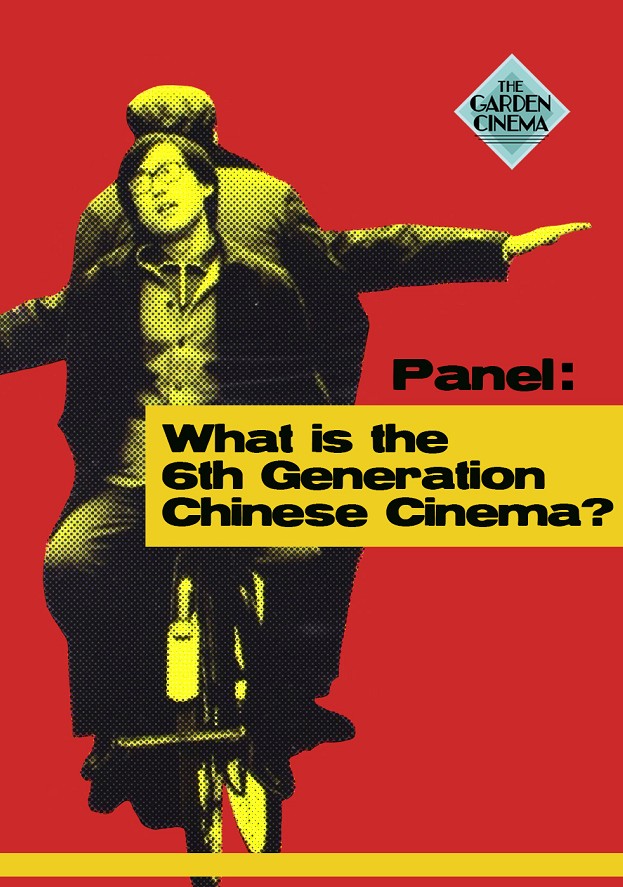
Often referred to but rarely examined in depth, 'Sixth Generation' filmmaking emerged in the early 1990s and has played a defining role in shaping contemporary Chinese cinema. Associated with directors such as Jia Zhangke, Wang Xiaoshuai, Lou Ye, and Zhang Yuan, these filmmakers worked largely outside the state studio system during a period of profound social and economic changes. Their films form a rich, diverse, and often challenging body of work, remaining deeply influential today.
This panel brings together scholars and curators who work closely with Chinese cinema to examine the Sixth Generation as both a historical moment and a critical category. Topics include, but are not limited to:
• the generational framework of Chinese cinema and its broader social and cultural contexts;
• the relationship between the Sixth Generation and the Fifth Generation, as well as intergenerational dynamics within Chinese cinema more broadly;
• key filmmakers and representative works, with particular attention to how directors have sought to navigate the tensions between state censorship and artistic expression—an effort that has not always met with success;
• the acceptance, rejection, and contestation of the “Sixth Generation” label among the directors themselves;
• its ties to Chinese independent cinema and international festival circulation;
• its influence and legacy in global film culture.
Moderator
Luke Robinson is Associate Professor in Film Studies at the University of Sussex and author of Independent Chinese Documentary: From the Studio to the Street.
Speakers
Chris Berry is Professor of Film Studies at King’s College London, where he teaches and researches cinemas of the Sinosphere. In the 1980s, he worked for China Film Import and Export Corporation in Beijing, and his academic research is grounded in work on Chinese-language cinemas and other Chinese-language screen-based media. He has written widely on the urban realism of the Sixth Generation directors and more specifically on Jia Zhangke as a poet-historian of the everyday experiences of China's transformation.
Sabrina Qiong Yu is Professor of Film and Chinese Studies at Newcastle University, UK. Her research and publications primarily focus on Chinese-language cinema, stardom and fan culture, and film censorship. With support from the UK Arts and Humanities Research Council (AHRC) and the British Film Institute (BFI), she established the Chinese Independent Film Archive (CIFA) at Newcastle University, where she is responsible for its daily operations. Since 2012, she has actively curated academic events, film festivals, screenings, and exhibitions related to Chinese independent cinema, and is committed to advancing research into it and its global circulation.
Book Tickets
|
Who's Afraid of Virginia Woolf? (12A)
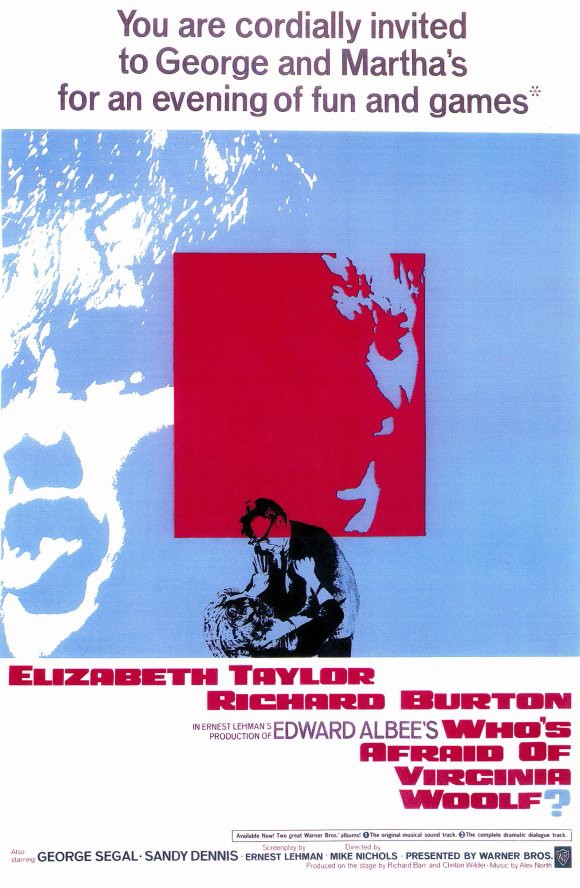
Who's Afraid of Virginia Woolf? was proposed for our 4th Birthday celebrations by Garden Cinema member Elli Hollington.
Richard Burton and Elizabeth Taylor star in this adaptation of Edward Albee's controversial play, directed by Mike Nichols. George (Burton) is a foul-mouthed, drunken university professor married for two decades to the equally foul-mouthed, drunken Martha (Taylor), whose father is the president of George's New England college. When younger married couple Nick (George Segal) and Honey (Sandy Dennis) are invited round for a nightcap, they witness a marathon of bickering and verbal abuse. The film won five Oscars, including Best Actress in a Leading Role (Taylor) and Best Actress in a Supporting Role (Dennis) and was nominated for a further eight.
This screening will finish at 20:36.
Book Tickets
|
Willy Wonka and the Chocolate Factory (U)
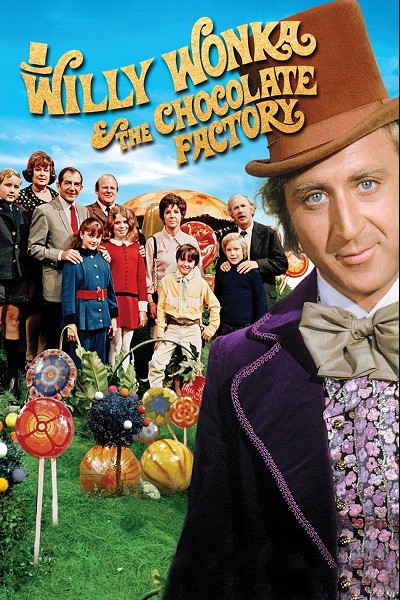
Get into the chocolate-eating spirit with this iconic and scrumdiddlyumptious version of Roald Dahl's much-loved classic, 'Charlie and the Chocolate Factory'.
The story of Charlie Bucket, a little boy with no money and a good heart, who dreams wistfully of being able to buy the candy that other children enjoy. Charlie enters into a magical world when he wins one of five Golden Tickets to visit the mysterious chocolate factory owned by the eccentric Willy Wonka and run by his capable crew of Oompa-Loompas. Once behind the gates, a cast of characters join Charlie and Grandpa Joe on a journey to discover that a kind heart is a far finer possession than a sweet tooth.
Into Film age recommendation: 5+
On Sunday mornings our Family Screenings are followed by a free activity for Children.
The screening is Pay What You Can, which means you’re free to pay as much or as little as you can afford. By paying for a ticket, you will enable us to keep offering Pay What You Can screenings to families struggling with the cost of living. Thank you.
Xiao Shan Going Home (18)
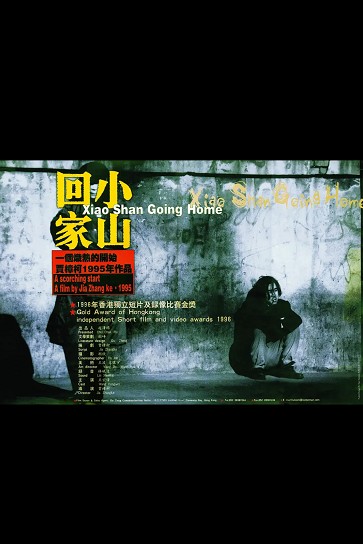
The screening on 29 March will be followed by an online Q&A with the lead actor Wang Hongwei (Xiao Wu, Platform, Unknown Pleasures).
A rare chance to be seen with English subtitles, Xiao Shan Going Home is the film that launched Jia Zhangke’s career. Shot on video and running just under an hour, it qualified for entry in the Hong Kong Independent Film and Video Awards, where it won top prize in 1997. It was there that Jia met his long-time producer Chow Keung and cinematographer Nelson Yu Lik-wai, while the cash award went on to fund his first feature, Xiao Wu.
The film establishes the raw, on-the-street aesthetics that would come to define Jia’s early work. It stars Wang Hongwei, who was also the protagonist in Xiao Wu. In Xiao Wu, Wang’s character is stuck in small town China, but in Xiao Shan Going Home, plays a migrant worker stuck in Beijing as he fruitlessly tries everything he can think of to get back to his small hometown in time for the Chinese New Year. The film was pioneering not only in its style, but also in its focus on the daily difficulties of China’s huge internal migrant population. Seen today, Xiao Shan Going Home already tackles many of the thematic and formal concerns that would define Jia Zhangke’s works for decades to come.
Book Tickets
|
Xiao Wu (15)
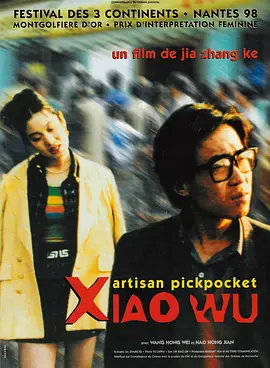
The screening on 17 March will be introduced by Chris Berry (KCL). In 4K Restoration.
As the first installment of Jia Zhangke’s acclaimed 'Hometown Trilogy' (alongside Platform and Unknown Pleasures), Xiao Wu represents a pivotal moment in the director’s early career, establishing his distinctive observational style. Shot on super 16mm film, the feature blends fiction with documentary sensibilities, capturing the rhythms of everyday life in a small Shanxi town with unflinching realism. Xiao Wu premiered at the Berlin International Film Festival in 1998, and its international success helped Jia build connections with Japanese producers, paving the way for support on his subsequent films.
Set in Jia’s native Shanxi province, the film follows Xiao Wu, a small-time pickpocket whose life is upended when local authorities crack down on petty crime. As friends leave for the city and the town’s social fabric shifts, Xiao Wu struggles to navigate a world that is moving on without him. The film traces his quiet desperation, fleeting moments of hope, and the harsh realities of life on the margins, offering a poignant portrait of a generation caught between tradition and modernity.
Restored by The Film Foundation's World Cinema Project and Cineteca di Bologna at L'Immagine Ritrovata laboratory in association with MK2 and in collaboration with Jia Zhangke. Restoration funding provided by the Hobson/Lucas Family Foundation.
